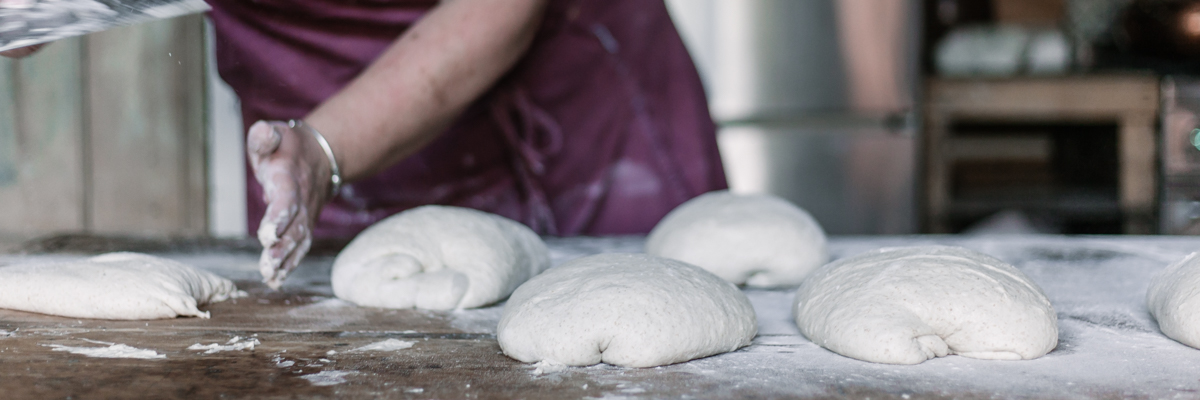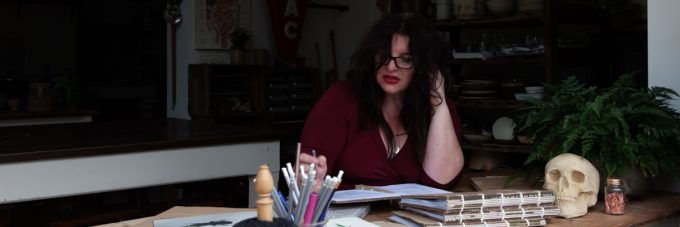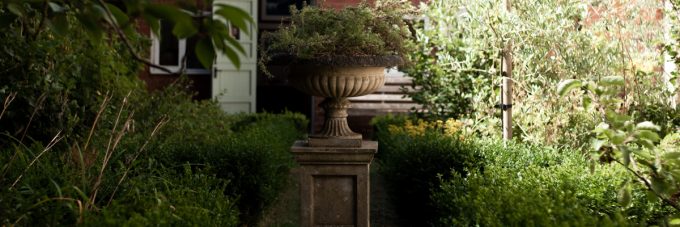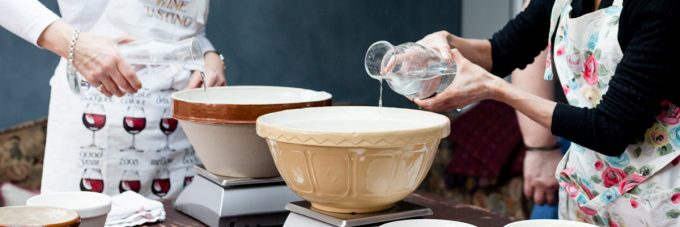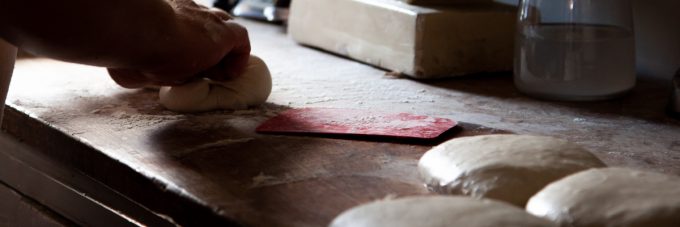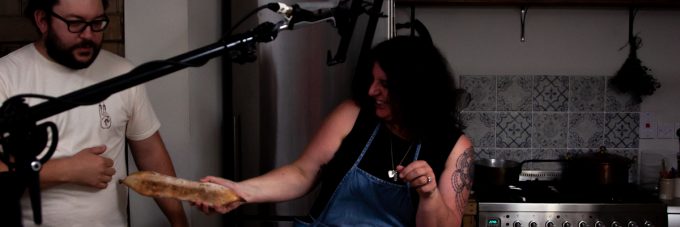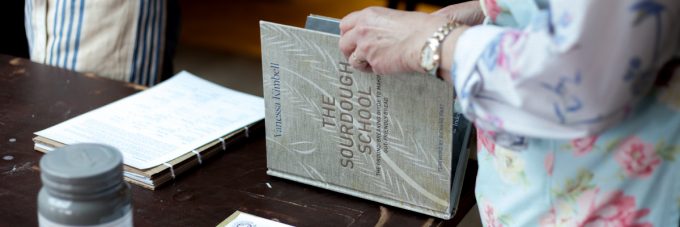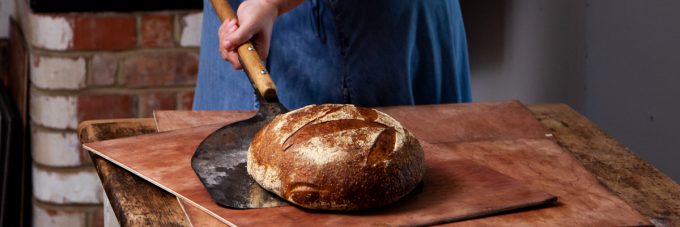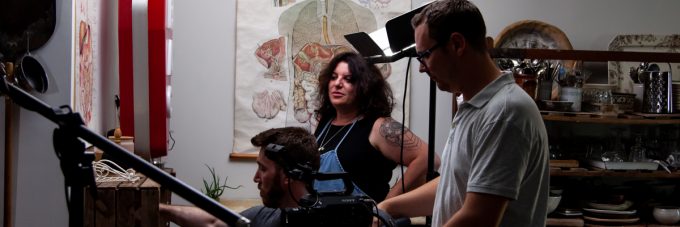General Questions About The School
What is included in a Workshop?
Included in the Sourdough School Workshop and Online Certificate:
- Scheduled Activities: All activities in the teaching timetable, including swimming, yoga, sound baths, and guest tutor sessions.
- Meals and Refreshments: This includes tastings, lunch, unlimited tea, coffee, and breads to take home.
- Course Materials: Ingredients needed for the course, a portion of Sourdough School starter to take home, pre-course materials, worksheets, and access to relevant recipes.
- Additional Takeaways: Items created during the course, like pickles, soups, and sometimes butter, subject to availability.
- Certificates: Awarded upon appropriate completion of the course.
- On-Site Meals and Snacks: Food and snacks provided throughout the day.
- Scheduled Excursions: Travel to destinations such as flour mills or farm shops on retreats.
Students are Responsible for:
- Travel and Accommodation: Responsibility of the students.
- Travel Insurance: Essential for covering short notice cancellation of course fees.
- Evening Meals: Not included unless scheduled as part of the course.
- Travel Coordination Among Students: The school does not facilitate this due to health and safety reasons.
- External Expenses: Any expenses outside the school, such as travel and accommodation, are the student’s responsibility.
Where is The Sourdough School Based?
LOCATION
Vanessa’s Sourdough bread making classes are a world away from the hustle and bustle in a pretty village just 4 miles north of Northamptonshire – which is possibly one of the most easily accessible counties in England. We are within an hours reach of London, Oxford, Milton Keynes, Cambridge, Leicester and Birmingham, which is just 15 – 20 minutes form the M1, the M6 and the A14.
Driving distances to The Sourdough School
- London 75 miles via M1
- Cambridge 55 miles via A14
- Oxford 48 miles via A43
- Birmingham 53 miles via M6
- Manchester 135 miles via M6
The train station is also only a 15 minute taxi ride away, making it really easy to get to us from London on the train.
BY TRAIN
There are regular trains from London Euston and Birmingham to Northampton.
Central London – trains go directly from London Euston station to Northampton station and take about 55 minutes. A taxi to the school from Northampton station takes about 15 minutes.
If there is ever a problem with the Euston to Northampton line, trains also run from St Pancreas to Wellingborough and Market Harborough both of which are about a 20 minute taxi drive away.
Birmingham – trains go from Birmingham to Long Buckby station and take about 40 minutes. A taxi from Long Buckby station to the school is about 15-20 minutes. Long Buckby is a rural station so there are no black cabs here.
Check www.nationalrail.co.uk for train times. We are about 15 – 20 minutes away from the station by car, dependent on traffic.
Taxi service from the Train station. We have a super taxi service called KPD Taxis with a set fee of £13.50 (week days) or £15 (weekends) to bring students to the school. If there is more than one student traveling then they will bring you all at the same time, and will advise you regarding the lower fare. To use this taxi service call 01604 882798 or email [email protected]
Other Northampton taxi companies are:
Amber Cars – 01604 232666 https://www.ambercarsnorthampton.com/
Ace Cars – 01604 719697
Bounds – 01604 626262
Phoenix Class – 01604 222222
We would advise that you pre-book a taxi to take you from the train station to the school, and vice versa. Black cabs at the train station are more expensive.
BY AIR
The closest airports are –
Birmingham – there are regular trains direct from the airport to Long Buckby (about 40 minutes). Then take a taxi to the school (approximately 15 minutes). You will need to pre-book a taxi as this is a small rural train station and there is no taxi rank.
Luton – the quickest option is to take a taxi from the airport (approximately 50 minutes) – we have used Skyways Cars before. The most affordable option is the National Express bus service to Northampton town centre which takes about 1 hour 15 minutes. Then take a taxi or the X7 bus from the bus station to the school. The bus stop at the top of Pitsford village is about a 10-15 minute walk to the school. You can book National Express bus journeys online.
East Midlands – a taxi from the airport will take a little under an hour. National Express runs two buses each weekday, the journey to Northampton town centre takes either 2 hours 15 minutes or 2 hours 50 minutes depending on which service you take. You will then need to take a taxi or an X7 bus from Northampton town centre to the school.
Stanstead – trains run every 20 minutes from Stansted to Tottenham Hale underground from where you can get an underground train to London Euston. Overland trains from Euston run hourly to Northampton. You can then take a taxi or the X7 bus from the bus station to the school. The train station is about a 15 minute walk to the bus station.
Heathrow – trains via Euston London take about an hour to Northampton railway station. To get to Euston from Heathrow follow signs for the London Underground, take the Piccadilly Line to Green Park, then the Victoria Line to Euston. Allow an hour to get from Heathrow to Euston.
Or you can just take the Piccadilly Line straight to Kings Cross St. Pancras and walk to Euston (about ten minutes). From Northampton train station to get to the school you will need to take a taxi (about 15-20 minutes). If you can pre-book a taxi it will be cheaper.
Alternatively you can take a bus to Watford Junction and then the train to Northampton (both run hourly) this takes 2¼ hours.
When you are booking flights around a course at The Sourdough School, please allow plenty of time for travel between the school and the airport.
By Bus
There is a stagecoach service which will drop off at the main road on the A508 which is about a 10 – 15 minute walk into the village here – please contact me for more details of which stop is best to get off at. You will need the X7 bus.
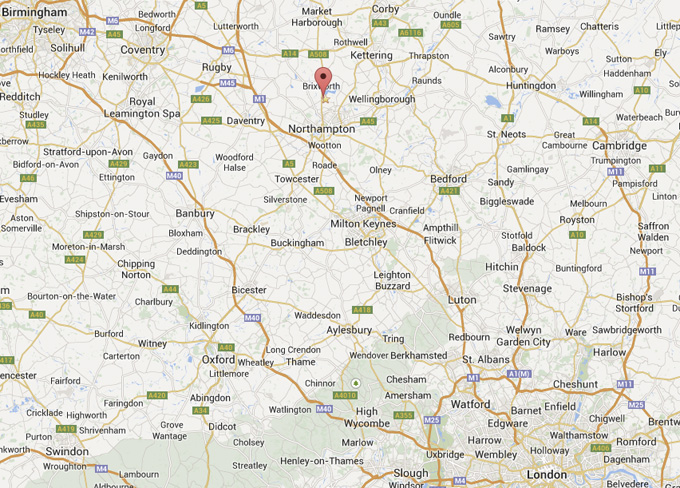
NORTHAMPTON IS BASED WITHIN EASY REACH OF LONDON, OXFORD, CAMBRIDGE, MILTON KEYNES, BIRMINGHAM.
Address for a detailed map and the address please email [email protected]
There is plenty of parking and you can expect a warm welcome.
Why we check your baking ability before you attend a Retreat
The Retreats are what we call a combined course, with a minimum of 6 months of online lessons on the Bake for Health online course before you attend in person
We want you to have an amazing week. So this is really important that you follow the course syllabus on the Bake for Health Online before you attend.When you are going to spend time with people who are have baked before and learn from Vanessa then being familiar with the recipes and structure of the recipes will make a huge difference to your enjoyment of the course, and to the other attendees.
This means you are familiar with the basics, including sourdough starter refreshment, baking terms, and basic techniques.
It is mastering this basic knowledge that make the course go smoothly. We know it is sometimes hard to find the time, but we find those students who have followed the online lessons benefit immensely. We also know that if if you have not followed the online course then you will find the retreat style frustrating because it builds on the foundational knowledge learned before attending.
To ensure you get the most out of your time at the school we ask that you practice our classic beginners sourdough formula before attending. This formula is also the classic 20% retarded loaf on page 114 of the sourdough school book.)
You are required to email us a photo of this sourdough bread, or equivalent at least 8 weeks before your in person course starts.
What happens if I need help with my baking when I get home?
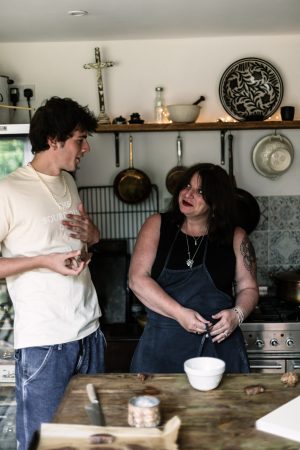
Your learning journey doesn't stop when you leave the school – it truly has just begun. With your Sourdough Club membership, you're never alone in your sourdough baking journey.
The Sourdough Club membership provides comprehensive, top-level support to help you continue your sourdough journey with confidence. Remember, leaving the school doesn't mean the end of your learning journey - every bake is a new opportunity to learn and grow in your understanding of the sourdough process.
A key aspect of this membership is your access to Vanessa Kimbell, our founder and sourdough expert. There will inevitably be times when your sourdough baking may not go as planned, and you need help identifying the issue. Vanessa is often available to assist in these instances.
However, to enable her to provide you with the best possible advice, it's important that you provide a complete set of information regarding your baking process. This includes specifics about your ingredients, methods, timings, and any issues you're experiencing. This thorough understanding will help Vanessa guide you effectively through your sourdough challenges and ensure your continued growth as a baker.
We have weekly live Q&A sessions and a Club Forum to enable you to get the support and help you need.
How do I get my sourdough starter home?
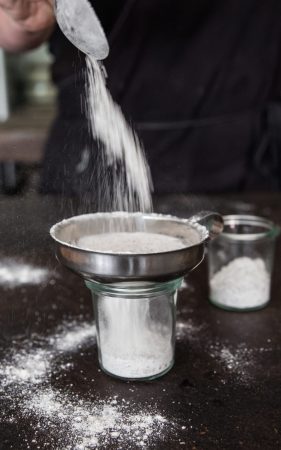 Many of our students ask me about the practicalities of taking their sourdough starters home with them. They have travelled from around the world to visit the school, so it’s only natural that they have concerns about getting their starter back home. But in fact, it’s very straightforward. Sourdough starters, when they are refreshed correctly, can remain out of the fridge for between 24 and 36 hours as long as they are kept at a regular temperature. This means that most journeys can be accomplished between refreshments… if not, it’s very easy to maintain your starter while still on the road (or train or plane!)
Many of our students ask me about the practicalities of taking their sourdough starters home with them. They have travelled from around the world to visit the school, so it’s only natural that they have concerns about getting their starter back home. But in fact, it’s very straightforward. Sourdough starters, when they are refreshed correctly, can remain out of the fridge for between 24 and 36 hours as long as they are kept at a regular temperature. This means that most journeys can be accomplished between refreshments… if not, it’s very easy to maintain your starter while still on the road (or train or plane!)
When you leave the school, we supply you with a small pot which contains 80g of sourdough starter. We also give you a bag for the starter to travel in. We refresh the starter on the last day of the course before you leave, to ensure it’s at the optimum point and ready to travel home. We also supply small bags of flour, so if anybody needs to continue refreshing their sourdough starter for a few days before they go home or on the journey, then they are able to do so. Keeping your starter healthy is a very simple process and will be fully explained on the course. But essentially, to refresh your starter you take ¾ (60g) of the starter out of the 80g we give you. Then stir 35g of water and 25g of flour into the remaining ¼. All you'll need is a small spoon or, at a push, you can use your fingers for mixing. This ratio of flour and water keeps your starter slightly thicker than you would normally have it, which slows down the rate at which the bacteria consume their food source.
There are a couple of considerations to bear in mind when you are travelling – the main one to remember is that your sourdough starter is still fermenting and is going to be producing gas. It’s worth opening the lid every few hours to release these. If you forget, the worst that can happen is that the gases build up and pop the lid so that a little of it spills out into the plastic bag. This isn’t really a problem because you can wash the starter out of the plastic bag when you get home, although you will only need 20-25g of it to refresh anyway.
Taking your sourdough on an aeroplane.
I don’t recommend keeping the bags of flour in your hand luggage because, more than likely, you will be stopped and have it tested at the airport. But I do prefer to carry my starter in hand luggage. It can safely travel in the hold. It will get cold but certainly shouldn’t come to any harm. If you decide to take it in your hand luggage, remember that it will be subject to the restrictions on liquids and gels, so don’t try to carry too much. I also find it helps to clearly label the container or bag with the contents… if nothing else, it can lead to some interesting conversations at security!
It’s really not a problem to travel with your sourdough starter. I’ve taken mine all over the world. In fact, the sourdough starter you will be leaving The Sourdough School with is part of a starter that has already been all over Europe, as well as to India and the USA. So we’re sharing a very well-travelled starter with you!
What are the Course Start time & End Times?
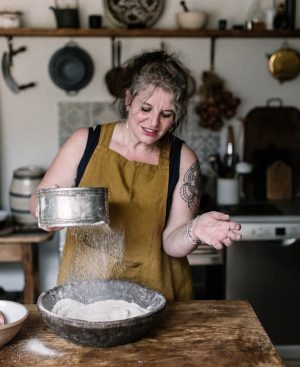
The typical operating hours for our courses are from 10 AM to 6 PM. However, it's crucial to note that each course follows its unique schedule. We encourage you to refer to the step-by-step pre-course information, The link would have been automatically emailed to you at the email address that you provided as you registered, which details the specific start times for your individual course.
Do not turn up early.
We emphasise the importance of starting our courses on time. As such, we kindly request that you refrain from arriving earlier than the designated starting time, which is typically 10 AM. The time prior to the course commencement is dedicated to meticulous preparation, akin to the final moments before hosting a dinner party, where the atmosphere is abuzz with activity.
If, for unavoidable reasons, you find that you will arrive early, we kindly request that you notify us at least two days in advance.
Courses usually conclude at 6 PM and we suggest arranging for taxis at 6:15 PM for example, allowing a slight buffer should the session run a bit longer.
Please bear in mind that it typically takes around 20 minutes to reach the Northampton train station from our location.
Can I take photographs?
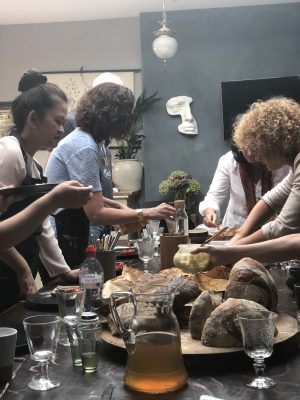
We have to have consent to take photos here at The Sourdough School. Please fill in this form
We respect that some people prefer to remain private, so please tell us if you wish to remain anonymous. Our policy about sourdough social media is to celebrate and share while respecting the preferences of all students and members of the team here at the school.
We are sensitive to both those who love social media and also those that don’t. You are welcome to take photos of the bread, lunch, the school and the garden and other bakes, but please avoid photographing people unless you have their consent.
Vanessa prefers not to be photographed except in some group shots. She is, however, happy to provide a range of photos which can be used within the WhatsApp group.
Photos in the classroom and garden are fine, but not our living space. No photos of Vanessa's children please (unless they expressly give their permission).
Do I really need a Sourdough School Book?
Absolutely, bringing a copy of "The Sourdough School" book with you on your retreat will significantly enhance your learning experience, as we use it as a primary reference throughout our courses.
Why don't we include the books in the course fee?
Arranging book distribution has proven complex, as many of our students already have a copy. Interestingly, the cost on Amazon is often lower than what we can obtain from the publisher. Therefore, we encourage students to bring their own copies or notify us if they wish to purchase one on-site.
Please note that becoming familiar with the stages of making sourdough, as detailed in the book, will allow you to gain much more from the course. If you prefer not to purchase a copy, you are welcome to borrow one from the school and use my online teaching notes when you get home.
Do we have copies of your other books?
We generally have copies of my book "Food for Thought" available for purchase, but "Prepped" is rarely in stock. You're welcome to bring your own copies if you'd like them signed. Again, it's usually more cost-effective to purchase these online, as we must pay wholesale prices for our stock.
In addition, we also offer "10 Minute Sourdough" and "Sweet Sourdough" as options to buy, but please be aware that we may not always have these in stock.

Is there any continued support when I get home?
Yes! We offer continued support and encourage students to share their experiences through the WhatsApp group.
In addition, once you sign up for a course you will be given 12 months membership of The Sourdough Club. This gives you access to Vanessa's notes and teaching. Sign up for the club using the code sent to you in your booking acknowledgement email.
Research
We have several researchers that work for the School and the papers are available on request. All the studies though, are listed and reference and summarised on the sourdough club pages.
Expectations
"What can you expect when you come to a course?
You can expect a warm welcome and to work hard and learn a lot. It's fun, and small groups make friends. However, it is a big commitment both financially and in terms of time, so it's important for you to research your week thoroughly. We are always happy to answer questions, but there are a few things we can share to fill in any gaps.
What do we expect from you?
We hope for lovely people who want to learn everything we can teach you about sourdough. We need you to be punctual, well prepared, with long hair tied back, short fingernails, wearing a full apron and raring to go.
We also expect our students to continue their baking when they get home, which is why we have The Sourdough Club and provide feedback and support long after the course has finished.
What should you expect from a course?
While the teaching will centre on every aspect of sourdough bread, there will still be time to savour your bread, relax, breathe deeply and just lose yourself in long, slow fermentation and in the beauty of winter in our rural Northamptonshire setting. We will try to incorporate a walk into each day's schedule, weather permitting.
You will have some free time in the evenings, and there is the opportunity to walk, cycle, visit the local pubs, or pop into the local cheese mongers and bakery, and we arrange a visit to the local vineyard. The course aims to give you the confidence and know-how to bake your own homemade, artisan, sourdough loaves. It will be a fun week full of information, demonstrations, and baking. All participants will receive a certificate of attendance. Once you have booked, a full schedule will be sent to you.
Will you make the perfect loaf?
Probably not.
Something to bear in mind: It took many years to master sourdough. It is an art, and sourdough is wild. Fermentation is unpredictable at times, and many students often arrive with very high expectations. Often, people show me loaves they want to make by bakers who have baked over 500,000 loaves. Yes, they are amazing. However, it takes years to really master sourdough. It is like learning to play a musical instrument, and although you will attend a course for a few days or even a week, it takes most bakers a three-year apprenticeship to learn to bake sourdough, and even now, 35 years on, I am still learning every time I bake.
Be ready to learn. Sometimes things don’t always go according to plan... although mostly they do; it is somewhat ironic, but we learn more from our mistakes than we do from our successes.
What you will learn here is not just to follow a recipe; you will learn core principles and to trust your senses, to have an understanding and a sense of rhythm, timing, and connection to the dough and the process of making bread. You will make great bread and learn everything you need to know to be in a position to practice with knowledge.
Then it is up to you to bake. Over and over again.
That is the joy - the journey
Does Vanessa teach abroad?
At the moment Vanessa teaches exclusively at The Sourdough School. There are many reasons for this. At the school we have everything set up to deliver the level and standard of courses that are expected. The classroom space we use has been specially designed to accommodate our students and allow Vanessa to teach in a comfortable and welcoming environment.
Having lived in the area for many years, Vanessa has long established connections with the local farmers and producers. This is reflected in the samples that she gives to students on the course, and the incredible lunches provided, which are made with locally sourced food (some of it from Vanessa’s own garden). The school is also certified organic. So everything that we use here has been selected very carefully to be a part of the teaching experience.
And, of course, Vanessa is a mother to three children and a wife. Teaching from her home give her the flexibility to fit the work she loves around her family life.
Vanessa does occasionally speak at international conferences on the subject of nutrition and digestibility. If you would like to discuss the possibility of Vanessa speaking at an event, please get in contact via the school's commercial director ([email protected]) to check availability and costs. It’s also important to remember that when asking Vanessa to attend you will need to be able to cover flights, accommodation, transport and a speaker’s fee.
Do you post your book internationally?
Yes, we can send The Sourdough School book to international students. Our online shop is managed by the lovely people at Bakery Bits who are all set up to send products around the world.
If you are ordering from overseas, please ensure you provide a contact telephone number because this is required by the delivery companies.
Can you recommend somewhere to eat in the evening?
You will be quite tired and sometimes quite full a the end of each day, and you are most welcome to take home some of the leftovers from lunch, however it is also lovely to go out in the evening, and there are lots of amazing places to eat. And because they are so good, we would always suggest that you book in advance to avoid disappointment.
These are some of our favourites –
The Althorp Coaching Inn, Great Brington
With oak beams, flagstone floors and a roaring log fire, The Althorp Coaching Inn is all you would expect from a traditional village pub. This 16th century coaching inn, just 7 miles from the school, is a listed stone and thatch building. It has a courtyard, an enclosed garden and a beautiful, vintage-style barn. The inn specialises in quality British food, real ales and fine wines. The menu ranges from bar meals to classic restaurant dishes, made from locally sourced ingredients wherever possible.
Website: http://www.althorp-coaching-inn.co.uk/
Phone: 01604 770651
Facebook: https://www.facebook.com/althorpcoachinginnfoxandhounds
Twitter: https://twitter.com/AlthorpInn
The Griffin Inn, Pitsford
The Griffin Inn is a proper village pub, and at the centre of our village community. A selection of local ales are served along-side delicious home-cooked pub favorites – they have a steak menu, chef’s specials boards, light lunch options, and then there’s the chef’s legendary traditional Sunday roast.
Website: http://griffinpitsford.co.uk/
Phone: 01604 880346
Facebook: https://www.facebook.com/PitsfordNorthampton
The White Horse at Old
Travel past Pitsford Water from the Sourdough School and you will arrive in Old, a small village with The White Horse at the centre. The seasonal menu offers a range of delicious dishes, with daily specials and plenty of choice for vegetarians. There are also artisan pizzas, baked in an outdoor wood-fired oven. Many of the dishes can be served in child sized portions for younger diners. The pub stocks a good range of craft beers and heritage ciders too. Check their website for details of the monthly quiz nights and live music.
Website: http://www.whitehorseold.co.uk/
Email: [email protected]
Phone: 01604 781297
Facebook: https://www.facebook.com/whitehorseold/
The Red Lion, Main Street, East Haddon
A cosy thatched pub in a peaceful, idyllic village surrounded by picturesque Northamptonshire countryside. The Red Lion specialises in serving great British food, cooked using local seasonal produce. The pub has an intimate lounge, a large dining room and manicured gardens, and is just 6 miles from The Sourdough School.
Website: https://www.redlioneasthaddon.co.uk/
Email: [email protected]
Phone: 01604 770223
Facebook: https://www.facebook.com/The-Red-Lion-East-Haddon-148874411832224/
The Artichoke, Church Street, Moulton
The Artichoke is one of the closest pubs to the school. It specialises in food cooked using quality, local ingredients. Their meat is sourced from the local butcher’s, sausages from Mike’s pigs of Moulton, and the vegetables are delivered daily. This Grade II listed building dates back to 1680 and the owners think it was originally a farmhouse and village inn. It has a lovey, private and dog-friendly garden with plenty of seating for guests. There is regular live entertainment, including quizzes, jazz nights and fold nights.
Website: http://www.artichokemoulton.co.uk/
Email: [email protected]
Phone: 01604 643941
Can I be a case Study?
Next year ( 2024) I'll be beginning the 2nd phase of research and there is another exciting project here at The Sourdough School which I hope will result in more case studies.
I will be starting the second phase of my Masters in Research I hope to have finished my PhD in Nutrition & digestion of Bread. This is research, in the form of dietary intervention studies, will contribute significantly to the growing discussion about how the Protocol of Baking as Lifestyle Medicine has a significant effect on microbial population, diversity and supporting a healthy gut micobiome, as well as a positive impact on mental health.
How does it work?
It is two parts. You get a home study pack delivered directly to your door, with everything you need in the pack and you follow the step by step online tutorials online.
Each group be asked to bake a specific delicious and nutritious sourdough bread at home for an allocated length of time and you will be the first to find out the results of your gut microbial analysis, any changes and the implications.
Why do we have to pay to participate?
This is still part of the way I teach and is still a course, and delivered in the same way as the ones we teach normally. This is just a very special course, that becomes part of a research study. The tests themselves are very expensive, although they are totally FREE to the participants, we feel that a mutual commitment is needed, and this is quite a commitment, involving baking and bread over several months.
- What is in it for me?
- You will learn to make a specific bread that will have all the techniques needed to make amazing sourdough and learn to bake as Lifestyle medicine
- You will have the results and feedback of your gut microbial composition and find out how it is affected by eating sourdough.
- You will be participating in research that will change the way we understand bread and the way we eat it on our health. It's cutting edge research into one of our most important foods.
- We will share our knowledge in terms that can be understood by everyone.
Will I be named?
- Everyone's results will be confidential and you will be given a number, rather than be identified by name. However you can enjoy participating in the discussion of the study on social media. It is not a secret, but we are obliged to keep individuals makes and results anonymous. You of course can share your participation - that is up to you.
- There are a limited number of places to participate in The Masters in Research course, and anticipate initially that each group with have between 20 - 30 participants.
- Each student will need to agree to give basic health details (weight, blood pressure, etc.) about themselves and send in samples regularly for a gut microbe analysis . The fruit project will be looking at comparing the gut microbiome before and after baking and eating sourdough.
If you’re interested in joining this course, please sign up to our newsletter as we will be sending out the opportunity to participate in this research next term. ( Autumn Winder 2024)
Will there be any more Sourdough Sisters?
Our intention is to run Sourdough Sisters as an annual event. The applications for next year will open in early 2019, and the course will run in summer 2019. Unfortunately, we are not able to run these courses abroad. Vanessa teaches exclusively at The Sourdough School, because this is where all her resources are, and where her organic certification and insurance are valid.
Should you wish to apply for the next Sourdough Sisters please sign up for our newsletter and we will send more information as soon as it is available.
Do I have a gluten allergy?
I’m often contacted by people looking for advice about gluten allergies or intolerance.
My first response is always that if you suspect you may have a gluten allergy or may be coeliac, you must see a GP to get a diagnosis.
Although I have spent many years researching the digestibility of sourdough, I am not qualified to diagnose any of the medical conditions which can cause symptoms similar to gluten allergy.
There are numerous reasons why people have digestive malaise when eating bread, but we do know that many people find that they can eat sourdough without any issues.
Gluten intolerances and allergies are widely blamed for symptoms such as bloating, constipation and other digestive discomfort. In some cases rather than gluten, it is a range of naturally occurring sugars (known as FODMAPS) that are the root of the problem. There are also suggestions that the modern, industrial bread making process has led to the rise in people adopting a gluten free diet. Many people find sourdough easier to digest, and that they can eat it without experiencing any discomfort.
Coeliac disease
One of the most debilitating conditions associated with wheat is coeliac disease, an auto-immune condition triggered by gliadin, a component of gluten. Although there is some initial evidence suggesting that sourdough might be suitable for coeliacs to eat, this evidence was a small trial and gathered under medical supervision, which is very different from buying a lao from a bakery or baking your own. I do not recommend people with coeliac disease to eat sourdough, because it’s not possible to guarantee that the gluten is broken down sufficiently to that loaf is free from raw flour, which may be on the outside of the loaf and may trigger a reaction. There are gluten free sourdough's made with rice flour or potato flour, but this is not an area I work in at present. We do not teach anyone who is coeliac to make sourdough.
If you want to come to come on one of our courses, but think you may have a gluten allergy, please talk with your doctor first. You will get much more from the course if you have a diagnosis. Different conditions can be approached in different ways, and I can teach you the best fermentation technique and recommend the best flour choice for your specific condition.
The most important thing is to address the issue of a potential allergy or other medical condition before you book a course. Allergic reactions are very rare, but can be serious. If you have an immune response that comes to light during the course, we will ask you to seek advice from a doctor before you can continue.
You might find this podcast with Vanessa and Time Spector interesting.
Which flours do you recommend?
I have written an article which looks at the choice of flour for sourdough baking. In it I talk about how grain variety, grain quality, and milling all affect the properties of a flour.
We regularly use flour from Marriages, Doves Farm and Gilchesters Organics here at the school. Each of these mills offers a range of flours suitable for bread baking. You can buy them through DeliverDeli, and some of these flours are available in supermarkets and independent grocery stores. We also recommend using Strong Organic White Bread Flour from Marriages flour for refreshing a white sourdough starter… in fact, we provide a bag of this flour as part of our White Sourdough Starter Kit.
The important thing to remember in choosing a flour is to take time to become familiar with it. Bake regularly with the same flour and keep records of your bakes. This way you will soon learn how best to use each flour and which ones suit your baking style.
Do you offer work experience?
We often get asked if we are able to offer work experience here at The Sourdough School.
Unfortunately in the main we have to say no. We’re a small school, and because of fire regulations are only able to have a limited number of people in the kitchen at any one time. The classes we run are almost always fully booked which means, once you add in the tutors, we are at capacity. Of course, we very much welcome people coming here to learn to make sourdough, but I’m afraid we really do have to limit it to students who book on a course.
Saying that, we occasionally have students back who have previously been students, and I began my baking career volunteering in a small French bakery. So I would advise anyone looking for work experience that it’s definitely worth persevering. One of my recommendations for people who want work experience in baking sourdough is to ask at your local bakery – there’s often much more practice to be had in a bakery where they are making hundreds of loaves every day. Just keep asking… that’s how I got my first work experience. Having started my baking career with work experience, I would really encourage anyone to do this. But unfortunately we just cannot accommodate volunteers here.
How do I subscribe to The Sourdough School newsletter?
Our newsletter is a great way to find out about the latest happenings and offers at The Sourdough School, and is packed with recipes and baking tips. It’s also the best way to find out about new courses as soon as they are opened for booking.
You can add your email in the ‘Subscribe Here’ page. Simply enter your email address, click the button and you’re subscribed, and you will the first to know about what we are up to.
Do you offer online courses?
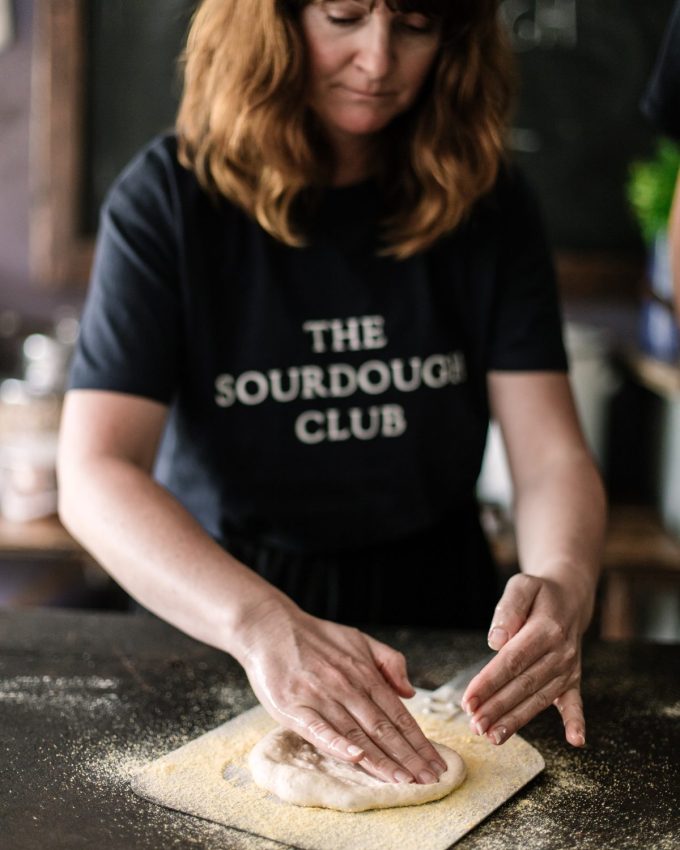 At The Sourdough School, both The Certificate and the Diploma are online courses. However, for domestic bakers, we suggest The Sourdough Club, which is designed to provide an ongoing learning experience and support for domestic bakers who want to master the art of sourdough baking at home. The Sourdough Club is a comprehensive resource that enables members to expand their skills and knowledge in the world of sourdough, and we teach all the BALM protocol here.
At The Sourdough School, both The Certificate and the Diploma are online courses. However, for domestic bakers, we suggest The Sourdough Club, which is designed to provide an ongoing learning experience and support for domestic bakers who want to master the art of sourdough baking at home. The Sourdough Club is a comprehensive resource that enables members to expand their skills and knowledge in the world of sourdough, and we teach all the BALM protocol here.
Some of the key benefits of joining the Sourdough Club for a home baker include:
- Continuous learning: As a member, you will have access to a wealth of information, including tutorials, articles, and research studies. This allows you to deepen your understanding of sourdough and its associated techniques.
- Access to recipes: The Sourdough Club offers an extensive collection of recipes for various types of bread, pastries, and other baked goods. Members can experiment with new recipes and learn to incorporate sourdough into their daily meals.
- Supportive community: The Sourdough Club connects you with a community of like-minded bakers and enthusiasts. Through forums and group discussions, you can share your experiences, ask questions, and learn from others.
- Expert guidance: Members have the opportunity to interact with Vanessa and other sourdough experts through scheduled live sessions. These sessions provide a platform for direct communication, addressing questions or concerns related to sourdough baking.
By joining the Sourdough Club, home bakers can transform their passion for baking into a lifelong pursuit, continually expanding their knowledge and skills in the fascinating world of sourdough.
here.
Can I buy sourdough starter?
You can buy some of the sourdough starters we use here at the school through our online shop. We recommend the White Sourdough Starter Kit, which contains all the information you need to keep your new starter active and healthy.
The sourdough starter is carefully nurtured here at The Sourdough School, and we make sure it is sent out in peak condition. Starters are sent out twice a month and advised that they should be refreshed as soon as they arrive.
Where can I get your Sourdough School book?
You can order a signed copy of the Sourdough School book through our online shop.
The book is also available through Amazon, Waterstones, and lots of lovely independent bookshop
Can you sign my book personally for me?
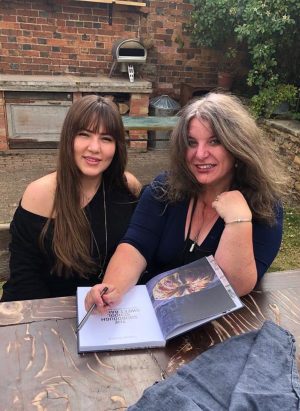
In person Yes, but online We are really sorry, but at this point in time, it just isn’t possible for Vanessa to write a personal dedication when you buy a copy of The Sourdough School book.
However, we are able to post you a signed bookplate, if you send us a self-addressed envelope, we will return a plate for you. Please contact us via the contact form.
Vanessa's work commitments simply don't give her the time to sign, wrap, and take individual books to the post office, but you can buy a signed copy through our online shop.
If you sign up to our mailing list we will let you know when Vanessa is doing a book signing, though.
We are looking into ways to include individual dedications, but for now, the only way Vanessa can sign your book in person is if you book a course.
Is The Sourdough School book available in any other languages?
Yes, the book has been published in German, Italian, Croatian and Spanish. There will be a US edition published in September 2018. For anyone who is struggling to get the book in their language, I’m sure there will be more editions coming out. But for now these are the languages it is available in, generally you will find this on the amazon listing in the country of publication, however you might need to search under the name Vanessa Kimbell as the title will have been translated.
Do I get a certificate when I attend a course?
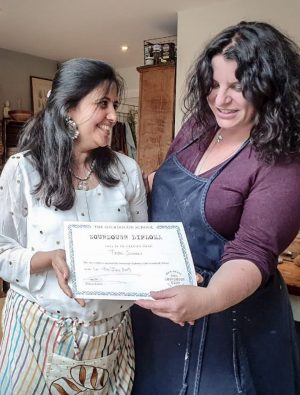 Yes. Each in-person student receives a personalised, signed certificate to confirm they have attended an in-person course at The Sourdough School.
Yes. Each in-person student receives a personalised, signed certificate to confirm they have attended an in-person course at The Sourdough School.
Should students wish, then they are added to our graduation board. We have trained many hundreds of people to bake. However, this is the first year of the board, and we are excited to see people graduating and putting their knowledge to use; please see the early days of our new Graduation Board Once students have demonstrated they understand all the principles that have been taught and are able to apply these in producing a sourdough loaf.
At the end of the in-person course, students complete a worksheet and undergo a practical assessment. This is definitely not an exam! But we do take the certification quite seriously so that each student can celebrate the fact that they have a diploma from The Sourdough School. We are here to guide you through the whole course and ensure that every student leaves the school confident and equipped to bake the most delicious sourdough bread.
At the end of the online courses students have to produce and edible exam. This is an example of a graduation recipe, which is then shared with all student in the school
Are the courses suitable for professional bakers?
We often get asked if our courses are suitable for professional bakers, or if they are designed solely for the home baker. The courses we offer teach the principles of everything you need to know about sourdough, whether you are a domestic or a professional baker. There are, of course, differences between the two - mainly in scheduling and quantities. But the principles and timings that underpin sourdough baking can be applied equally to a home kitchen or commercial bakery, and we find that Baking as Lifestyle e medicine is useful to all.
- For bakers wanting to teach Baking as Lifestyle Medicine we suggest you look at The Certificate here.
- For Healthcare professionals wishing to train in prescribing Baking as Lifestyle Medicine look here
- For Homes bakers who wish to learn how to bake for themselves and their families check out The Sourdough Club Membership here
- For anyone hating to totally emerse themselves in the experience of Baking as Lifestyle Medicine then you can learn more about attending a 7 day retreat + 1 year Certificate here
Vanessa trained and worked in bakeries
Vanessa trained and worked as a professional baker, so she is very conscious of scheduling and timings when working with large quantities. She is more than happy to discuss this as she is teaching. During the course we work with 1kg quantities. These can, of course, easily be scaled up in a professional bakery, because we are working with baker’s percentages and ratios.
So yes, absolutely, the principles we teach at The Sourdough School on Baking as Lifestyle =Medicine are very much applicable to professional bakeries. But please bear in mind that this is classroom-based teaching, and some specific tips and techniques that might be useful in a professional setting will not be demonstrated during the course.
Can you answer some questions I have about my sourdough baking?
Unfortunately Vanessa is not able to answer individual questions that are emailed.
We receive dozens of home bakers looking for advice. Some of these involve very detailed explanations of what they are doing with their starter and their dough. Whilst we appreciate that people want help with their sourdough, we are a small business and simply don’t have the capacity to answer individual questions… there just aren’t enough hours in the day. You can however join The Sourdough Club, where Vanessa teaches live most weeks.
Generally we offer the following advice to those contacting us -
Vanessa’s book, The Sourdough School, is a comprehensive guide to sourdough, based on her years of baking experience. Reading the step by step introduction to sourdough, and working through the recipes will give you lots of baking practice and should help answer many of the question you have.
Consider booking onto one of our 12 month online courses with tuition from Vanessa. There are three courses available, each one suitable for different levels of baking experience. The cost of the course includes a sourdough starter and a ceramic pot to keep it in, 12 months of guided tuition through a wealth of online material, and two skype calls with Vanessa to discuss your progress at key points during the course. These calls are a chance to learn, get lots of baking tips and ask any questions you might have regarding your own sourdough baking.
Do we have international students?
Yes.
Over the years we have welcome students from all over the world to the school. Our diploma courses are especially popular with international students. In the past few years we have had students from Europe, the Middle East, North and South America, Asia, and Australasia. It makes for a wonderful mix of cultures and languages in the kitchen while we bake!
If you are travelling to the school from overseas, there is detailed information on how to get here.
What is the maximum number of students that attend a course?
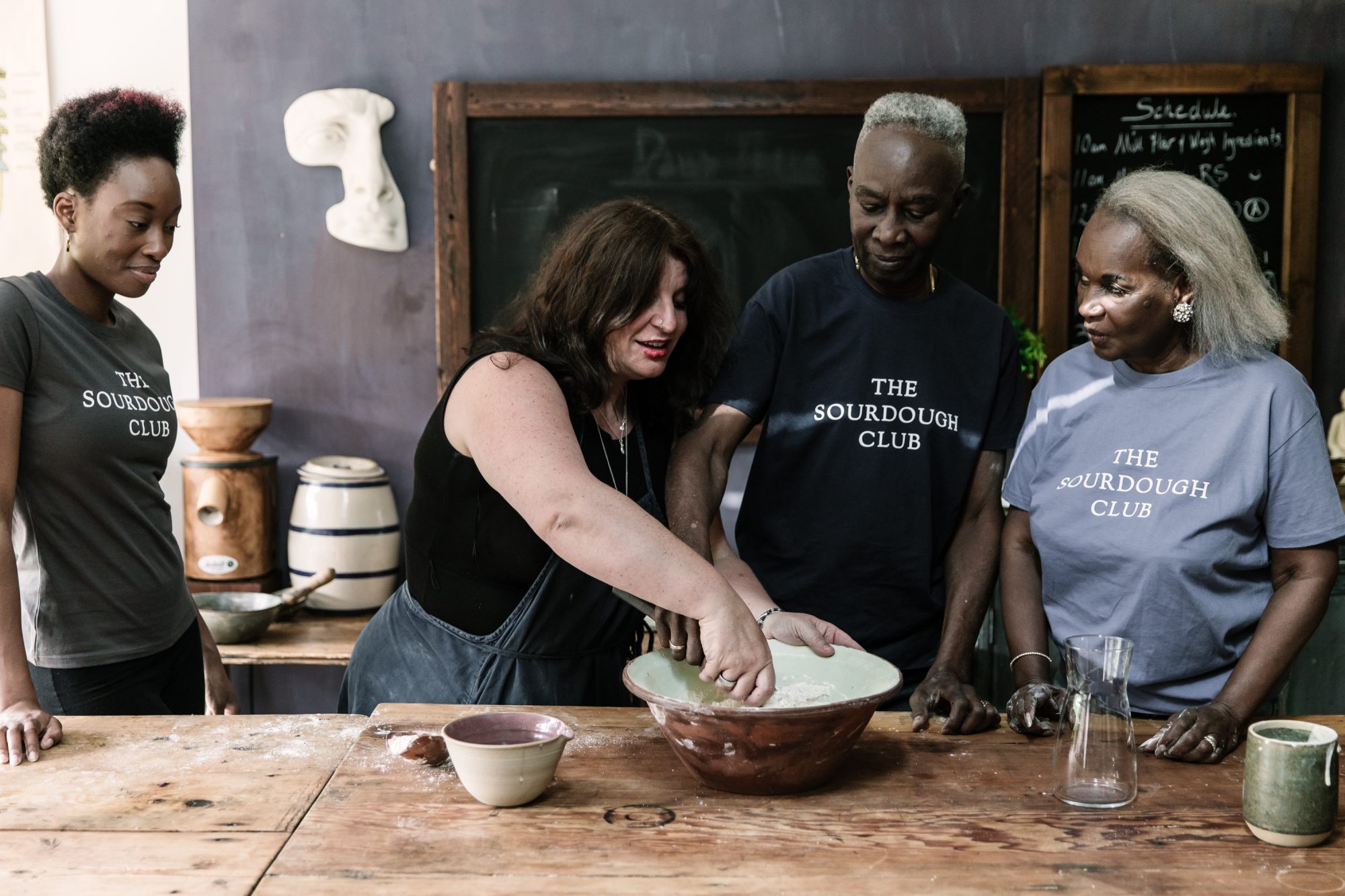
At The Sourdough School, we believe that a small class size is essential for an effective learning experience. Our preferred maximum number of students for most courses is six, especially for Diploma courses. This size strikes the perfect balance between creating a lively atmosphere filled with questions and enthusiasm while ensuring that each student receives the individual attention they may need.
In certain situations, we have taught classes of up to 12 students. The class size depends on factors such as the length of the course, the techniques being taught, and the recipes being used. For more academic courses that focus on demonstration and discussion rather than hands-on learning, we might accommodate up to twelve students. However, even with 12 students, our class size remains small and intimate.
If a course appears as fully booked on our website, we may be able to accommodate an additional student in exceptional circumstances. In such cases, please reach out directly to Vanessa at [email protected], so she can assess whether it is feasible to offer you a place in the course. We prioritize maintaining an optimal learning environment for all our students and strive to accommodate individual needs as much as possible.
Is there a waiting list for the courses?
We limit the number of students on our in-person courses to between 4 and 6.
This is so we can ensure there is time for each student to get some individual attention, and we can tailor the tuition to the interests of a small group. But it does mean that some classes get booked up very quickly, and not everyone can get a place on the course they want. We do keep a waiting list for courses once they are fully booked but, to be honest, we find that students rarely drop out once they have booked.
If you have tried to book a particular course but have found that it is already full, there are a number of options you might like to consider…
Firstly, you can add your name to the waiting list by emailing [email protected], stating your name and the course you are interested in.
Alternatively, you might like to join The Sourdough Club. This gives you access to step-by-step lessons, including videos, and a lot of sourdough-related information. Membership of The Sourdough Club brings you into our international community of sourdough bakers, and allows you to learn in your own kitchen at a pace that suits you.
Question: How many students will attend a course?
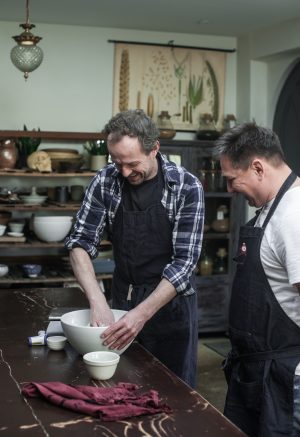 My preferred number of attendees for workshops and retreats ranges between 4 and 6. This count strikes a balance between fostering a vibrant and engaging environment and ensuring personalized attention for each participant.
My preferred number of attendees for workshops and retreats ranges between 4 and 6. This count strikes a balance between fostering a vibrant and engaging environment and ensuring personalized attention for each participant.
For one-day events, which are typically more academic, we can host up to 12 individuals. Please note that these sessions primarily involve demonstrations and discussions as opposed to hands-on baking due to the larger group size.
For larger events, we can accommodate up to 18, such as the Tuscan baking week.
In the case of a course appearing fully booked on our website, there may be circumstances under which we can accommodate an additional student. Should this be your situation, please reach out directly to Libiana@sourdough.co.uk. She will then determine if offering you a place on the course is feasible.
Refund policy and pausing your Online Course
Our Commitment to Educational Access: Explaining Our No Refund Policy
To enable this cycle of reinvestment, we have a no-refund policy for our courses. We want to ensure that all potential students are aware of this policy at the time of enrolment. This approach allows us to plan for and allocate scholarships and support our social prescription baking scheme effectively.
We understand that life can sometimes be unpredictable, and we want to accommodate our students' needs as much as possible. Therefore, if you need to take a break after starting a course, you can pause and resume at your convenience.
Before you enrol, please make sure to familiarize yourself with our policies and the unique social enterprise model of The Sourdough School. We are here to support your learning journey and empower you to become part of a movement for systems change in the world of baking, health, and social equality.
Terms and conditions We are passionate about providing education to as many people as possible, regardless of their financial circumstances. As both a small business and a social enterprise, we strive to use our resources effectively and inclusively.
Each year, we calculate our tuition fees and allocate our scholarships, bursaries, and awards accordingly. This calculation is based on the assumption that once a student accepts a course, they commit to completing it, and the tuition fees they pay are dedicated to implementing our systems change programme.
Our no refund policy, in the simplest terms, is integral to our ability to provide this opportunity to others. For every person who pays for a course, we can extend the training and education to two people who would not ordinarily have the opportunity. This approach aligns with our values of inclusivity and learning accessibility.
Refunding course fees would significantly impact our ability to run this programme. Therefore, instead of providing refunds, we offer the option to pause your course. We've found this to be a supportive and inclusive solution, allowing students to return when they are ready without financial loss.
For the 2022/23 Programme, we generated £50,000 in revenue and awarded £150,000 worth of scholarships and awards. To continue operating and providing these opportunities, we cannot offer refunds. This is why we have a strict application process and require all applicants to fully understand and agree to our no-refund policy.
If unforeseen circumstances arise and you are unable to continue with your course at this time, we can pause your course and re-enroll you the following year. We believe this approach respects both our commitment to providing educational opportunities and our students' varying life situations.
Thank you for understanding and supporting our mission to make sourdough education accessible for all.
To pause your course, please fill in this interruption of study below, and we will transfer you to next year's course.
Do you have office opening hours?
Office Admin Hours.
Truthfully we don’t really hang out in the office.
We find computers, flour and water don’t mix. Mostly we are in the school baking, teaching or filming, so we respond to emails and non-urgent queries on emails and Vanessa does a live session each week for any queries.
This session is ideal if you want to speak directly to me. I find this a much quicker way to answer peoples queries than long emails!
If you would like to ask a question we will review it and send you an invitation to attend. The sessions are NOT shown on the catch up, so you will need to attend live. You are muted and asked to be respectful of the other students in the meeting. It is an open session and I am happy to chat with people once I have answered any questions sent in, and I have enough time.
Sessions are 45 minutes long. I am very sorry but this is the time limit as I have to be in another tutorial at 5pm.
Topic: 4pm Open Session Vanessa Kimbell at The Sourdough School ( Terms time Only)
Join Zoom Meeting
https://us02web.zoom.us/j/89781518036?pwd=bzdvWElibUFMdVd2b1ovRitWNUNTdz09
Meeting ID: 897 8151 8036
Passcode: 813462
Session are every Thursday 4pm ( London Time ) starting this 29th September 2022 and run through out this term.
Can you please explain the Baking As Lifestyle Medicine (BALM) Protocol?
The BALM Protocol is integral to the course taught at The Sourdough School because it addresses the complex system of baking, eating, and sharing bread in a way that promotes health, well-being, and environmental sustainability. It simplifies this complex system by focusing on 7 core principles, which are grounded in evidence-based practices and the 6 pillars of lifestyle medicine.
By teaching the BALM Protocol, The Sourdough School provides students with a gold standard framework for creating and consuming bread that nourishes both the body and the mind while also supporting the environment. This holistic approach to bread-making ensures that students learn how to create bread that can prevent, treat, or modify non-communicable chronic diseases while also empowering positive change at various levels within the food system.
The BALM Protocol can be applied by individuals through prescription courses, by healthcare professionals such as GP's, and by bakeries, as well as used to influence Population Health Management through industrial applications. By teaching the BALM Protocol, The Sourdough School enables students to understand the importance of each component, from using diverse Botanical Blend flours and fermentation techniques to promoting healthy eating habits and reducing the consumption of sugar and ultra-processed foods.
In summary, the BALM Protocol is an essential part of the course taught at The Sourdough School because it provides a comprehensive and evidence-based framework for baking, eating, and sharing bread that benefits physical and mental health and supports environmental sustainability. By learning and implementing the BALM Protocol, students gain the knowledge and skills necessary to create bread that nourishes and empowers positive change within the food system.
What do I need to do to graduate?
Rising to the Challenge - you will need to create a BALM recipe
Our graduation process is a radical departure from traditional learning and assessment methods, placing a strong emphasis on practical application, sharing, community, and continuous learning.
It has been designed to be a learning experience for individual students but also creates a ripple effect of knowledge and healthy practices within the wider community. We ask you to create and share a BALM recipe which on graduation is published on your graduation page.
. In most traditional educational settings, the knowledge acquired is tested via exams, after which the exam paper is essentially discarded. The student proves their understanding but doesn't contribute anything tangible or reusable to the learning community. By contrast, creating and sharing a recipe is a unique way of demonstrating one's learning while also contributing to the community.
What is important is that this recipe can be used, enjoyed, and learned from by others, fostering a more communal and contributory spirit of learning.
The recipe it requires real life application of the principles of BALM, and students must demonstrate they can take the principles they've learned and create something practical and useful. This encourages a deeper level of understanding and engagement with the material

Social Enterprise and Values
Pausing Your Course
In line with our policy of supporting others to achieve their aims, we do not limit the amount of time that it takes to graduate online. Life and be challenging and circumstances change so we try to be as flexible as possible.
Whilst we do not give refunds, we do offer the opportunity to stop and transfer your course to the following year, in line with our terms and conditions.
To pause your course please fill in this interruption of study below and we will transfer you to next year's course.
Please select a valid form.
How does BALM Protocol work?
We take immense pride in our awards, totalling four times our turnover last year, a testament to our dedication to the community.
The BALM (Baking as Lifestyle Medicine) programme offered by The Sourdough School operates as a social enterprise, embodying a living syllabus that is continuously evolving and growing. Shaped by ongoing research, feedback, and lectures and tutorials are delivered by many people. With contributions from a diverse community of experts, the programme offers a unique, multidisciplinary, and evidence-based approach to lifestyle medicine through baking. Our commitment to broadening access to education and promoting inclusivity is demonstrated through our awards programme, providing scholarships and bursaries.
Graduates of our BALM diploma course are empowered with a prescription license.
A prescription licence enables graduates to prescribe BALM vouchers for social prescribing to their patients via The Sourdough Club. This means the benefits of our programme extend beyond the immediate participants, reaching patients and the wider community. - We have given over £75,000 of social prescription memberships from The Sourdough Club.
Through our unique and ever-evolving BALM programme, The Sourdough School is leading the way in demonstrating the transformative potential of baking as a tool for lifestyle medicine. Our commitment to providing accessible, evidence-based education and supporting our students to bring about systems change in their own practice contributes to improved health outcomes and well-being in the community.
Our course delivery is flexible, accommodating various learning preferences and geographic constraints. We offer both in-person and online courses, enabling accessibility and convenience for all participants. The curriculum combines lectures, tutorials, practical baking sessions, and regular live support sessions through The Sourdough Club, ensuring a comprehensive learning experience.
Engaging
What sets the BALM programme apart is its engaging, conversational style, encouraging participants to partake in inspiring conversations that motivate lifestyle changes. This approach ensures that our courses are not just about imparting knowledge but also inspiring action and personal growth.
A critical aspect of our programme is the extensive database of over 700 categorized academic studies available to students as part of their course. This resource allows students to delve deeper into the evidence base supporting the BALM protocol, enhancing their understanding and fostering a greater appreciation for the science of baking and its impact on health.
Contributions to the course from various leading experts in their respective fields add richness to our programme. They bring their wealth of knowledge, real-world experiences, and unique perspectives, creating a dynamic and engaging learning environment. Through this collaborative approach, our programme continually evolves in response to new insights, research findings, and the diverse needs of our students.
How does The Sourdough School company’s activities benefit of the community
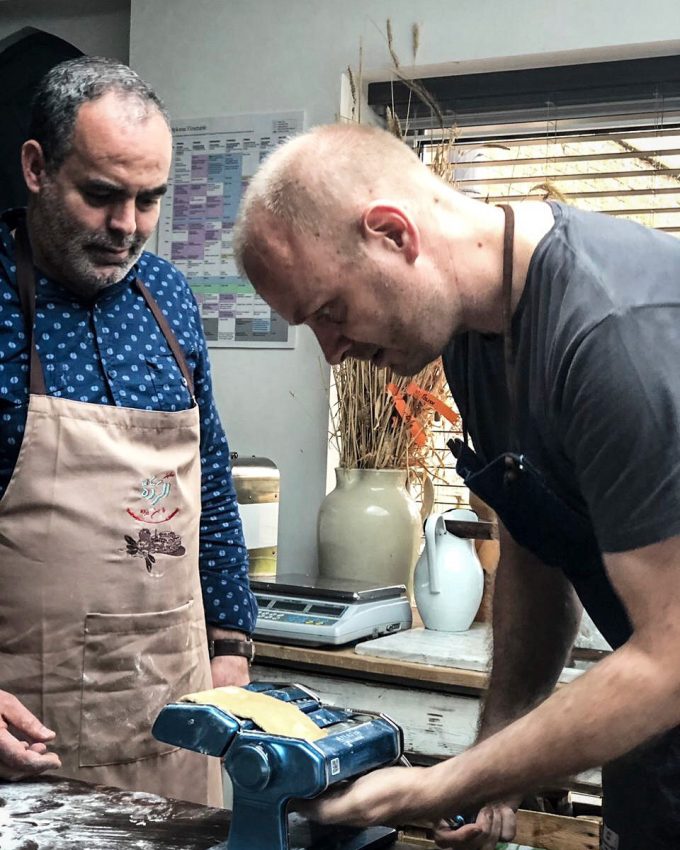 The Sourdough School activities extend far beyond mere baking instruction, sparking systemic change that benefits the community and public health at large. Our programmes facilitate the diffusion of health-enhancing practices throughout the community, promoting wellness, fostering social connection, and uplifting local agriculture.
The Sourdough School activities extend far beyond mere baking instruction, sparking systemic change that benefits the community and public health at large. Our programmes facilitate the diffusion of health-enhancing practices throughout the community, promoting wellness, fostering social connection, and uplifting local agriculture.
A key foundation of our work is the robust evidence base underlying Baking as Lifestyle Medicine (BALM). Our dietary intervention studies have consistently shown the positive impacts of our approach on health outcomes. Participants who followed our BALM regimen experienced meaningful improvements in gut microbiome diversity, increased dietary fibre intake, and reported lower levels of constipation and bloating. Notably, they also reported better sleep and significant enhancements in mental health scores. These findings are scientifically compelling and serve as powerful testimonies to the transformative potential of BALM on individuals' health and well-being.
Furthermore, baking can serve as a profoundly empowering and connecting activity. It is an affordable source of nutrition that offers therapeutic benefits, instils a sense of purpose, and fosters community connection. The 'bake two, share one principle encourages individuals to actively contribute to the health of their community, thereby reducing social isolation and fostering a stronger sense of communal support and belonging.
Our focus on regenerative agriculture and local sourcing further amplifies the benefits to the community. By championing these practices, we support local farmers and biodiversity and contribute to the larger movement toward sustainable food systems. Using local, high-quality, and sustainable ingredients benefits all stages of the food chain, from the soil to the consumer, leading to healthier ecosystems and healthier people.
For healthcare professionals and the National Health Service (NHS), the empowerment model of BALM presents an innovative approach to wellness that goes beyond traditional medicine. It presents a proactive, preventive health strategy, potentially reducing strain on healthcare resources by promoting long-term health through diet and lifestyle change.
Which Applicants do we award Scholarships and Bursaries to?
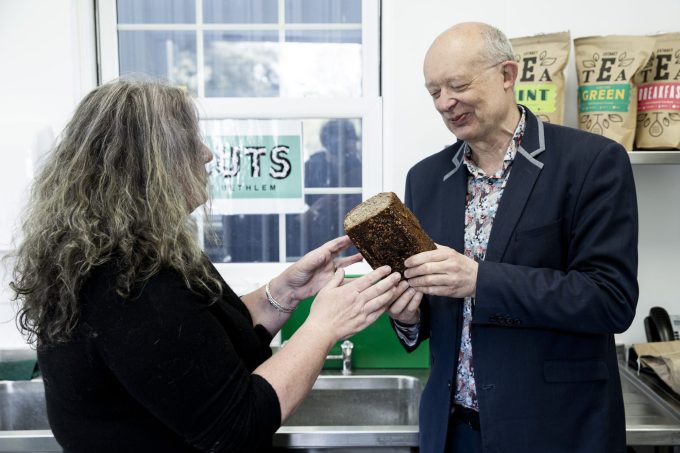
If you are applying for an award, then it is useful to understand that the programme seeks applicants who can use the BALM principles to create a significant impact. Whether you come from the healthcare sector, industrial baking, or a baker in the local community. The focus is on empowering individuals to make a tangible difference in public health outcomes through the transformative power of baking as lifestyle medicine.
The most suitable AWARD applicants would be those who can demonstrate the following:
- You have the capacity to Influence Health Outcomes: The ideal award recipient would have a platform or position that enables them to directly influence health outcomes on a significant scale. This might include professionals such as healthcare practitioners, dieticians, GPs, oncologists, and other medical professionals or social prescribers who have the ability to implement and prescribe the BALM framework within their practice.
- Bakers and Bakery Operators: Bakers who own, manage, or work in a bakery - from a small community bakery to a large industrial bakery - all professional bakers are excellent candidates. They have the potential to apply the BALM principles in their practice, transforming the production and delivery of bread on a public health scale.
- Potential for Systems Change: Those who can articulate a clear plan for how they will utilize the BALM framework and prescription license to affect systems change within their sphere of influence. GP surgeries, Applicants should detail how the AWARD will help them introduce BALM principles into their work, alter existing practices, and promote healthier outcomes in their communities.
- Commitment to the Community: Applicants who show a clear commitment to enhancing their community's health and well-being. They should demonstrate a willingness to go beyond their immediate responsibilities and use the BALM framework to improve their communities' health outcomes.
- Alignment with BALM Values: The ideal candidates are those who align with the core values of the BALM programme. This includes a commitment to evidence-based practice, an emphasis on regenerative agriculture, a dedication to promoting gut health and environmental diversity, and a belief in baking as a tool for systems change.
Home bakers who wish to learn baking as a lifestyle medicine are encouraged to apply for a social discount to The Sourdough Club membership. While they may not have the same scale of influence as those in the healthcare sector or industrial baking, their passion for baking and commitment to improving their own and their family's health aligns with the values of BALM.
The Diploma
What are the Key Learning Objective of The Diploma?
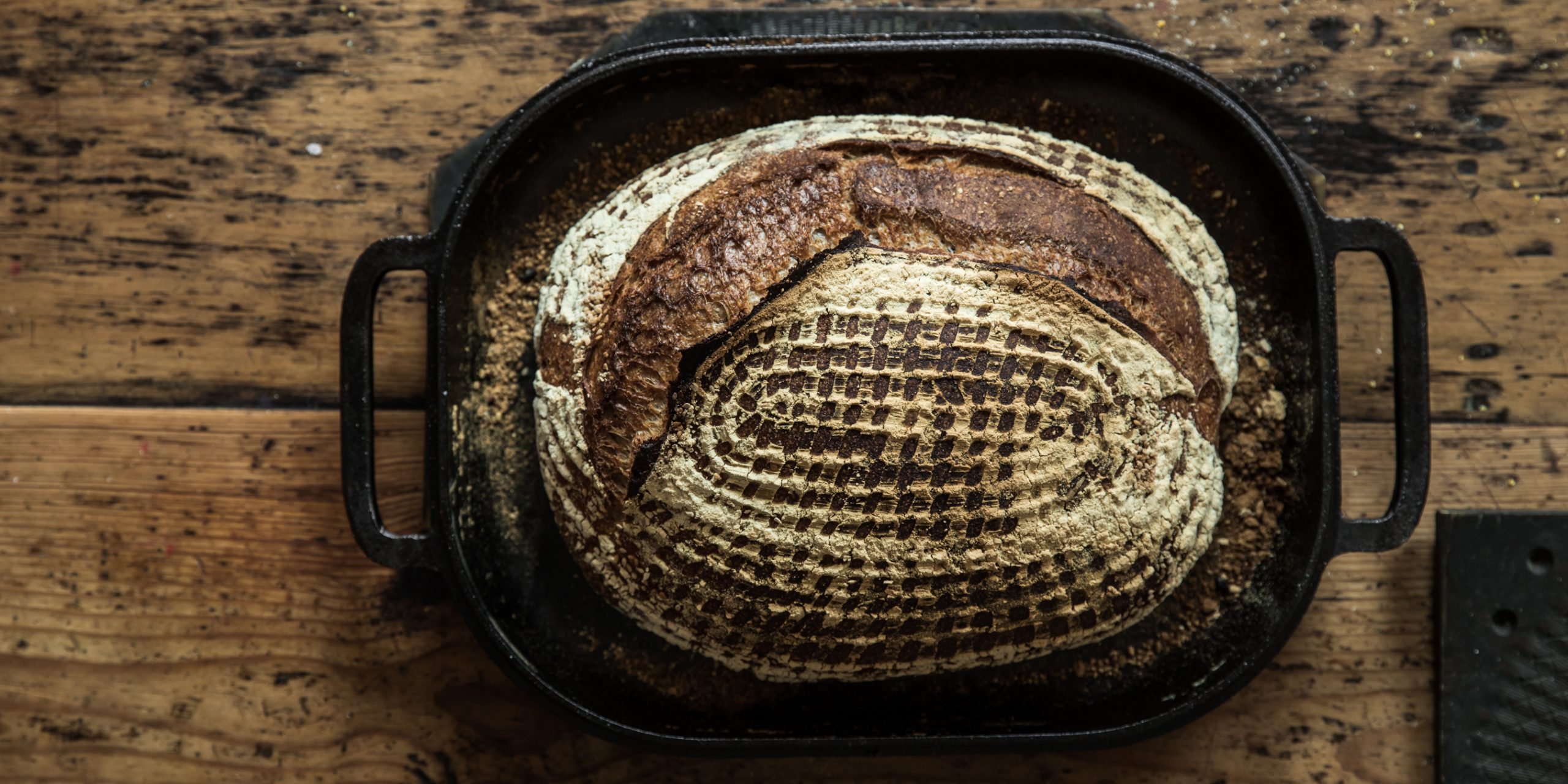 Learn to personalise bread.
Learn to personalise bread.
Bread is possibly one of the most misunderstood foods on the planet. When made well, according to the BALM Protocol, bread can support health; on the other hand, poor quality bread will ruin your health when eaten over a lifetime. It is time that we better understand that the way we respond to bread is unique. Personalising bread is a transformative approach to nutrition, focusing on tailoring bread recipes to the individual, taking into account their gut microbiomes and lifestyle factors.
It is about acknowledging the uniqueness of each person's response to bread, driven not just by differences in DNA, microbial composition, and daily habits but also by the way in which people eat their bread.
Cutting-edge knowledge of bread, the gut microbiome and lifestyle medicine
Being able to offer a bespoke dietary solution to enhance health and well-being. Personalisation extends beyond mere baking; it incorporates dietary patterns and lifestyle changes to optimise gut health, nutrient absorption, and overall metabolic health. You will learn how customisation supports preventative health measures, potentially mitigating future health issues by aligning bread consumption with personal health needs and preferences. This approach represents a cutting-edge integration of nutrigenetics and lifestyle medicine, enabling individuals to make informed, health-supportive choices in their baking and eating habits. You will understand and learn how to personalise bread as well as how to bake, eat, and share each approach to bread. You will also learn the many ways that you can personalise bread for many health and social reasons.
Throughout the course, you will:
-
- Learn how to personalise bread baking as lifestyle medicine, which is about helping people avoid lifestyle diseases by empowering them to bake, eat, and share bread. When applied as Lifestyle Medicine, it is a practical and achievable way to improve health. For healthcare practitioners, you will also learn how to use this to prescribe Baking As a Lifestyle medicine to comply with NHS social prescribing guidelines.
- Understand Long, Slow Fermentation: Learn the mechanisms of how this process transforms bread and enhances gut microbiome and mental health through the Sourdough School Bread protocol.
- Impact of Mass-Produced Bread: Explore how low-quality bread and baked goods negatively affect health.
- Gaining Insight through Biome Testing: Assess the impact of the BALM Protocol on gut microbiome and health by conducting biome tests and consulting with Research and Medical Directors.
- Appraise Case Studies: Review Sourdough School case studies showcasing improvements in physical and mental health outcomes.
- Apply Knowledge in Clinical Practice: Medical professionals can obtain a practitioner's license to prescribe BALM as part of their practice.
- Professional Skill Enhancement: Engage in continuous learning through workshops, seminars, and research on Baking as Lifestyle Medicine.
- Build Supportive Networks: Connect with healthcare professionals and bakers to share experiences and collaborate on health-promoting baking projects.
- Positive Community Impact: Understand how BALM can enhance community health through initiatives like the 'bake two, share one' principle.
- Recognize Social Prescription as Activism: Learn how prescribing BALM is a powerful form of health activism.
- Create and Share Case Studies: Develop and share a case study and a bread or cake recipe demonstrating the BALM Protocol.
- Prescribe BALM: At the end of the module, prescribe BALM based on a successful, ethically compliant case study.
- Weekly Baking Application: Use scientific knowledge from the syllabus to guide weekly baking and recipe creation.
- Mentoring Opportunities: Optionally mentor a young healthcare professional in the principles of BALM.
Transforming the simple act of baking, eating and sharing bread into a powerful tool for personal health management.
- Preventive Health: Understanding the impact of bread types, such as the fibre content in whole grains, on gut health can inform dietary recommendations for conditions like bowel cancer or cardiovascular disease.
- Lifestyle Diseases: The glycaemic index of bread is crucial for managing blood sugar levels, aiding in the prevention and management of conditions like Type 2 Diabetes, obesity, and hypertension.
- Mind and Body Wellness: Different bread types can influence the gut-brain axis, affecting mental well-being and cognitive functions.
- Neurodiverse Needs: Tailoring bread consumption can play a role in dietary management for individuals with ADHD or autism spectrum disorders.
- Nutritional Goals: Bread's nutritional composition, including fibre, vitamins, and minerals, is key for gut health and overall nutrition.
- Weight Management: Choosing the right type of bread can be integral to a balanced diet for weight control.
- Digestive Health: Specific bread types can help manage conditions like IBS, gas, bloating, Crohn's Disease, and Diverticulitis.
- Immune System Support: High-nutritional-value bread can bolster the immune system, aiding recovery from illness or inflammation.
- Gluten Sensitivities: Understanding how different breads affect gluten sensitivity or wheat intolerance is crucial for dietary choices.
- Specific Diet Support: Bread choices can complement dietary needs like vegetarian, vegan, or paleo diets.
- Dietary Management for Medical Conditions: Bread type is important for blood sugar control in diabetes management.
- Medical Treatment Support: Certain breads may be more suitable for patients undergoing chemotherapy or radiation therapy treatments.
- Clean Eating Goals: Organic and naturally sourced breads align with reducing exposure to pesticides and herbicides.
- Mental Wellbeing: The gut-brain axis influenced by bread consumption can impact mood balance, anxiety, and depression.
- Performance Enhancement: The right type of bread can support athletic performance and endurance.
This module is also the foundational knowledge for healthcare practitioners to use bread as a personalised tool for enhancing health and well-being, aligning with individual patient needs and health objectives for social prescribing baking as lifestyle medicine.
Key Topics on the Diploma
Are there any medical conditions that can be supported through personalisation of Bread?
Bread, especially when tailored according to the principles of Baking as Lifestyle Medicine (BALM), can play a preventative, and supportive role to optimise health in a variety of health conditions by addressing specific nutritional needs and promoting overall gut health. Here's a comprehensive list of conditions that can potentially benefit from medically tailored bread:
- Inflammatory Bowel Disease (IBD): Specially formulated bread can help manage symptoms by incorporating easily digestible, low-FODMAP ingredients that reduce gastrointestinal distress.
- Cardiovascular Disease (CVD): Whole grain, high-fiber bread can lower cholesterol levels and improve heart health by reducing blood pressure and inflammation.
- Diabetes (Type 2): Low-glycemic-index breads can help manage blood sugar levels by incorporating whole grains and seeds that slow glucose absorption.
- Obesity: High-fiber, nutrient-dense breads can promote satiety, helping to manage weight by reducing overall calorie intake.
- Celiac Disease: Gluten-free sourdough breads made from naturally gluten-free grains can provide safe and nutritious options for those with gluten intolerance.
- Irritable Bowel Syndrome (IBS): Bread made with low-FODMAP ingredients can help minimize IBS symptoms by avoiding triggers such as wheat, rye, and barley.
- Allergies and Food Sensitivities: Tailoring bread and baking to exclude specific allergens (like nuts, dairy, or eggs) can help individuals avoid allergic reactions while still enjoying bread.
- Metabolic Syndrome: Incorporating whole grains and seeds rich in omega-3 fatty acids and fiber can improve metabolic health by regulating blood sugar and reducing inflammation.
- Non-Alcoholic Fatty Liver Disease (NAFLD): Bread rich in antioxidants and healthy fats can support liver health by reducing liver fat accumulation and inflammation.
- Osteoporosis: Fortifying bread with calcium, vitamin D, and magnesium can support bone health, particularly in postmenopausal women.
- Mental Health Conditions (such as depression and anxiety): Fermented breads rich in probiotics can influence gut-brain communication, potentially improving mental health through the gut-brain axis.
- Autoimmune Diseases: Gluten-free or low-inflammatory ingredient breads can reduce inflammation, potentially benefiting conditions like rheumatoid arthritis and Hashimoto's thyroiditis.
- Cancer Prevention: High-fiber breads can promote digestive health and reduce the risk of colorectal cancer by enhancing bowel movement and reducing transit time.
Each of these conditions can benefit from a tailored approach to bread-making, where the choice of ingredients, fermentation process, and nutritional profile are aligned with the specific health needs and dietary restrictions of individuals. This approach not only makes bread a versatile component of a therapeutic diet but also empowers individuals to use food as a tool for managing and potentially preventing chronic health conditions.
What Makes the Diploma such a unique course?
The Sourdough School Diploma is an engaging, collaborative learning experience
Of course, I would say this: It is far better to listen to students who have attended the courses and what they have to say. You can see a video of one of our graduates, Melanie, here talking about how she uses BALM protocol and applies the knowledge.
Here how we teach personalisation of bread and baking as preventative healthcare and lifestyle medicine
- You Follow a Dynamic Weekly Modules:
- Each module features its own unique live discussion, typically updated towards the end of the week. This allows students to prepare and engage actively in the upcoming week’s topic.
- You attend Interactive Live Feedback Sessions:
- Scheduled either on Tuesdays or Thursdays, these sessions are vital for real-time feedback and discussion. Students can submit questions in advance, which are then addressed during the session, often with screen sharing to guide them to relevant resources within our extensive library.
- You access Comprehensive Lesson Libraries:
- Our course includes over seven hundred hours of lessons. While the Diploma course is curated to a concise format, students have access to this expansive resource for deeper exploration.
- We Have a Community-Based Learning Approach:
- Emphasising community learning, our course fosters a collaborative environment where diverse questions and perspectives enrich the learning experience.
- Accessibility and Inclusion:
- Live sessions are recorded with captions to cater to diverse needs, including different time zones, languages, and learning paces. We also accommodate dietary requirements and provide glossaries to support students with language barriers.
- I run Drop-In Open Sessions:
- Regular drop-in sessions at 4 pm allow students to seek clarifications or assistance on the syllabus, as well as receive technical support. These sessions provide an opportunity for personalised interaction and ensure that all students, regardless of their specific needs, are fully included in the learning process.
- Your experience is Essential for Personalisation and Application:
- The course includes personalised elements, such as the blood sugar module, where students observe their own responses to different breads. This practical application of the Baking as Lifestyle Medicine (BALM) protocol allows students to understand the impact of bread on a personal level.
- Living Life as Inquiry:
- Our teaching philosophy is rooted in ‘living life as inquiry’, an academic approach that encourages students to create their own knowledge through experience and reflection. This methodology supports a deeper understanding of the interdisciplinary nature of baking, nutrition, and wellness.
- We welcome Transdisciplinary Perspectives:
- The course brings together a diverse range of students, including farmers, gastroenterologists, and nutritionists, creating a rich learning environment. This diversity encourages students to consider multiple perspectives, enhancing their understanding of systems change and sustainability in food production.
- Your Assessment is Through Participation:
- Participation in live discussions is a key component of our assessment method. Engaging in these dialogues allows Dr. Kimbell and the team to understand each student’s progress and provide tailored guidance.
Learning Outcomes: By participating in this course, students will acquire a comprehensive understanding of baking as lifestyle medicine, including practical skills in sourdough bread-making and a deep knowledge of the nutritional aspects of bread. They will also develop the ability to apply these principles as personalised nutrition, enhancing both their health and that of their clients and customers.
Will I learn to make Sourdough on the Diploma?
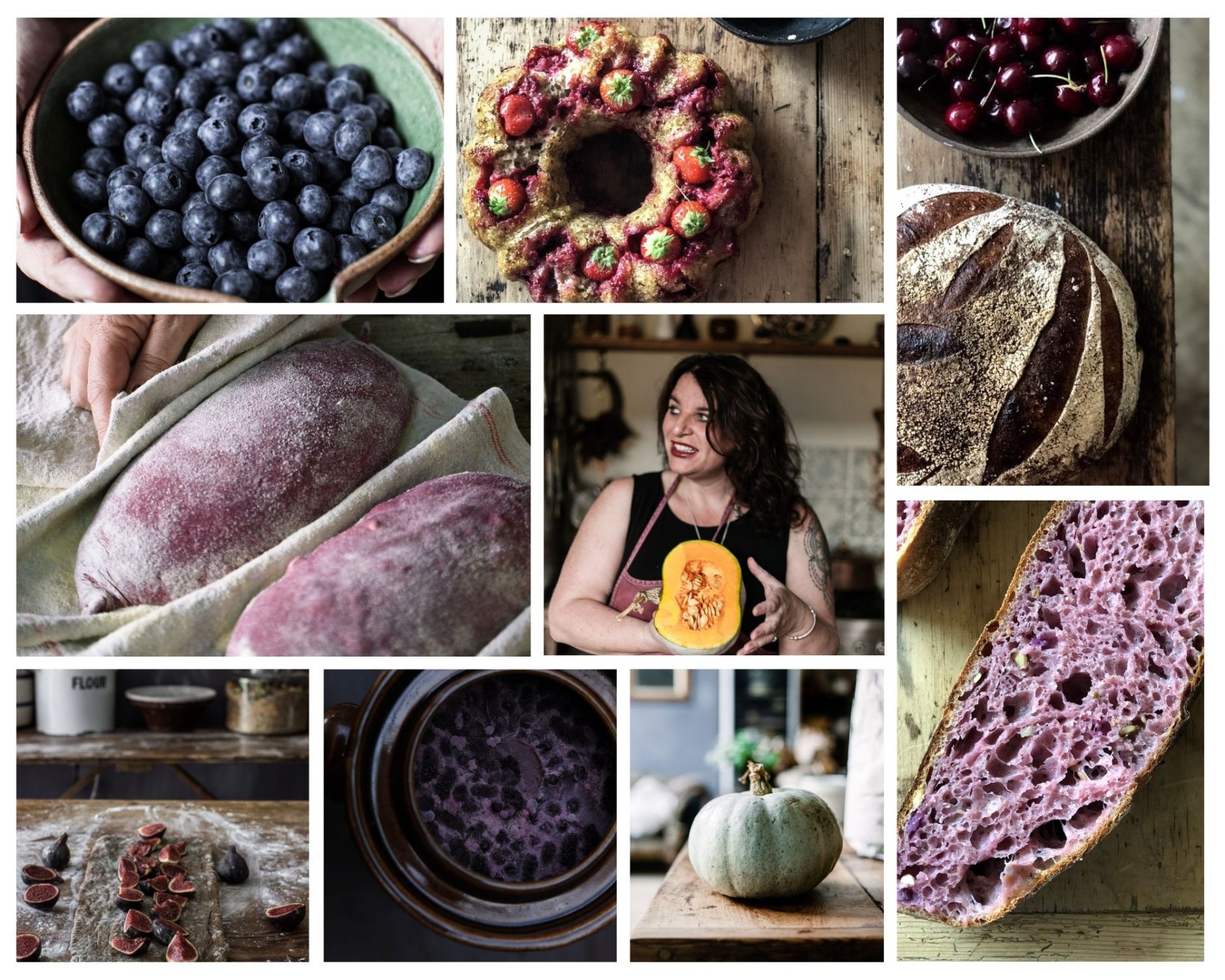 To put this simply, you will learn every aspect of baking Sourdough bread to an advanced level
To put this simply, you will learn every aspect of baking Sourdough bread to an advanced level
Dr Kimbell is one of the most renowned sourdough bakers; with a lifetime of baking, the practical module builds your knowledge each week and will take you beyond the standard baking approach to bread, and you will be amazed at how your artisan baking skills build on this course.
So yes, you will learn how to make sourdough. You will also learn to understand the Sourdough process, fermentation mechanisms, and its impact on health. Baking is key to being able to prescribe.
- You learn baking as a separate module called BALM Practical. You will learn the following:
- How to look after many types of starter
- How to create a botanical blend
- How to control the flavour of sourdough
- How to blend and mill your own flour
- How to make a classic sourdough boule
- Which variables affect the fermentation?
- How much to hydrate your bread by
- How to get an open crumb structure
- About fibre, protein & gluten in the flour
- Understanding shaping & Scoring
- An overview of nutrition & digestibility of bread
- Eating symbiotically for optimal gut health
- Why diversity is key to gut health
- About the gut microbiome and why the kind of bread you eat matters
- Probiotics & prebiotics
Does The Sourdough School have a complaints Procedure?
The Sourdough School Complaints Procedure
The The Sourdough School does have a complaints procedure.
We view complaints as an opportunity to improve for the future, as well as a chance to put things right for the person [or organisation] that has made the complaint.
Our 6-step approach is to:
- To provide a fair complaints procedure which is clear and easy to use for anyone wishing to make a complaint
- To make sure all complaints are investigated fairly and in a timely way
- To publicise the existence of our complaints procedure so that people know how to contact us to make a complaint
- To make sure everyone at The Sourdough School knows what to do if a complaint is received
- To make sure that complaints are, wherever possible, resolved and that relationships are repaired and apologise.
- To gather information which helps us to improve what we do and implement changes to prevent this from happening again.
What is the definition of a complaint?
A complaint is any expression of dissatisfaction, whether justified or not, about any aspect of The Sourdough School
Where do complaints come from?
Complaints may come from any individual, volunteer or organisation who has a legitimate interest in THE SOURDOUGH SCHOOL including the general public if something is perceived to be improper. A complaint can be received verbally, by phone, by email or in writing. This policy does not cover complaints from staff, who should refer to HOPE UK’s internal policy on such matters.
Confidentiality and responsibility
All complaint information will be handled sensitively, telling only those who need to know
Overall responsibility for this policy and its implementation lies with the board of Directors
This policy is reviewed regularly and updated as required. Publicised Contact Details for Complaints: Written complaints may be sent to The Sourdough School
Complaints may also arrive through channels publicised for that purpose or through any other contact details or opportunities the complainant may have, such as social media. Complaints received by telephone or in person need to be recorded.
Telephone complaints
The 6 step process for the person who receives a phone or in person complaint should:
- Write down the facts of the complaint
- Take the complainant's name, address and telephone number
- Note down the relationship of the complainant to The Sourdough School e.g. student, customer, club member, volunteer, sponsor, supplier
- Explain to the complainant that we have a formal complaints procedure
- Explain to the complainant what will happen next and how long it will take
- Where appropriate, ask the complainant to send a written account via the form below so that the complaint is recorded in the complainant’s own words
Resolving Complaints
Step One
In most cases, a complaint is best resolved by the person responsible for the issue being complained about. If the complaint has been received by that person, they may be able to resolve it swiftly and should do so if possible and appropriate. Whether or not the complaint has been resolved, the complaint information should be passed to The Sourdough School Director within five business days.
On receiving the complaint, the Director needs to contact the complainant. If it has not already been resolved, they delegate an appropriate person to investigate it and to take appropriate action. If the complaint relates to a specific person, they should be informed and given a fair opportunity to respond.
Complaints should be acknowledged by the person handling the complaint within five working days. The acknowledgement should say who is dealing with the complaint and when the person complaining can expect a reply.
A copy of our complaints procedure should be attached. Ideally complainants should receive a definitive reply within a month. If this is not possible because for example, an investigation has not been fully completed, a progress report should be sent with an indication of when a full reply will be given. Whether the complaint is justified or not, the reply to the complainant should describe the action taken to investigate the complaint, the conclusions from the investigation, and any action taken as a result of the complaint.
Step Two
If the complainant feels that the problem has not been satisfactorily resolved at Stage One, they can request that the complaint is reviewed at Board level.
At this stage, the complaint will be passed to the Board The request for Board level review should be acknowledged within five working days of receiving it. The acknowledgement should say who will deal with the case and when the complainant can expect a reply. The Board of Directors may investigate the facts of the case themselves or delegate a suitably senior person to do so. This may involve reviewing the paperwork of the case and speaking with the person who dealt with the complaint at Stage One. The person who dealt with the original complaint at Stage One should be kept informed of what is happening.
If the complaint relates to a specific person, they should be informed and given a further opportunity to respond. Ideally complainants should receive a definitive reply within a month. If this is not possible because for example, an investigation has not been fully completed, a progress report should be sent with an indication of when a full reply will be given. Whether the complaint is upheld or not, the reply to the complainant should describe the action taken to investigate the complaint, the conclusions from the investigation, and any action taken as a result of the complaint.
Illegal practices
The decision taken at this stage is final, unless the Board feels that it is appropriate to seek external assistance with resolution if any illegal matters arise.
Please submit your complaint in this form
How we use your fees to run our Social Enterprise
A conscious decision to operate my business as something more than a commercial entity
As the concept of teaching people to bake for health took shape, it was initially framed by a simple ambition: to contribute, in whatever modest way I could, to the broader goal of making people understand our connection to sourdough. I am determined to change the way we understand bread and inspire change.
A commitment to share knowledge with those who might not ordinarily have the means to access it empowers change.
This was not just in my classes but through social media; I always responded to people to help. This wasn't about the pursuit of profit in the traditional sense. At its core, it was an exploration of how a business could transcend commercial boundaries to serve a deeper, more meaningful purpose - to change the world, for one person is changing the whole world.
In the early stages, the idea was somewhat formless; it was a feeling driven more by an intrinsic sense of duty than by a clear-cut plan. It became evident that there was a significant dichotomy between the availability of knowledge and its accessibility, but I felt that the true value of knowledge lies not in its accumulation but in its dissemination. Why, then, should access to transformative education and information be restricted to those who happen to have money?
I measure success by the impact on the community and the wider world.
More recently, as my understanding of the business world deepened, a phrase caught my attention and resonated with my evolving vision: "social enterprise." It was a total revelation. This was the articulation of my practice. The precise terminology to describe it existed. The realisation dawned on me that the path I had been navigating was not uncharted but instead aligned with a far broader movement that places societal impact at the heart of the entrepreneurial endeavour.
So whilst we do need fees to run, I do not measure success as profit. I measure success by the impact on the community and the wider world.
When are the live sessions and how often?
Live Sessions are weekly on Tuesdays in terms time - please see the Live Session Board for information
What if I miss a Live session or I am learning from a different time zone?
Do not worry - we have it cover. All the sessions are recorded and you have 4 weeks to catch up with them.
How you deliver The Diploma Course?
The Diploma at The Sourdough School goes far beyond any other course in the way we approach traditional baking education, delving into the art and science of personalising bread to enhance health and wellbeing. It's a comprehensive program designed not just to teach the craft of baking but to understand and apply the nuanced process of personalising bread to meet specific health needs, using our foundational Baking as Lifestyle Medicine (BALM) protocol.
Understanding How Our Courses Work:
- Module Structure:
- We offer two distinct modules: the Bake for Health Module and the Personalising Bread Module.
- Each module is designed to complement the other, providing a comprehensive learning experience.
- Bake for Health Module:
- This module focuses on the practical aspects of baking sourdough bread for optimal health.
- The content is structured into three syllabi, following the Oxbridge terms timetable.
- Weekly live baking clinic interactive sessions that are held on Tuesday evenings at 7 pm (GMT) to discuss course tasks and assignments.
- Participants are encouraged to refrain from skipping ahead in the baking process and to actively participate in the forum to contribute to the learning community.
- A living syllabus approach ensures that course materials are regularly updated and relevant.
- Personalising Bread Module:
- This module complements the Bake for Health Module by providing theoretical knowledge and understanding. You watch a lecture, or read a feature that focuses on how bread and dietary choices impact physical and mental health. There are a wide range of topics.
- Live sessions run concurrently with the Bake for Health Module, this is conversational and interactive Weekly interactive sessions that are held on Tuesday evenings at 6 pm (GMT) to discuss course and bring insight into the research and theory behind bread's effects on health.
- Participants are encouraged to engage with the provided resources and ask questions to deepen their understanding.
- Course Structure:
- Both modules span one year, with an additional year provided for refining graduation recipes.
- The curriculum is designed for repetition and depth, allowing participants to revisit topics and apply knowledge over time.
- Live sessions are interactive and responsive, tailored to address participant interests and queries.
- Completion and Graduation:
- Participants have the flexibility to learn at their own pace over the two-year period.
- Graduation involves showcasing a final recipe that reflects the participant's learning and creativity.
- Feedback and engagement from participants shape the evolution of the course, ensuring it remains relevant and enriching.
The Two Modules
Overview of The Diploma
- Understanding the Impact of Bread on Health: Students begin by exploring how mass-produced bread can negatively influence health and why the personalisation of bread through the BALM protocol offers a path to improvement, particularly for the gut microbiome and mental health.
- The Science of Fermentation: A deep dive into how slow, long fermentation processes not only enhance the flavour and texture of bread but also contribute to significant health benefits, grounding our understanding in scientific evidence.
- Practical Application of Personalised Bread: Each week, students apply theoretical knowledge to the practical baking of personalised bread. This hands-on experience is crucial for understanding how to tailor bread to specific health needs and dietary preferences.
- Unique Insights into Gut Health: Through the course, students gain a unique perspective on how the BALM approach influences the gut microbiome and overall health, supported by pre- and post-course gut microbiome testing and personalised feedback sessions.
- Case Studies and Clinical Practice: The programme includes appraisal of case studies demonstrating the positive impact of personalised bread on physical and mental health outcomes. This evidence base supports medical professionals in incorporating BALM into their clinical practice, offering a new dimension to patient care.
- Community Health and Social Prescription: Emphasising the 'bake two, share one' principle, the course encourages community connection and support, addressing loneliness and social isolation. This principle was inspired by transformative stories from healthcare professionals who have witnessed the power of shared baking to change lives.
- BALM as Activism: Students are encouraged to view and participate in BALM as a form of activism, promoting a healthier, more connected society through the medium of bread.
- Graduation and Beyond: The culmination of the Diploma involves creating and sharing a case study and a personalised bread formula or cake recipe. Graduates can apply for a license to prescribe BALM, extending the benefits of their learning to patients and communities. The journey continues with the opportunity to mentor and inspire the next generation, staying connected as an Alumni member.
This Diploma is not merely an educational pursuit; it's a movement towards integrating the nurturing power of bread into our lives and healthcare practices. It's about bringing joy, nourishment, and a deep sense of purpose to both the baker and those with whom they share their creations. Through the personalised approach to bread-making taught in this program, we aim to forge stronger connections between healthcare professionals and patients, enhance physical and mental health through diet, and empower a community of bakers to make a difference in the world, one loaf at a time.
Refund policy and pausing your Online Course
Our Commitment to Educational Access: Explaining Our No Refund Policy
To enable this cycle of reinvestment, we have a no-refund policy for our courses. We want to ensure that all potential students are aware of this policy at the time of enrolment. This approach allows us to plan for and allocate scholarships and support our social prescription baking scheme effectively.
We understand that life can sometimes be unpredictable, and we want to accommodate our students' needs as much as possible. Therefore, if you need to take a break after starting a course, you can pause and resume at your convenience.
Before you enrol, please make sure to familiarize yourself with our policies and the unique social enterprise model of The Sourdough School. We are here to support your learning journey and empower you to become part of a movement for systems change in the world of baking, health, and social equality.
Terms and conditions We are passionate about providing education to as many people as possible, regardless of their financial circumstances. As both a small business and a social enterprise, we strive to use our resources effectively and inclusively.
Each year, we calculate our tuition fees and allocate our scholarships, bursaries, and awards accordingly. This calculation is based on the assumption that once a student accepts a course, they commit to completing it, and the tuition fees they pay are dedicated to implementing our systems change programme.
Our no refund policy, in the simplest terms, is integral to our ability to provide this opportunity to others. For every person who pays for a course, we can extend the training and education to two people who would not ordinarily have the opportunity. This approach aligns with our values of inclusivity and learning accessibility.
Refunding course fees would significantly impact our ability to run this programme. Therefore, instead of providing refunds, we offer the option to pause your course. We've found this to be a supportive and inclusive solution, allowing students to return when they are ready without financial loss.
For the 2022/23 Programme, we generated £50,000 in revenue and awarded £150,000 worth of scholarships and awards. To continue operating and providing these opportunities, we cannot offer refunds. This is why we have a strict application process and require all applicants to fully understand and agree to our no-refund policy.
If unforeseen circumstances arise and you are unable to continue with your course at this time, we can pause your course and re-enroll you the following year. We believe this approach respects both our commitment to providing educational opportunities and our students' varying life situations.
Thank you for understanding and supporting our mission to make sourdough education accessible for all.
To pause your course, please fill in this interruption of study below, and we will transfer you to next year's course.
Why personalisation of bread is non diagnostic
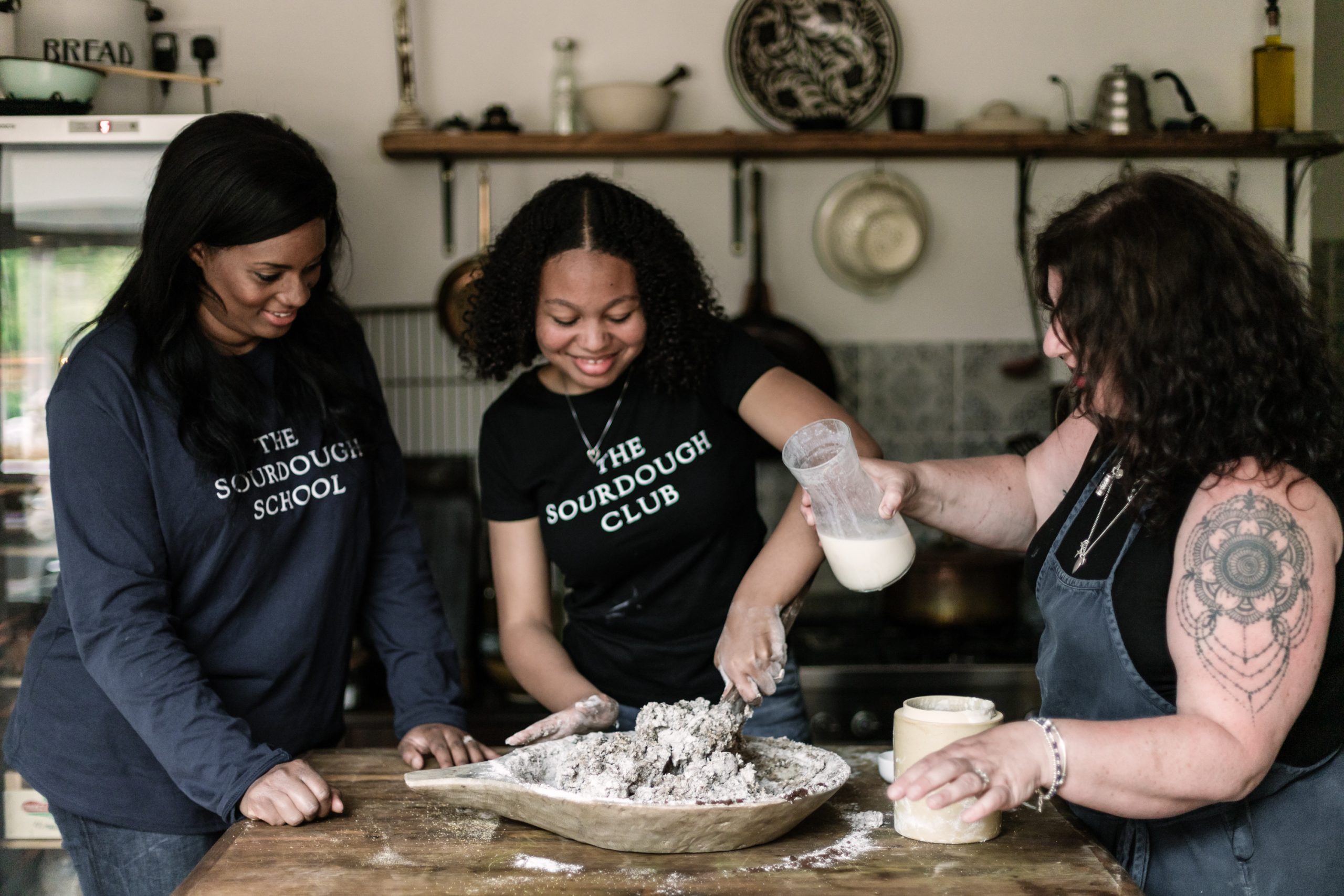 In our practice of personalising bread at The Sourdough School to support health and well-being, however it's crucial to clarify our position regarding the diagnosis of medical conditions. Our approach is fundamentally rooted in working collaboratively with healthcare professionals and their patients to personalise bread in a way that supports their diagnosed health conditions. We adhere to a strict protocol that prioritises the safety and well-being of individuals seeking to integrate personalised bread into their lifestyle for health benefits.
In our practice of personalising bread at The Sourdough School to support health and well-being, however it's crucial to clarify our position regarding the diagnosis of medical conditions. Our approach is fundamentally rooted in working collaboratively with healthcare professionals and their patients to personalise bread in a way that supports their diagnosed health conditions. We adhere to a strict protocol that prioritises the safety and well-being of individuals seeking to integrate personalised bread into their lifestyle for health benefits.Here's why we do not diagnose:
What do I need to do to graduate?
Rising to the Challenge - you will need to create a BALM recipe
Our graduation process is a radical departure from traditional learning and assessment methods, placing a strong emphasis on practical application, sharing, community, and continuous learning.
It has been designed to be a learning experience for individual students but also creates a ripple effect of knowledge and healthy practices within the wider community. We ask you to create and share a BALM recipe which on graduation is published on your graduation page.
. In most traditional educational settings, the knowledge acquired is tested via exams, after which the exam paper is essentially discarded. The student proves their understanding but doesn't contribute anything tangible or reusable to the learning community. By contrast, creating and sharing a recipe is a unique way of demonstrating one's learning while also contributing to the community.
What is important is that this recipe can be used, enjoyed, and learned from by others, fostering a more communal and contributory spirit of learning.
The recipe it requires real life application of the principles of BALM, and students must demonstrate they can take the principles they've learned and create something practical and useful. This encourages a deeper level of understanding and engagement with the material
What are the Graduation Steps
The ultimate outcome of this process is not only a validation of your learning but also a recipe that embodies the principles of BALM and can be shared with others. This approach allows for a more thorough assessment of your understanding and practical application of the course material, fostering an environment of shared learning and community building.
- Complete the Community Recipe Worksheet: This involves recording all the relevant information and cited studies necessary to create your unique recipe.
- Submit the Recipe: Once the worksheet is completed, you should submit your recipe for review. This involves following strict guidelines to ensure adherence to the principles of BALM. Some key points to remember include:
- Hyperlinking terms using the provided glossary.
- Stating the relevance of your recipe to the six pillars of Lifestyle Medicine.
- Ensuring your recipe produces two servings (Bake 2, Give 1).
- Highlighting who would benefit from your recipe, considering social and digestive aspects.
- Recommending a point in your recipe for movement, such as walking or dancing, and using the opportunity to exercise as a functional movement.
- Suggestions of symbiotic recipes.
- Detailing and explaining your chosen fermentation methods and timings.
- Referencing at least seven studies from the research library.
- Graduation Appointment: After submission, you should schedule an appointment with your instructor to discuss the recipe and proceed with graduation.
- Provide Feedback: Filling out the feedback form helps the program understand the community's experiences and needs better. It contributes to improvements in services, resources, and content.
- Stay as an Alumni: Post-graduation, you have the opportunity to continue accessing course materials and attend live baking sessions for a monthly fee.
If you are already a student, then click here to follow the graduation steps.
Who are the BALM Systems Change Contributors
The Contributors to the Diploma
In addition to the in-house team of Lifestyle Medicine health experts and bakers, we have many contributors who generously give their expertise. We operate as a social enterprise, and this is a key difference in the way that we deliver the program. It is transdisciplinary and interdisciplinary in its nature.
Each part of the syllabus on both the clinical module of the Baking as Lifestyle Medicine (BALM) Diploma and The Baking Certificate is supported by esteemed individuals teaching their area of expertise.
This incredible generosity brings unique insights and expertise from many esteemed guest contributors, who have provided knowledge, lectures, conversations, and research and have supported the change as part of the social activism and systems change program. Our Community Spans across many disciplines. All our contributors believe in sharing knowledge of supporting physical and mental health and the environment, which is key to a sustainable and equitable future. You can see the full contributor list here.
How do you balance a relaxed approach with rigorous learning
While we fosters a relaxed and nurturing learning environment, it's important for students to understand that the depth and breadth of content covered are substantial and clinically rigorous. This diploma isn't just a casual foray into the world of baking; it's a comprehensive academic and clinical program designed to provide medical practitioners with the skills and knowledge to prescribe bread as a form of lifestyle medicine. The diploma includes robust clinical modules that empower you to diagnose, prescribe, and monitor the use of BALM (Baking as Lifestyle Medicine) in the context of patient care. Over the course of the diploma, you will delve deep into scientific research, clinical case studies, and hands-on assessments, providing a multi-faceted understanding of BALM and its impact on various health conditions. The end goal is not just to become proficient bakers but to become proficient healthcare providers using BALM as an effective tool in your medical practice. Below is a summary of the assessments.
Formative and Summative Assessments
- Live Session Verbal Quizzes: Instead of written quizzes, understanding is checked through verbal quizzes during live sessions to assess real-time comprehension and engagement.
- Peer Reviews of Baking Technique: During hands-on lab sessions, students will assess and critique each other's bread-making skills, this fosters a warm and collaborative learning environment.
- 1:1 Progress Meetings with Instructor: Periodic meetings to discuss individual learning pathways, upcoming projects, and any questions or challenges.
Your Final Assessment:
- Graduation A Personalised Loaf Case Study
-
- Assignment: Students will create a case study surrounding their "Graduation Loaf," showcasing their ability to prescribe a bread recipe based on BALM protocol and clinical evidence.
- Recipe Approval in 1:1 Meeting: The proposed recipe will be vetted for clinical and nutritional appropriateness during a one-on-one meeting with the instructor.
- Evidence-Based Recipe: The chosen recipe must reference clinical papers from the Sourdough School database and other relevant studies. This ensures that the recipe is not only delicious but also supported by scientific research.
- Community Baking and Peer Review: Upon approval, students will bake their Graduation Loaf and present their case study. The loaf and the supporting documentation will be reviewed by peers, serving as a form of collaborative evaluation.
- Community Sharing: The approved recipe and case study will be published in the community's knowledge base, affirming the program's values of community and sharing.
- Assessment Criteria:
-
-
- Relevance to BALM principles
- In line particularly the six pillars of lifestyle medicine
- Nutritional appropriateness
- Clinical feasibility based on cited research
- Quality and clarity of presentation and documentation
-
This structure should provide a robust, multi-faceted assessment process that aligns well with the course's academic, clinical, and community-oriented goals. It offers an evidence-based, peer-reviewed approach to learning that is deeply rooted in both practical and theoretical understanding.
How does this course change the way I understand bread?
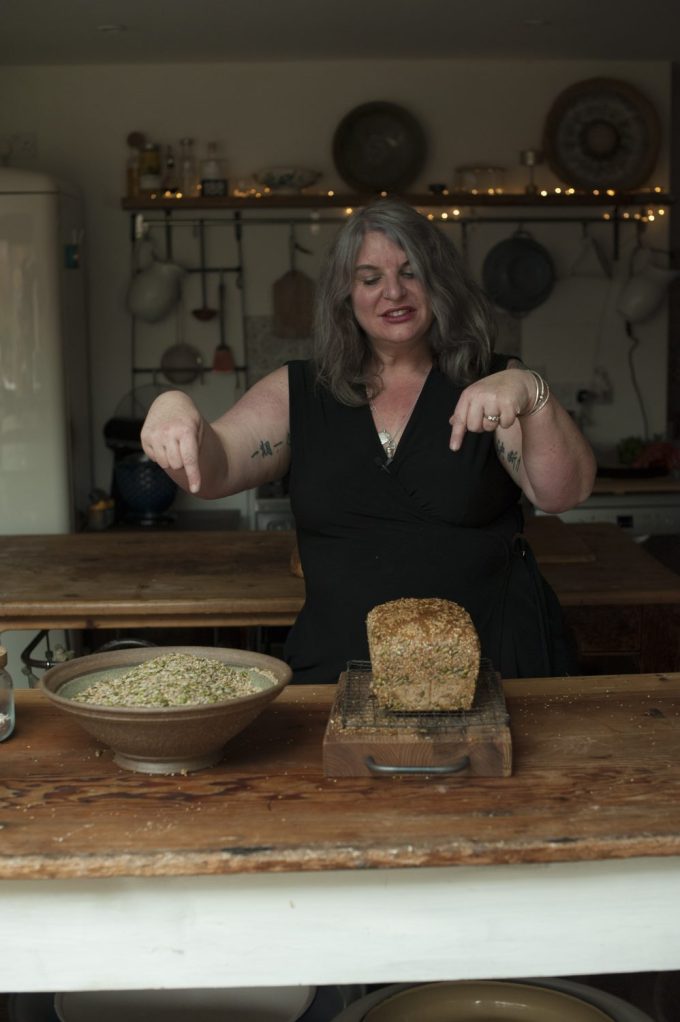 The prevailing discourse within the healthcare sector is that bread is bad for you.
The prevailing discourse within the healthcare sector is that bread is bad for you.
Bread is demonised.
A significant number of healthcare practitioners will tell you that bread is to be avoided. Through no fault of their own, they are caught in a web of misconceptions surrounding bread, flour, monocultures, and fermentation processes. This demonisation of bread is not out of malice but due to a lack of understanding, perceiving it solely through the lens of its most processed, nutritionally void forms. The problem is that modern agriculture and bread-making techniques means that most bread is bad. But, this dominant narrative means that bread has become a victim of oversimplified narratives that fail to capture its nuanced potential for nourishment. The heart of this misunderstanding lies in the understanding that all bread, in its most commercially ubiquitous form, is white, refined, and devoid of nutritional merit. This is only half the picture, and it is a reductionist view that overlooks the rich diversity of bread-making traditions that emphasise whole grains, natural fermentation, and artisanal methods, which can elevate bread to a vehicle for health.
The examination of every aspect of the bread-making process, from soil to slice
This course aspires to challenge and dismantle the entrenched narrative that unfairly maligns bread, advocating instead for a nuanced appreciation of how carefully crafted bread can be among the most nourishing of foods. By exploring the intricacies of bread-making, from the selection of diverse, nutrient-rich grains to the slow, natural fermentation processes that enhance digestibility and nutritional profile, this course illuminates bread's potential as a cornerstone of a healthful diet. It educates on the dangers of monoculture in grain production and champions the return to more sustainable, diverse cropping practices that benefit our health and the environment.
The diploma offered aims not just to educate on the art and science of baking bread but to empower participants with a comprehensive understanding of how bread can be made in a way that supports optimal health, the examination of every aspect of the bread-making process, from soil to slice.
It is as much a journey through the world of bread as it is a mission to correct the misconceptions that have led to us ruining our relationship with one of humanity’s oldest and most nourishing, and affordable foods.
Who Should Enrol on a Diploma? Do I have to be a medical professional?
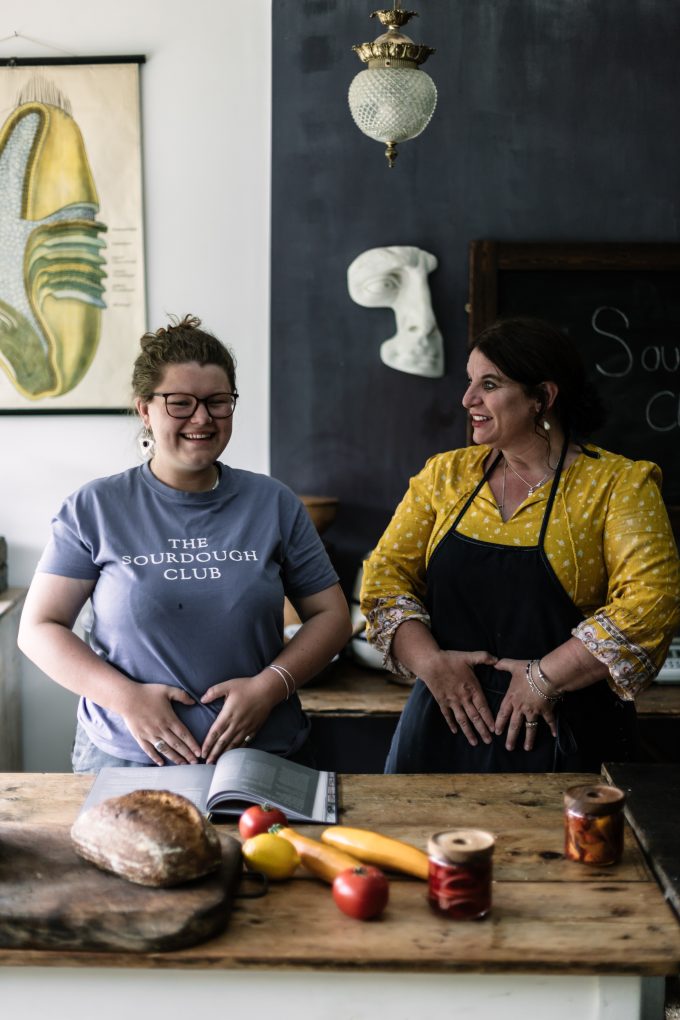 Anyone can enrol.
Anyone can enrol.
The Diploma is about understanding bread and especially the intact on our health and the planet. We teach both medical professionals and bakers. You do not need to be medical to do this course, but you do need to be curious about bread, and how the bread that we eat impacts us.
Who Has Benefited from This Course?
Over the past decade, the diversity among our students has been nothing short of remarkable. From farmers to professional bakers, including artisan bakers and large plant bakery managers, the course has welcomed all. The roster extends to flour millers, GPs, psychiatrists, nurses, oncologists, physiotherapists, and even microbiome specialists ranging from professors to local small artisan bread makers.
I love this eclectic mix of backgrounds highlights a unique aspect of the course: it’s not about your prior knowledge of baking or your professional background. We start from ground zero, often challenging and debunking myths around bread-making.
The Ideal Candidate
So, who is the course for? It’s for those with an open mind. It’s for those who recognise that bread, a staple in 99% of British households, plays a pivotal role in our diet, culture, and well-being. The course goes beyond teaching the art of baking; it’s about understanding bread’s potential in promoting equality and empowerment and delivering optimal nutrition affordably and equitably.
Applying Your Knowledge
The crucial question isn’t about your ability to bake but how you intend to use this knowledge. Whether you aim to nourish, initiate behavioural change, support your community, or advocate for environmental and systemic change in our food systems, this course offers the tools and insights to make a difference.
Consider how integrating this knowledge into your practice could enhance what you offer to your clients, patients, or customers. Nutritionists, for instance, can tailor recipes to specific dietary needs, providing advice that transcends generic guidelines and addresses individual conditions where dietary intervention is crucial.
Why Bread?
Bread connects us all, yet it’s often misunderstood and undervalued. This course seeks to restore bread to its rightful place as a nourishing, affordable staple, challenging the misconceptions that have diminished its value.
Your Next Steps
The best way to ascertain if this course resonates with you is through dialogue. I’m not just here to teach but to engage, discuss, and help you see how personalising bread can empower you and those around you. If understanding and leveraging the true value of bread to foster social and systemic change aligns with your goals, then yes, this diploma is indeed for you.
So, if you’re ready to explore how this knowledge can transform your approach to bread and its place in our lives and society, let’s have a conversation. Your journey to becoming an advocate for better nutrition, community support, and systemic change in our food system starts here.
The Certificate

Scholarships and Bursaries
Why we created the awards.
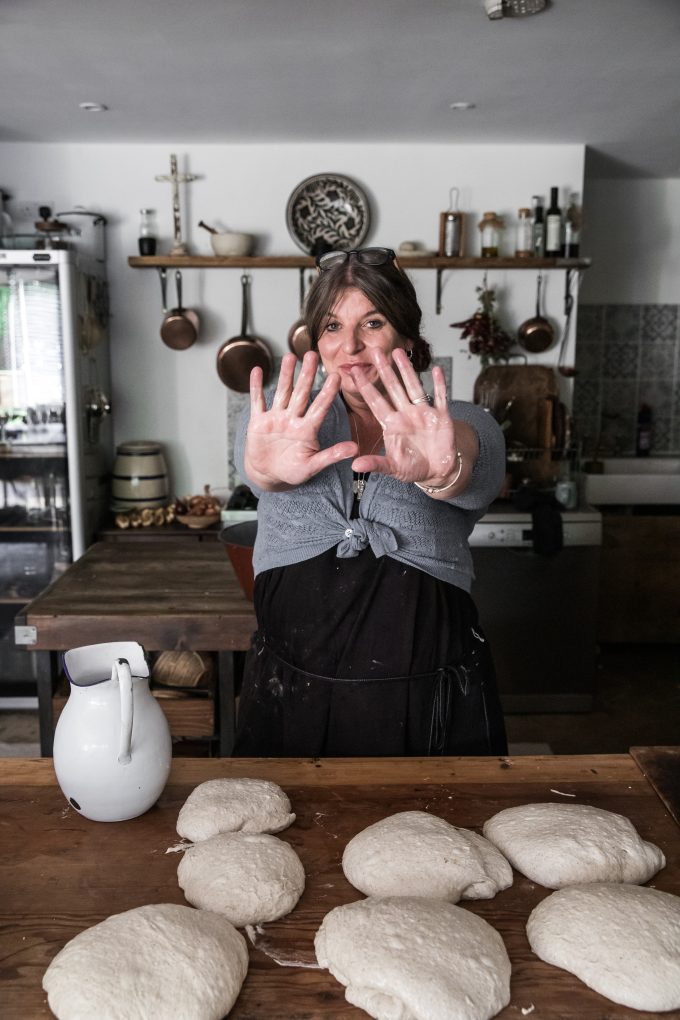
The Awards are designed to help people who want to be part of the change join our systems change programme. The course is a 2-year programme, and we recognise that it's an expensive commitment. We understand that some of the people best placed to make a difference may not be able to afford the fees. We didn't want this to be a barrier to entry, so Vanessa created a self-funding systems change programme. This innovative approach provides farmers with support, bakers with amazing flour, and customers with gut-nourishing, phenomenal bread. Our Botanical Blend Flour is specifically designed to support gut health, promoting overall wellbeing through the bread it produces. The educational programme allows us to share knowledge where people can make the most difference, emphasising the connection between good bread and health. From this, we created the Awards to make our systems change programme affordable for people who want to join but need some financial help to be able to participate, all while promoting healthier communities through better bread.
A lifetime of understanding
I have always known that the food industry creates refined food that is more addictive than cocaine. Ultra Processed food manufacturers make foods, and baked goods specifically with bliss points to be so irresistible that it has hijacked our brain chemistry, often advertised to the poorest people and minorities.
Thirty years ago, in 1992, two events happened in the same week. I ate my very first Green and Blacks chocolate bar. I savoured and celebrated each piece of a farmer cooperative fairly produced chocolate. The same week I was part of a group helping to collect and analyse data in the psychology department for one of the largest food and beverage groups in the world. Our work was on decision-making at the point of sale. The purpose of the study was to provide evidence of how to manipulate human stress responses to elicit a favourable response to maximise profit. We ran focus groups and product tests to determine the most favourable outcomes. Witnessing first-hand the extensive research on how to influence free will was chilling and gave me a unique insight into how the global food giants were consciously subverting public health.
As I learned more, I realised that we are starving and harming the microbes in our guts that produce the metabolites that our brains and bodies need to function. This isn't just food injustice. This is slow-motion genocide, as our food system is also one of the main drivers of climate change.
I believe we can revers this, but only if we have a framework, to use as a game plan and an army of individuals who are prepared to standup for health as a basic human right. If you are one of these people then you have come to the right place.
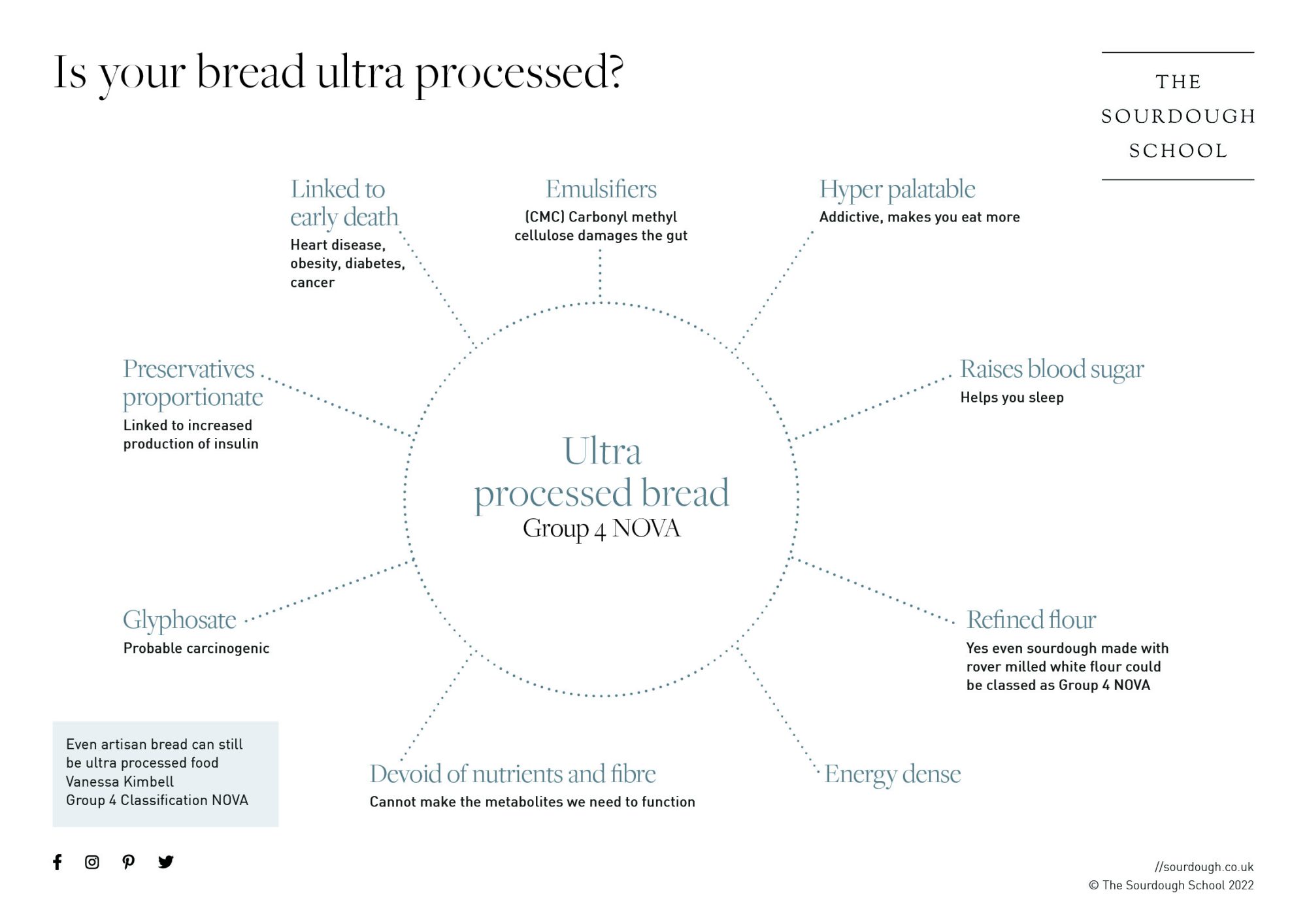
What makes a successful applicant?
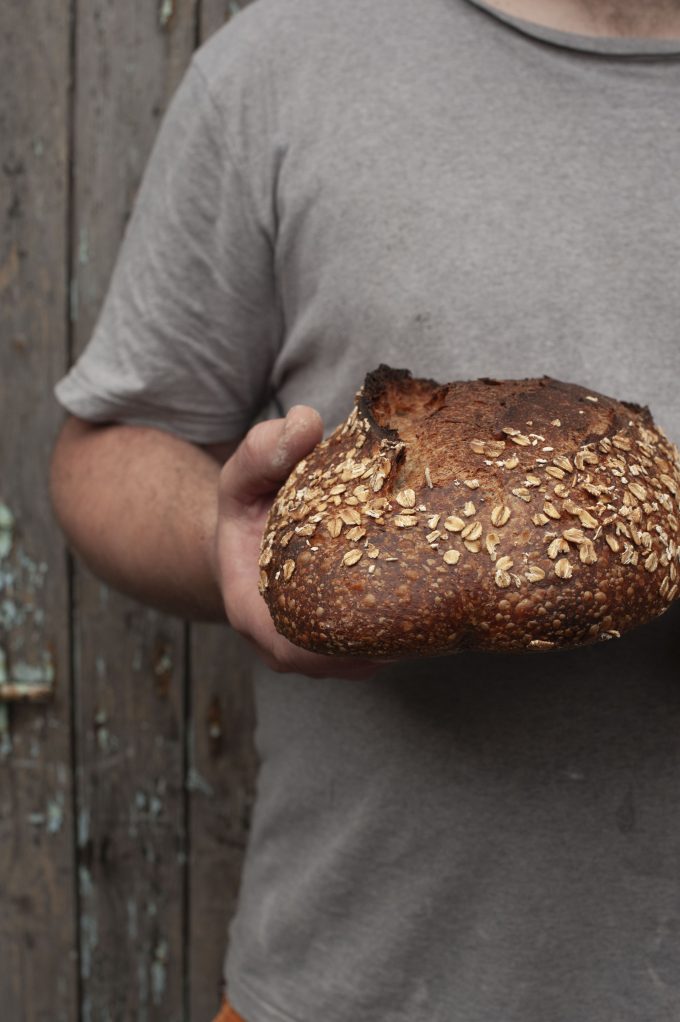
We are interested in you and what you are proposing to do with the knowledge and why this is important to you. We are not looking for what qualifications you have. It is more about understanding why we need change and attitude and intention to do so.
There are many ways to use this knowledge, including individually if you are looking after someone, or as a teacher, a professional baker, or a healthcare professional wanting to get your patient baking great bread.
Here are our tips for successful applications:
- Successful candidates will demonstrate a clear understanding of the needs of the customers or the patients in their community and propose how they will apply the knowledge.
- We suggest that you provide a clear rationale, including who you feel that you will be prescribing for (if you are a healthcare practitioner) or who your customers are if you are a baker and why you are motivated in particular to improve the nourishment of bread. Please include specific aims and well-defined criteria of how you will apply the knowledge.
- We recommend that you take time to write this and then cut copy paste it into the form. Please keep this concise and make it as easy as possible for us to understand, and remember to include which country you are in, if you are not UK based.
Learn how to challenge the threats from food inequality
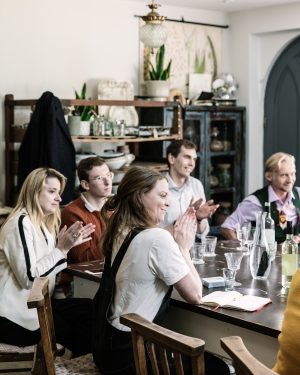
We acknowledge that overhauling our current food system towards a more equitable and sustainable model is a multifaceted challenge. However, it is a challenge that requires immediate attention. Research has shown that our gut microbiomes respond to changes in our diets over a very short period. With our climate changing at an alarming rate, these issues are intrinsically connected.
By engaging in our courses, you are contributing to this necessary change. You are gaining the knowledge and skills to bake sourdough bread, yes, but you are also learning to understand the broader implications of your choices. You're becoming an advocate for healthier eating, a more sustainable food system, and a healthier planet.
In a sense, our students are the change-makers. By learning with us, you're moving towards a healthier lifestyle and a more sustainable world. Together, we can make a significant impact. We invite you to join us on this inspiring journey.
Acceptance
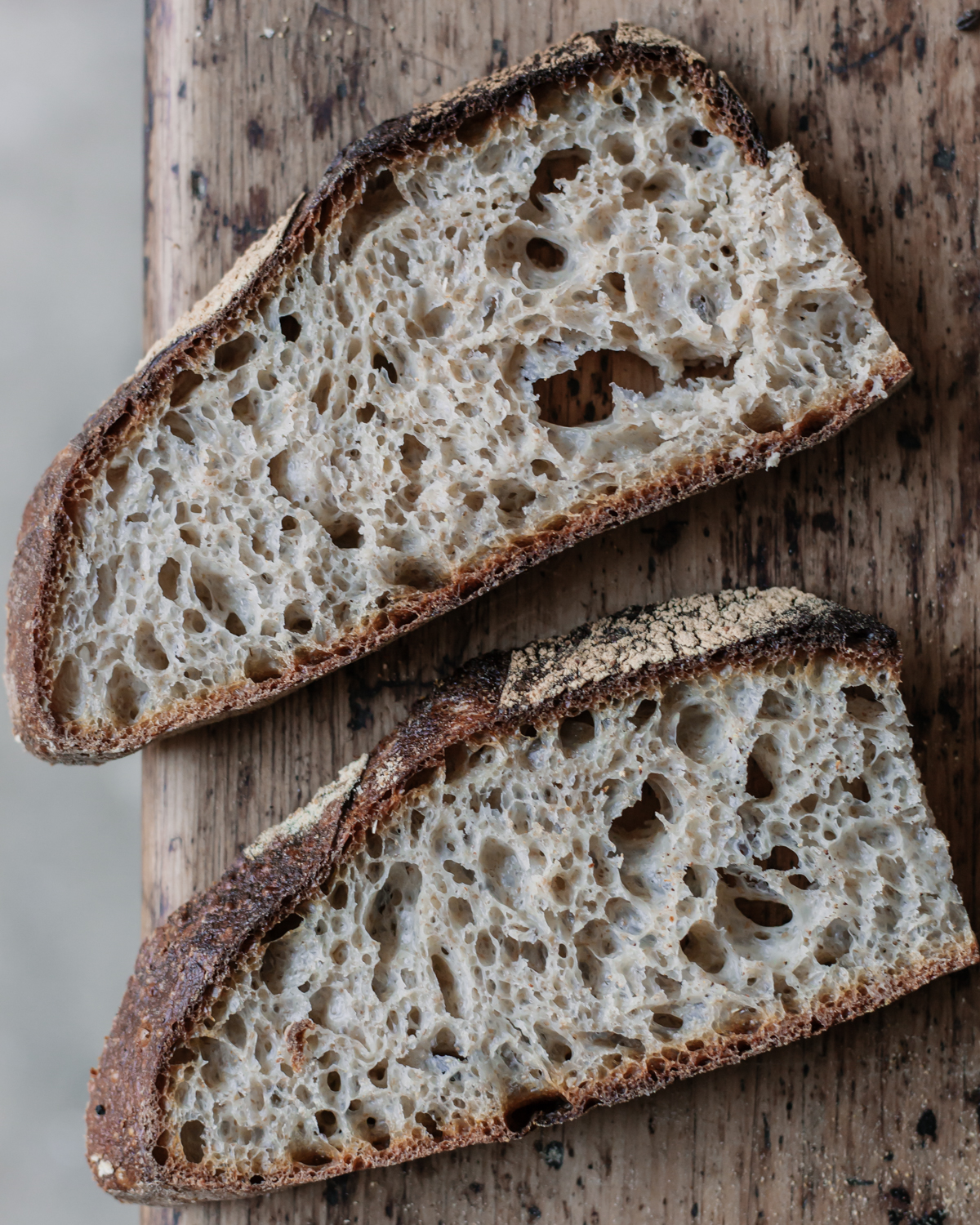
Should you be accepted on the course you be invited to enrol via the standard course booking process in mid September.
Unsuccessful applications are reviewed and deleted after 3 months.
We have limited spaces on our programmes, we therefore ask that in applying below you agree:
-
- Agreed not to accept an award if you cannot fully commit to the programme. We have a limited number of places, so before applying please check out the number of hours required for the course you are applying for.
- You understand that the scholarship programme is for online courses only, and discounts cannot be transferred to in-person courses.
- Understand that scholarships and bursaries are subject to the Sourdough School Terms and Conditions of business.
Empowerment through Awards
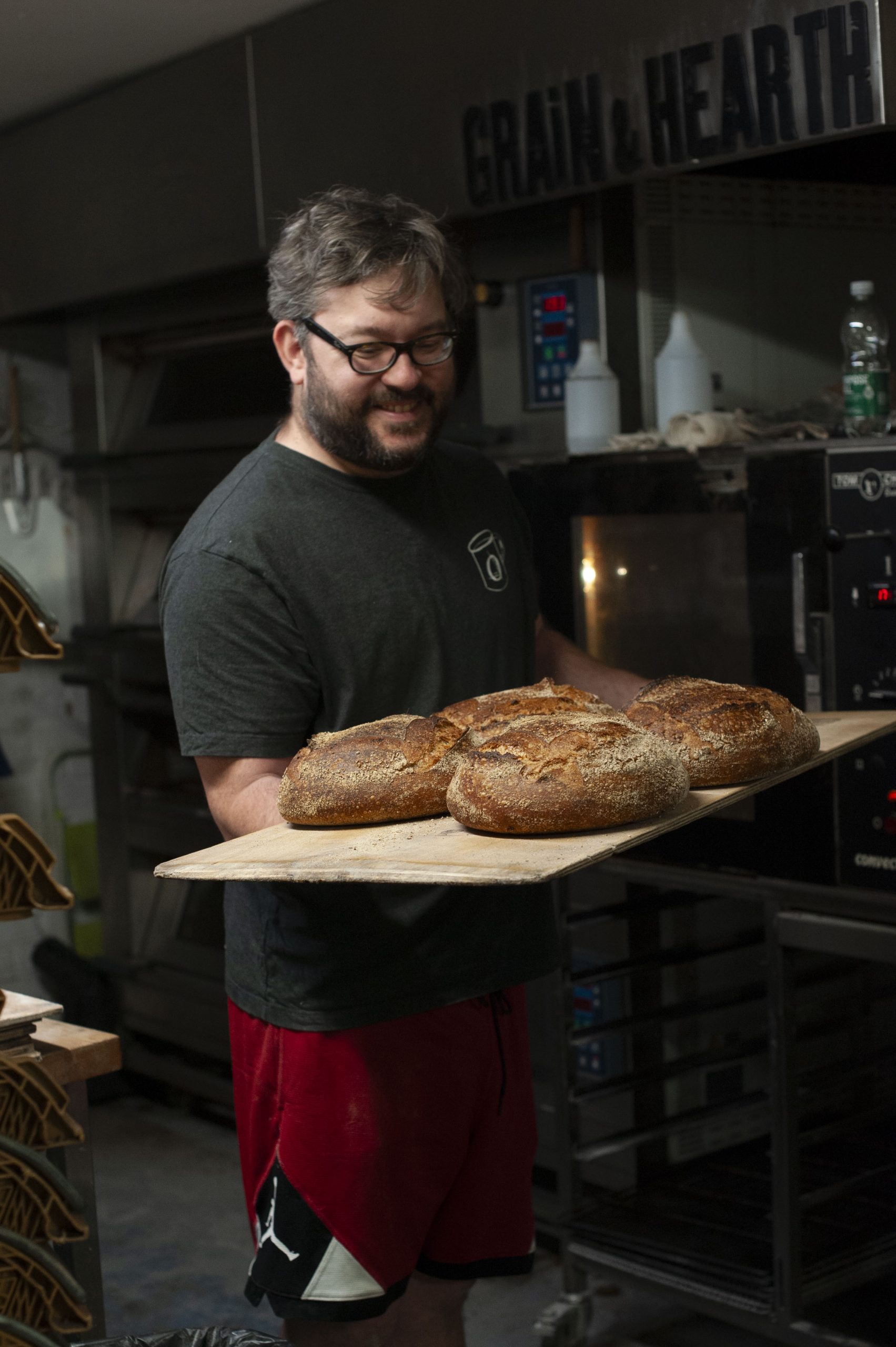
The Sourdough School Diploma is more than a program - what we teach is about empowerment . We are a community and we provide tools and knowledge that enable individuals to take charge of their health and the health of their communities through the simple yet transformative act of baking.
Here's how:
- Self-Efficacy: By teaching participants the art of baking as a form of lifestyle medicine, BALM enhances peoples confidence in their ability to manage their own health and well-being. This can be a powerful motivator and a catalyst for sustained lifestyle changes.
- Knowledge Sharing: The program encourages participants to share their newfound knowledge with their communities, spreading the benefits of great bread far beyond the individual participant. This fosters a sense of purpose and contribution, which can be deeply empowering.
- Community Building: Baking and sharing bread can help create and strengthen social bonds, fostering supportive communities that can collectively work towards better health outcomes.
- System Disruption: BALM empowers participants to challenge and disrupt unhealthy food systems by choosing to bake nutritious bread and sharing these healthier alternatives with others.
Our awards reflect this empowerment ethos. They aren't simply financial aids; they're recognition of the potential within each recipient to create meaningful change. They provide resources to those who may otherwise be unable to access this transformative education due to financial constraints. By removing this barrier, the awards empower recipients to take control of their health, become knowledgeable advocates for healthier lifestyles, and contribute positively to their communities.
In short, our awards which are supported by amazing bakers like Adam Pagor at Grain and Hearth Bakery, are about empowering individuals to become agents of change in their own lives and in their communities, using the power of baking as a catalyst for healthier lifestyles and systems
Who Was Dr Annie Elliot?
The awards are offered to honour of a remarkable person who was a part of our community – Dr. Annie Elliot. As the first General Practitioner to complete the Diploma, Dr Elliot embodied everything one could hope for in a student. She was brilliant, humorous, tenacious, determined, and generous with her knowledge. She was unafraid to try new things and was driven by an insatiable curiosity.
Dr. Elliot was a beacon of community spirit, always baking bread for everyone - friends, patients, neighbours - and sharing it with love. She pushed the boundaries of what we thought was possible in our programme and always encouraged us to strive for more.
She was the type of person who not only made a lasting impact on me as an educator but also on her fellow students. Her vibrant personality, her enthusiasm for learning, and her kindness are deeply missed. We remember her laughter, her insightful questions, and the way she could light up a room with her passion for baking and learning.
In late spring 2023, we were deeply saddened by the news of Dr. Elliot's passing. Her absence is profoundly felt in our community, but her legacy continues to inspire us.
In recognition of her invaluable contribution to the BALM programme, we created the Annie Elliot Award, with the permission of her family. This award will be given to to students who embody the same tenacity, determination, and generous spirit that Dr. Elliot demonstrated throughout her time with us to share bread.
Dr. Annie Elliot was more than a student; she was a friend and an inspiration. I wanted to remember her, as a way to celebrate her life and the positive influence she had on all of us at The Sourdough School. Her free thinking, generosity tenaciousness and love of learning, and baking sourdough was amazing.
Thank you, Dr. Elliot, for everything you brought to our baking community. You are greatly missed, but your legacy lives on.
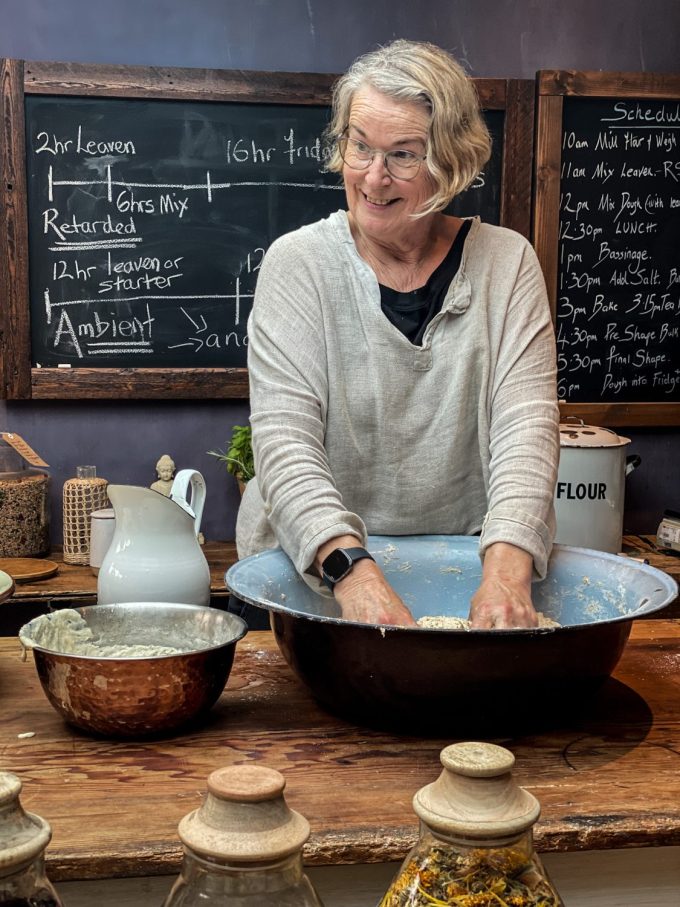
How the Educational awards are Funded
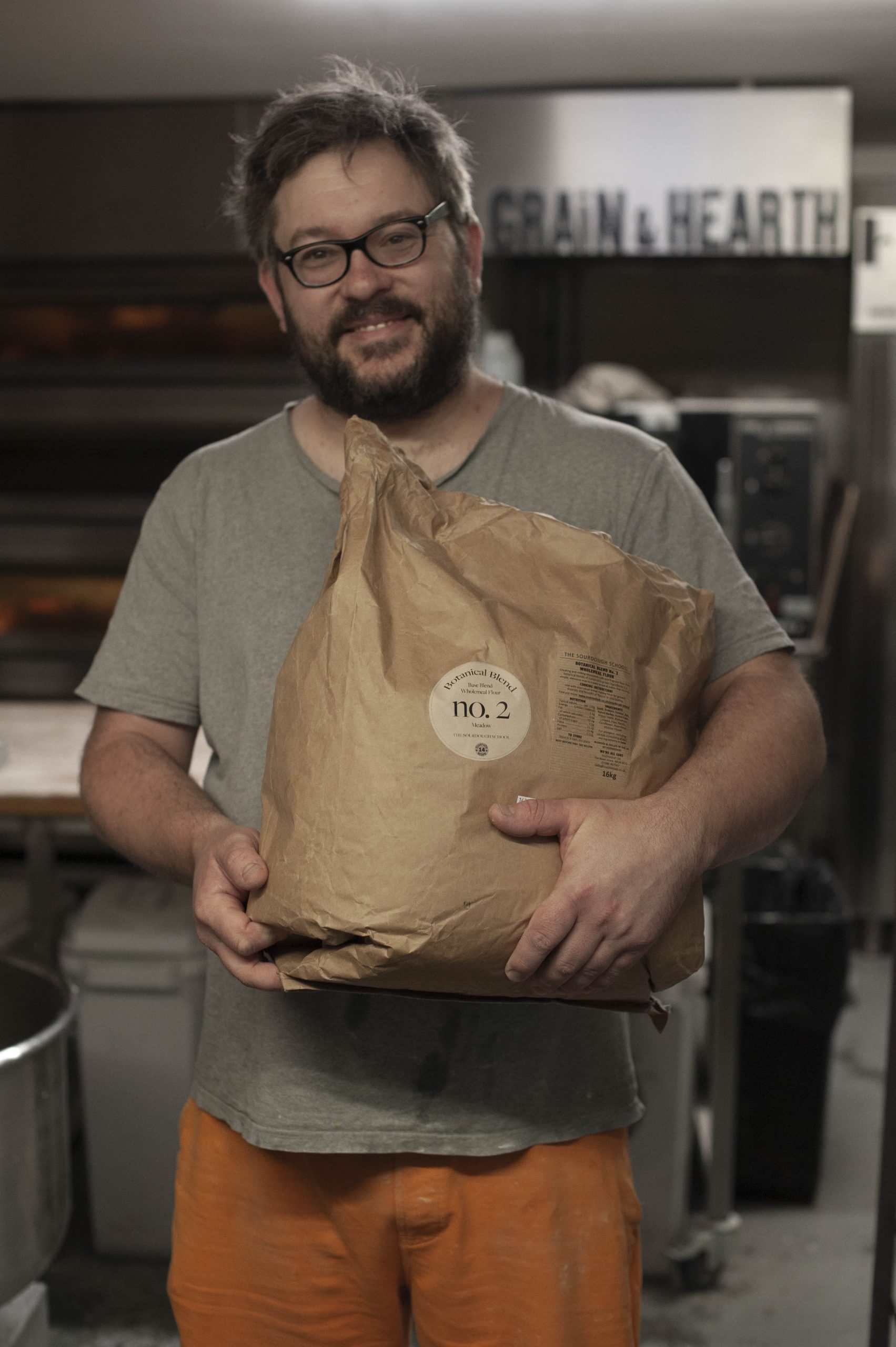
The Annie Elliot Award is a unique initiative made possible through the dedicated support and financial assistance from the sales of our Botanical Blend flour. The use of the Diversity Bread Trademark Licence and the profits means that we can change the whole system. The awards are specifically designed to increase understanding and knowledge in the bread industry and the health industry to raise awareness of how good bread is nourishing and can support both physical and mental health.
Funding Source: Botanical Blend Flour
We are delighted to share that 100% of our profit from the Botanical Blend Flour (supported by the the Diversity Bread consultation fees and Trademark) is what funds the Sourdough School Educational Programme. Milled and distributed through Hodmedods Ltd, the flour supports 4 years of regenerative farming, and supports both physical and mental health through providing fibre and diversity to the gut.
The Sourdough School’s Botanical Blend flour is not only a cornerstone of our Baking as Lifestyle Medicine but also the financial backbone of our awards programme. This blend, curated, milled and distributed by Hodmedod’s, incorporates a variety of botanicals and grains designed to enhance both the flavour and nutritional profile of our bread, and support the farmers and soil health
Hodmedod's Partnership
Hodmedod’s, a company renowned for its commitment to sustainable farming and milling practices, partners with The Sourdough School to mill and distribute this special flour. Their support ensures that our Botanical Blend flour reaches a wide audience, allowing bakers everywhere to benefit from its unique properties.
100% Profits Dedicated to Awards
What sets our programme apart is our commitment to reinvest 100% of the profits from the sales of Botanical Blend flour back into The Sourdough School. Every purchase directly supports the BALM Diploma Awards, ensuring that more healthcare professionals and community bakers can access this transformative education regardless of their financial situation.
Why we created the awards.

The Awards are designed to help people who want to be part of the change join our systems change programme. The course is a 2-year programme, and we recognise that it's an expensive commitment. We understand that some of the people best placed to make a difference may not be able to afford the fees. We didn't want this to be a barrier to entry, so Vanessa created a self-funding systems change programme. This innovative approach provides farmers with support, bakers with amazing flour, and customers with gut-nourishing, phenomenal bread. Our Botanical Blend Flour is specifically designed to support gut health, promoting overall wellbeing through the bread it produces. The educational programme allows us to share knowledge where people can make the most difference, emphasising the connection between good bread and health. From this, we created the Awards to make our systems change programme affordable for people who want to join but need some financial help to be able to participate, all while promoting healthier communities through better bread.
A lifetime of understanding
I have always known that the food industry creates refined food that is more addictive than cocaine. Ultra Processed food manufacturers make foods, and baked goods specifically with bliss points to be so irresistible that it has hijacked our brain chemistry, often advertised to the poorest people and minorities.
Thirty years ago, in 1992, two events happened in the same week. I ate my very first Green and Blacks chocolate bar. I savoured and celebrated each piece of a farmer cooperative fairly produced chocolate. The same week I was part of a group helping to collect and analyse data in the psychology department for one of the largest food and beverage groups in the world. Our work was on decision-making at the point of sale. The purpose of the study was to provide evidence of how to manipulate human stress responses to elicit a favourable response to maximise profit. We ran focus groups and product tests to determine the most favourable outcomes. Witnessing first-hand the extensive research on how to influence free will was chilling and gave me a unique insight into how the global food giants were consciously subverting public health.
As I learned more, I realised that we are starving and harming the microbes in our guts that produce the metabolites that our brains and bodies need to function. This isn't just food injustice. This is slow-motion genocide, as our food system is also one of the main drivers of climate change.
I believe we can revers this, but only if we have a framework, to use as a game plan and an army of individuals who are prepared to standup for health as a basic human right. If you are one of these people then you have come to the right place.

What makes a successful applicant?

We are interested in you and what you are proposing to do with the knowledge and why this is important to you. We are not looking for what qualifications you have. It is more about understanding why we need change and attitude and intention to do so.
There are many ways to use this knowledge, including individually if you are looking after someone, or as a teacher, a professional baker, or a healthcare professional wanting to get your patient baking great bread.
Here are our tips for successful applications:
- Successful candidates will demonstrate a clear understanding of the needs of the customers or the patients in their community and propose how they will apply the knowledge.
- We suggest that you provide a clear rationale, including who you feel that you will be prescribing for (if you are a healthcare practitioner) or who your customers are if you are a baker and why you are motivated in particular to improve the nourishment of bread. Please include specific aims and well-defined criteria of how you will apply the knowledge.
- We recommend that you take time to write this and then cut copy paste it into the form. Please keep this concise and make it as easy as possible for us to understand, and remember to include which country you are in, if you are not UK based.
Acceptance

Should you be accepted on the course you be invited to enrol via the standard course booking process in mid September.
Unsuccessful applications are reviewed and deleted after 3 months.
We have limited spaces on our programmes, we therefore ask that in applying below you agree:
-
- Agreed not to accept an award if you cannot fully commit to the programme. We have a limited number of places, so before applying please check out the number of hours required for the course you are applying for.
- You understand that the scholarship programme is for online courses only, and discounts cannot be transferred to in-person courses.
- Understand that scholarships and bursaries are subject to the Sourdough School Terms and Conditions of business.
How does BALM Protocol work?
We take immense pride in our awards, totalling four times our turnover last year, a testament to our dedication to the community.
The BALM (Baking as Lifestyle Medicine) programme offered by The Sourdough School operates as a social enterprise, embodying a living syllabus that is continuously evolving and growing. Shaped by ongoing research, feedback, and lectures and tutorials are delivered by many people. With contributions from a diverse community of experts, the programme offers a unique, multidisciplinary, and evidence-based approach to lifestyle medicine through baking. Our commitment to broadening access to education and promoting inclusivity is demonstrated through our awards programme, providing scholarships and bursaries.
Graduates of our BALM diploma course are empowered with a prescription license.
A prescription licence enables graduates to prescribe BALM vouchers for social prescribing to their patients via The Sourdough Club. This means the benefits of our programme extend beyond the immediate participants, reaching patients and the wider community. - We have given over £75,000 of social prescription memberships from The Sourdough Club.
Through our unique and ever-evolving BALM programme, The Sourdough School is leading the way in demonstrating the transformative potential of baking as a tool for lifestyle medicine. Our commitment to providing accessible, evidence-based education and supporting our students to bring about systems change in their own practice contributes to improved health outcomes and well-being in the community.
Our course delivery is flexible, accommodating various learning preferences and geographic constraints. We offer both in-person and online courses, enabling accessibility and convenience for all participants. The curriculum combines lectures, tutorials, practical baking sessions, and regular live support sessions through The Sourdough Club, ensuring a comprehensive learning experience.
Engaging
What sets the BALM programme apart is its engaging, conversational style, encouraging participants to partake in inspiring conversations that motivate lifestyle changes. This approach ensures that our courses are not just about imparting knowledge but also inspiring action and personal growth.
A critical aspect of our programme is the extensive database of over 700 categorized academic studies available to students as part of their course. This resource allows students to delve deeper into the evidence base supporting the BALM protocol, enhancing their understanding and fostering a greater appreciation for the science of baking and its impact on health.
Contributions to the course from various leading experts in their respective fields add richness to our programme. They bring their wealth of knowledge, real-world experiences, and unique perspectives, creating a dynamic and engaging learning environment. Through this collaborative approach, our programme continually evolves in response to new insights, research findings, and the diverse needs of our students.
Which Applicants do we award Scholarships and Bursaries to?

If you are applying for an award, then it is useful to understand that the programme seeks applicants who can use the BALM principles to create a significant impact. Whether you come from the healthcare sector, industrial baking, or a baker in the local community. The focus is on empowering individuals to make a tangible difference in public health outcomes through the transformative power of baking as lifestyle medicine.
The most suitable AWARD applicants would be those who can demonstrate the following:
- You have the capacity to Influence Health Outcomes: The ideal award recipient would have a platform or position that enables them to directly influence health outcomes on a significant scale. This might include professionals such as healthcare practitioners, dieticians, GPs, oncologists, and other medical professionals or social prescribers who have the ability to implement and prescribe the BALM framework within their practice.
- Bakers and Bakery Operators: Bakers who own, manage, or work in a bakery - from a small community bakery to a large industrial bakery - all professional bakers are excellent candidates. They have the potential to apply the BALM principles in their practice, transforming the production and delivery of bread on a public health scale.
- Potential for Systems Change: Those who can articulate a clear plan for how they will utilize the BALM framework and prescription license to affect systems change within their sphere of influence. GP surgeries, Applicants should detail how the AWARD will help them introduce BALM principles into their work, alter existing practices, and promote healthier outcomes in their communities.
- Commitment to the Community: Applicants who show a clear commitment to enhancing their community's health and well-being. They should demonstrate a willingness to go beyond their immediate responsibilities and use the BALM framework to improve their communities' health outcomes.
- Alignment with BALM Values: The ideal candidates are those who align with the core values of the BALM programme. This includes a commitment to evidence-based practice, an emphasis on regenerative agriculture, a dedication to promoting gut health and environmental diversity, and a belief in baking as a tool for systems change.
Home bakers who wish to learn baking as a lifestyle medicine are encouraged to apply for a social discount to The Sourdough Club membership. While they may not have the same scale of influence as those in the healthcare sector or industrial baking, their passion for baking and commitment to improving their own and their family's health aligns with the values of BALM.
Who Was Dr Annie Elliot?
The awards are offered to honour of a remarkable person who was a part of our community – Dr. Annie Elliot. As the first General Practitioner to complete the Diploma, Dr Elliot embodied everything one could hope for in a student. She was brilliant, humorous, tenacious, determined, and generous with her knowledge. She was unafraid to try new things and was driven by an insatiable curiosity.
Dr. Elliot was a beacon of community spirit, always baking bread for everyone - friends, patients, neighbours - and sharing it with love. She pushed the boundaries of what we thought was possible in our programme and always encouraged us to strive for more.
She was the type of person who not only made a lasting impact on me as an educator but also on her fellow students. Her vibrant personality, her enthusiasm for learning, and her kindness are deeply missed. We remember her laughter, her insightful questions, and the way she could light up a room with her passion for baking and learning.
In late spring 2023, we were deeply saddened by the news of Dr. Elliot's passing. Her absence is profoundly felt in our community, but her legacy continues to inspire us.
In recognition of her invaluable contribution to the BALM programme, we created the Annie Elliot Award, with the permission of her family. This award will be given to to students who embody the same tenacity, determination, and generous spirit that Dr. Elliot demonstrated throughout her time with us to share bread.
Dr. Annie Elliot was more than a student; she was a friend and an inspiration. I wanted to remember her, as a way to celebrate her life and the positive influence she had on all of us at The Sourdough School. Her free thinking, generosity tenaciousness and love of learning, and baking sourdough was amazing.
Thank you, Dr. Elliot, for everything you brought to our baking community. You are greatly missed, but your legacy lives on.

How the Educational awards are Funded

The Annie Elliot Award is a unique initiative made possible through the dedicated support and financial assistance from the sales of our Botanical Blend flour. The use of the Diversity Bread Trademark Licence and the profits means that we can change the whole system. The awards are specifically designed to increase understanding and knowledge in the bread industry and the health industry to raise awareness of how good bread is nourishing and can support both physical and mental health.
Funding Source: Botanical Blend Flour
We are delighted to share that 100% of our profit from the Botanical Blend Flour (supported by the the Diversity Bread consultation fees and Trademark) is what funds the Sourdough School Educational Programme. Milled and distributed through Hodmedods Ltd, the flour supports 4 years of regenerative farming, and supports both physical and mental health through providing fibre and diversity to the gut.
The Sourdough School’s Botanical Blend flour is not only a cornerstone of our Baking as Lifestyle Medicine but also the financial backbone of our awards programme. This blend, curated, milled and distributed by Hodmedod’s, incorporates a variety of botanicals and grains designed to enhance both the flavour and nutritional profile of our bread, and support the farmers and soil health
Hodmedod's Partnership
Hodmedod’s, a company renowned for its commitment to sustainable farming and milling practices, partners with The Sourdough School to mill and distribute this special flour. Their support ensures that our Botanical Blend flour reaches a wide audience, allowing bakers everywhere to benefit from its unique properties.
100% Profits Dedicated to Awards
What sets our programme apart is our commitment to reinvest 100% of the profits from the sales of Botanical Blend flour back into The Sourdough School. Every purchase directly supports the BALM Diploma Awards, ensuring that more healthcare professionals and community bakers can access this transformative education regardless of their financial situation.
Workshops
What makes the ‘Personalised Bread Nutrition & Wellness’ program unique compared to other nutritional programs?
How does understanding one’s genetic makeup influence the type of bread and diet recommended in the program?
Can you explain more about the DNA testing with Lifecode Gx® and how it integrates into the program?
Who is this program ideally suited for? Are there specific health conditions or dietary preferences that benefit most from this approach?
What are the key health benefits of participating in this program, particularly regarding gut health and overall wellness?
Could you give an example of how a personalized bread recipe might differ based on an individual’s genetic report?
How does the program accommodate people with specific dietary restrictions or allergies, such as gluten intolerance?
What can participants expect from the 3-day Bread Nutrition Workshop, and how is it structured to cater to individual needs?
Can you detail the follow-up support offered after the workshop? How do the additional feedback sessions and alumni membership enhance the experience?
How do the pricing and packages work, and what is included in the cost? Are there any additional fees participants should be aware of?
For someone new to baking or nutrition, how approachable is this program? Does it require any prior knowledge or skills?
What kind of ongoing support and resources are available to participants after they complete the program?
How does the program align with current scientific research and findings in nutrition and gut health?
Can you share a success story or a testimonial from someone who has completed the program?
What steps do you recommend for someone interested in starting this program? What should be their first course of action?
How does the program take into account individual lifestyle factors, such as physical activity levels or stress, in its dietary recommendations?
What are the qualifications and experience of the professionals leading the program, and how do they contribute to its effectiveness?
How is the program adapted for different age groups or health conditions, such as diabetes or heart disease?
Can you explain the BALM protocol in more detail and how it integrates into the program’s approach to bread nutrition and wellness?
What measures are in place to ensure the safety and efficacy of the dietary plans and recipes provided?
How does the program balance the enjoyment of bread with nutritional needs? Are there options for those with a preference for certain types of bread, like sourdough or whole grain?
In terms of environmental sustainability, how does the program address this aspect in its approach to bread-making and ingredient sourcing?
Could you elaborate on how the program’s approach aligns with the principles of social justice and equality in health and nutrition?
How does the program incorporate ongoing research and developments in the fields of nutrition, gut health, and genomics?
For individuals who live in different geographical locations, is there remote access or online support available as part of the program?
What has been the most significant feedback from participants who have completed the program, and how has this shaped its evolution?
The development of this programme has been profoundly influenced by over two decades of teaching experience. Every student who has attended over these years has shaped the unique workshop programmes we offer today. Their feedback has been invaluable in informing and refining our teaching methods and delivery.
On our website, you will find numerous videos where past participants discuss their experiences with the programme. They speak candidly about the impact of the BALM Protocol, their time here, and their reflections. I encourage you to visit the website and listen to their stories. Hearing directly from those who have experienced the programme offers a more authentic perspective than any description I could provide. Hearing about the programme's impact from the participants is always more compelling than us telling you ourselves.
How does the program address the psychological aspects of eating and diet, such as habits or emotional eating?
Personalised eating, as embodied in the BALM protocol, is pivotal in addressing the physiological aspects of your dietary habits. The essence of this protocol's success lies in its practical application. It's not solely about crafting a recipe; it's about formulating a baking method that caters to your digestive needs and integrates seamlessly into your daily life. This approach encourages the development of a rhythm and routine, providing support throughout the process.
The key to this method is in its simplicity and habitual nature. The aim is to create recipes that become second nature to you, akin to effortless daily activities like brushing your teeth or walking the dog. These small, ritualistic acts, such as refreshing your sourdough starter, are infused with mindfulness techniques, like focused breathing. This practice is designed to offer a moment of respite, even amidst a hectic day, allowing you to reset your parasympathetic nervous system while performing a simple yet rewarding task. This ensures your starter is vibrant and ready for the next day's baking.
Incorporating these practices into your life is what makes the BALM protocol more than just a dietary change; it's a form of lifestyle medicine. The rituals and routines you establish are not just about baking or eating; they are about nurturing your well-being at every level.
Are there any additional educational materials or resources provided during or after the program, such as books, online content, or community forums?
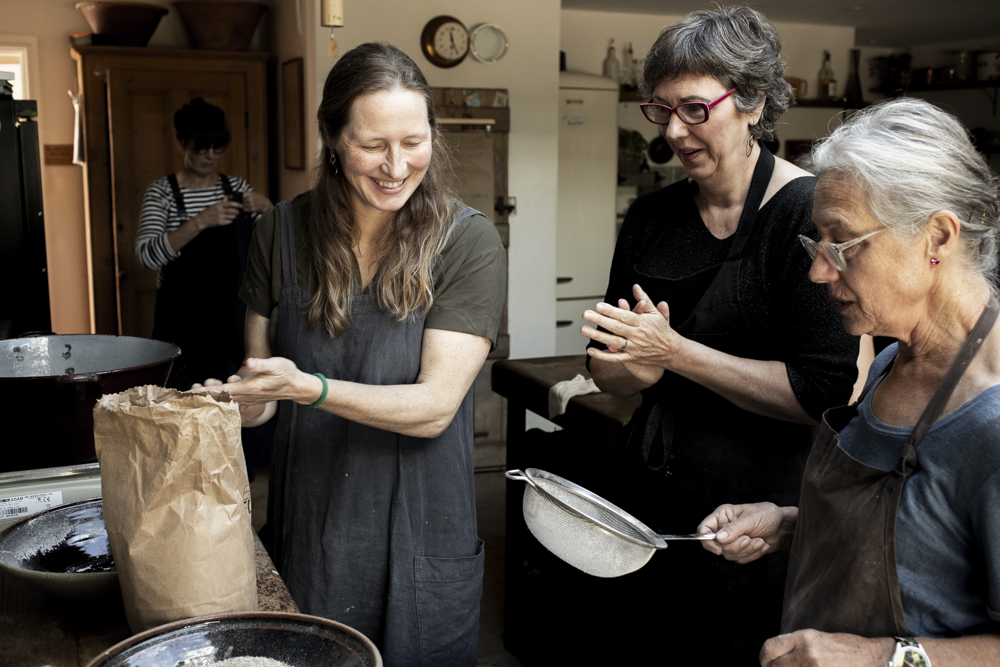
There are several ways to learn the art of making my bread, and for those on this programme, I highly recommend starting with the "10-minute Sourdough" book. It provides an excellent foundation and a great starting point for your bread-making journey.
In addition to this, we offer a variety of other resources. For instance, the "Sweet Sourdough School" book is an extensive work focusing on the gut and mental health, which complements the programme exceptionally well.
Once you've mastered baking, you can progress to the "Sourdough School" book. This book delves into more artisan-style breads, offering advanced techniques and recipes.
You will have the option to join our alumni students and gain access to the website libraries and access a treasure trove of information, hosting a vast repository of knowledge on various aspects of baking, health, and wellness. And of course, there's also our Instagram page, where we regularly share insights, tips, and updates. Rest assured, you will always have access to a wealth of information and guidance throughout your baking journey.
Can participants expect changes in their overall health and well-being in the short term, or is the program focused on long-term benefits?
So often people write to me in the months following a course with updates on both the short-term and long-term benefits to their overall health and well-being. The best thing to do is to log how you feel before ether course, and this is why we encourage you to fill in the self assessment form. In the short term, you may notice immediate improvements, particularly in digestive health. As you begin to consume bread tailored to your specific needs, it's common to experience better digestion and a more balanced gut microbiome. This can lead to a general feeling of increased energy and well-being.
In the long term, the workshop aims to instil a deeper understanding and appreciation for nutritionally rich bread, which contributes to sustained health benefits. Regular consumption of well-crafted bread, combined with a balanced diet, supports ongoing gut health, improved blood sugar balance, and overall diet management.
Additionally, the knowledge and skills acquired in the workshop about bread-making and its connection to health can lead to a lifelong appreciation for quality, wholesome food. This not only benefits your physical health but also enhances your mental and emotional well-being, as you become more connected with your food and its sources.
So, while immediate benefits are noticeable, the true value of the workshop is realised in its long-term impact on your lifestyle and approach to nutrition.
I thought bread is unhealthy? If I am hesitant or unsure about joining the Diploma, what would you say to encourage them to take that first step?
It's very common for health professionals—doctors, nutritionists, dieticians, or psychiatrists—to advise caution with bread consumption, mainly due to concerns about gluten. However, gluten and bread are often misunderstood in our diets. Modern bread, which has evolved, might not be suitable for everyone, and avoiding certain types can be beneficial.
In our personalised workshop, we look closely at why you, as an individual, find it difficult to digest bread and work on tailoring recipes to your specific needs, often uncovering and addressing underlying health concerns. This approach has improved gut microbiome health, blood sugar regulation, and overall dietary management.
But our approach extends beyond bread-making. It fosters a deeper connection with local artisans, like cheese makers and farmers, enhancing your understanding of the environment and your role as both an activist and a baker.
Joining isn't just a personal choice; it encompasses the well-being of your loved ones. It’s a holistic, evidence-based journey toward not just better baking but a healthier lifestyle.
If you're contemplating joining, I encourage you to take a look at our books, Instagram, and website. The real understanding, however, comes from direct conversation. Feel free to call for a chat. Trust your instincts – if it feels right, then get in touch with Vanessa and have a chat.
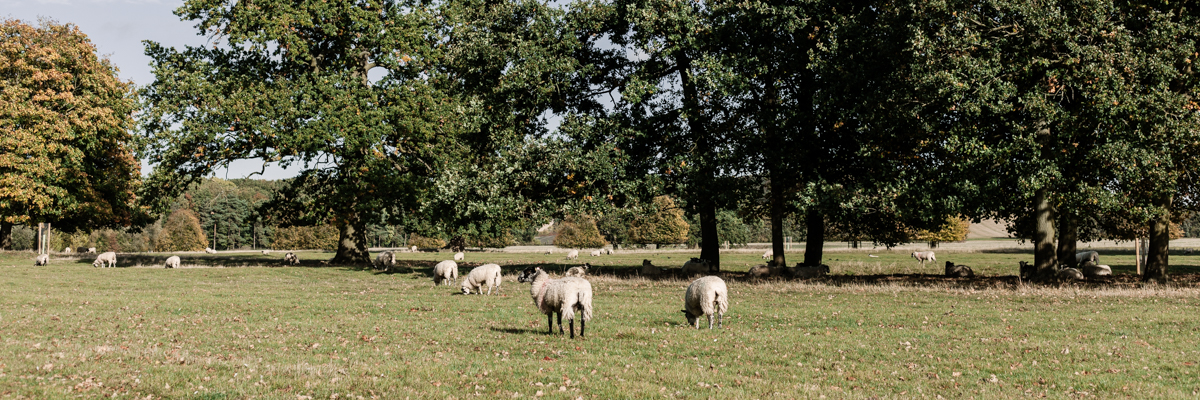
Retreats
Question: How many students will attend a course?
 My preferred number of attendees for workshops and retreats ranges between 4 and 6. This count strikes a balance between fostering a vibrant and engaging environment and ensuring personalized attention for each participant.
My preferred number of attendees for workshops and retreats ranges between 4 and 6. This count strikes a balance between fostering a vibrant and engaging environment and ensuring personalized attention for each participant.
For one-day events, which are typically more academic, we can host up to 12 individuals. Please note that these sessions primarily involve demonstrations and discussions as opposed to hands-on baking due to the larger group size.
For larger events, we can accommodate up to 18, such as the Tuscan baking week.
In the case of a course appearing fully booked on our website, there may be circumstances under which we can accommodate an additional student. Should this be your situation, please reach out directly to Libiana@sourdough.co.uk. She will then determine if offering you a place on the course is feasible.
Online Only Courses
Health and Safety
What is included in a Workshop?
Included in the Sourdough School Workshop and Online Certificate:
- Scheduled Activities: All activities in the teaching timetable, including swimming, yoga, sound baths, and guest tutor sessions.
- Meals and Refreshments: This includes tastings, lunch, unlimited tea, coffee, and breads to take home.
- Course Materials: Ingredients needed for the course, a portion of Sourdough School starter to take home, pre-course materials, worksheets, and access to relevant recipes.
- Additional Takeaways: Items created during the course, like pickles, soups, and sometimes butter, subject to availability.
- Certificates: Awarded upon appropriate completion of the course.
- On-Site Meals and Snacks: Food and snacks provided throughout the day.
- Scheduled Excursions: Travel to destinations such as flour mills or farm shops on retreats.
Students are Responsible for:
- Travel and Accommodation: Responsibility of the students.
- Travel Insurance: Essential for covering short notice cancellation of course fees.
- Evening Meals: Not included unless scheduled as part of the course.
- Travel Coordination Among Students: The school does not facilitate this due to health and safety reasons.
- External Expenses: Any expenses outside the school, such as travel and accommodation, are the student’s responsibility.
Where is The Sourdough School Based?
LOCATION
Vanessa’s Sourdough bread making classes are a world away from the hustle and bustle in a pretty village just 4 miles north of Northamptonshire – which is possibly one of the most easily accessible counties in England. We are within an hours reach of London, Oxford, Milton Keynes, Cambridge, Leicester and Birmingham, which is just 15 – 20 minutes form the M1, the M6 and the A14.
Driving distances to The Sourdough School
- London 75 miles via M1
- Cambridge 55 miles via A14
- Oxford 48 miles via A43
- Birmingham 53 miles via M6
- Manchester 135 miles via M6
The train station is also only a 15 minute taxi ride away, making it really easy to get to us from London on the train.
BY TRAIN
There are regular trains from London Euston and Birmingham to Northampton.
Central London – trains go directly from London Euston station to Northampton station and take about 55 minutes. A taxi to the school from Northampton station takes about 15 minutes.
If there is ever a problem with the Euston to Northampton line, trains also run from St Pancreas to Wellingborough and Market Harborough both of which are about a 20 minute taxi drive away.
Birmingham – trains go from Birmingham to Long Buckby station and take about 40 minutes. A taxi from Long Buckby station to the school is about 15-20 minutes. Long Buckby is a rural station so there are no black cabs here.
Check www.nationalrail.co.uk for train times. We are about 15 – 20 minutes away from the station by car, dependent on traffic.
Taxi service from the Train station. We have a super taxi service called KPD Taxis with a set fee of £13.50 (week days) or £15 (weekends) to bring students to the school. If there is more than one student traveling then they will bring you all at the same time, and will advise you regarding the lower fare. To use this taxi service call 01604 882798 or email [email protected]
Other Northampton taxi companies are:
Amber Cars – 01604 232666 https://www.ambercarsnorthampton.com/
Ace Cars – 01604 719697
Bounds – 01604 626262
Phoenix Class – 01604 222222
We would advise that you pre-book a taxi to take you from the train station to the school, and vice versa. Black cabs at the train station are more expensive.
BY AIR
The closest airports are –
Birmingham – there are regular trains direct from the airport to Long Buckby (about 40 minutes). Then take a taxi to the school (approximately 15 minutes). You will need to pre-book a taxi as this is a small rural train station and there is no taxi rank.
Luton – the quickest option is to take a taxi from the airport (approximately 50 minutes) – we have used Skyways Cars before. The most affordable option is the National Express bus service to Northampton town centre which takes about 1 hour 15 minutes. Then take a taxi or the X7 bus from the bus station to the school. The bus stop at the top of Pitsford village is about a 10-15 minute walk to the school. You can book National Express bus journeys online.
East Midlands – a taxi from the airport will take a little under an hour. National Express runs two buses each weekday, the journey to Northampton town centre takes either 2 hours 15 minutes or 2 hours 50 minutes depending on which service you take. You will then need to take a taxi or an X7 bus from Northampton town centre to the school.
Stanstead – trains run every 20 minutes from Stansted to Tottenham Hale underground from where you can get an underground train to London Euston. Overland trains from Euston run hourly to Northampton. You can then take a taxi or the X7 bus from the bus station to the school. The train station is about a 15 minute walk to the bus station.
Heathrow – trains via Euston London take about an hour to Northampton railway station. To get to Euston from Heathrow follow signs for the London Underground, take the Piccadilly Line to Green Park, then the Victoria Line to Euston. Allow an hour to get from Heathrow to Euston.
Or you can just take the Piccadilly Line straight to Kings Cross St. Pancras and walk to Euston (about ten minutes). From Northampton train station to get to the school you will need to take a taxi (about 15-20 minutes). If you can pre-book a taxi it will be cheaper.
Alternatively you can take a bus to Watford Junction and then the train to Northampton (both run hourly) this takes 2¼ hours.
When you are booking flights around a course at The Sourdough School, please allow plenty of time for travel between the school and the airport.
By Bus
There is a stagecoach service which will drop off at the main road on the A508 which is about a 10 – 15 minute walk into the village here – please contact me for more details of which stop is best to get off at. You will need the X7 bus.

NORTHAMPTON IS BASED WITHIN EASY REACH OF LONDON, OXFORD, CAMBRIDGE, MILTON KEYNES, BIRMINGHAM.
Address for a detailed map and the address please email [email protected]
There is plenty of parking and you can expect a warm welcome.
Why we check your baking ability before you attend a Retreat
The Retreats are what we call a combined course, with a minimum of 6 months of online lessons on the Bake for Health online course before you attend in person
We want you to have an amazing week. So this is really important that you follow the course syllabus on the Bake for Health Online before you attend.When you are going to spend time with people who are have baked before and learn from Vanessa then being familiar with the recipes and structure of the recipes will make a huge difference to your enjoyment of the course, and to the other attendees.
This means you are familiar with the basics, including sourdough starter refreshment, baking terms, and basic techniques.
It is mastering this basic knowledge that make the course go smoothly. We know it is sometimes hard to find the time, but we find those students who have followed the online lessons benefit immensely. We also know that if if you have not followed the online course then you will find the retreat style frustrating because it builds on the foundational knowledge learned before attending.
To ensure you get the most out of your time at the school we ask that you practice our classic beginners sourdough formula before attending. This formula is also the classic 20% retarded loaf on page 114 of the sourdough school book.)
You are required to email us a photo of this sourdough bread, or equivalent at least 8 weeks before your in person course starts.
What happens if I need help with my baking when I get home?

Your learning journey doesn't stop when you leave the school – it truly has just begun. With your Sourdough Club membership, you're never alone in your sourdough baking journey.
The Sourdough Club membership provides comprehensive, top-level support to help you continue your sourdough journey with confidence. Remember, leaving the school doesn't mean the end of your learning journey - every bake is a new opportunity to learn and grow in your understanding of the sourdough process.
A key aspect of this membership is your access to Vanessa Kimbell, our founder and sourdough expert. There will inevitably be times when your sourdough baking may not go as planned, and you need help identifying the issue. Vanessa is often available to assist in these instances.
However, to enable her to provide you with the best possible advice, it's important that you provide a complete set of information regarding your baking process. This includes specifics about your ingredients, methods, timings, and any issues you're experiencing. This thorough understanding will help Vanessa guide you effectively through your sourdough challenges and ensure your continued growth as a baker.
We have weekly live Q&A sessions and a Club Forum to enable you to get the support and help you need.
How do I get my sourdough starter home?
 Many of our students ask me about the practicalities of taking their sourdough starters home with them. They have travelled from around the world to visit the school, so it’s only natural that they have concerns about getting their starter back home. But in fact, it’s very straightforward. Sourdough starters, when they are refreshed correctly, can remain out of the fridge for between 24 and 36 hours as long as they are kept at a regular temperature. This means that most journeys can be accomplished between refreshments… if not, it’s very easy to maintain your starter while still on the road (or train or plane!)
Many of our students ask me about the practicalities of taking their sourdough starters home with them. They have travelled from around the world to visit the school, so it’s only natural that they have concerns about getting their starter back home. But in fact, it’s very straightforward. Sourdough starters, when they are refreshed correctly, can remain out of the fridge for between 24 and 36 hours as long as they are kept at a regular temperature. This means that most journeys can be accomplished between refreshments… if not, it’s very easy to maintain your starter while still on the road (or train or plane!)
When you leave the school, we supply you with a small pot which contains 80g of sourdough starter. We also give you a bag for the starter to travel in. We refresh the starter on the last day of the course before you leave, to ensure it’s at the optimum point and ready to travel home. We also supply small bags of flour, so if anybody needs to continue refreshing their sourdough starter for a few days before they go home or on the journey, then they are able to do so. Keeping your starter healthy is a very simple process and will be fully explained on the course. But essentially, to refresh your starter you take ¾ (60g) of the starter out of the 80g we give you. Then stir 35g of water and 25g of flour into the remaining ¼. All you'll need is a small spoon or, at a push, you can use your fingers for mixing. This ratio of flour and water keeps your starter slightly thicker than you would normally have it, which slows down the rate at which the bacteria consume their food source.
There are a couple of considerations to bear in mind when you are travelling – the main one to remember is that your sourdough starter is still fermenting and is going to be producing gas. It’s worth opening the lid every few hours to release these. If you forget, the worst that can happen is that the gases build up and pop the lid so that a little of it spills out into the plastic bag. This isn’t really a problem because you can wash the starter out of the plastic bag when you get home, although you will only need 20-25g of it to refresh anyway.
Taking your sourdough on an aeroplane.
I don’t recommend keeping the bags of flour in your hand luggage because, more than likely, you will be stopped and have it tested at the airport. But I do prefer to carry my starter in hand luggage. It can safely travel in the hold. It will get cold but certainly shouldn’t come to any harm. If you decide to take it in your hand luggage, remember that it will be subject to the restrictions on liquids and gels, so don’t try to carry too much. I also find it helps to clearly label the container or bag with the contents… if nothing else, it can lead to some interesting conversations at security!
It’s really not a problem to travel with your sourdough starter. I’ve taken mine all over the world. In fact, the sourdough starter you will be leaving The Sourdough School with is part of a starter that has already been all over Europe, as well as to India and the USA. So we’re sharing a very well-travelled starter with you!
What are the Course Start time & End Times?

The typical operating hours for our courses are from 10 AM to 6 PM. However, it's crucial to note that each course follows its unique schedule. We encourage you to refer to the step-by-step pre-course information, The link would have been automatically emailed to you at the email address that you provided as you registered, which details the specific start times for your individual course.
Do not turn up early.
We emphasise the importance of starting our courses on time. As such, we kindly request that you refrain from arriving earlier than the designated starting time, which is typically 10 AM. The time prior to the course commencement is dedicated to meticulous preparation, akin to the final moments before hosting a dinner party, where the atmosphere is abuzz with activity.
If, for unavoidable reasons, you find that you will arrive early, we kindly request that you notify us at least two days in advance.
Courses usually conclude at 6 PM and we suggest arranging for taxis at 6:15 PM for example, allowing a slight buffer should the session run a bit longer.
Please bear in mind that it typically takes around 20 minutes to reach the Northampton train station from our location.
Can I take photographs?

We have to have consent to take photos here at The Sourdough School. Please fill in this form
We respect that some people prefer to remain private, so please tell us if you wish to remain anonymous. Our policy about sourdough social media is to celebrate and share while respecting the preferences of all students and members of the team here at the school.
We are sensitive to both those who love social media and also those that don’t. You are welcome to take photos of the bread, lunch, the school and the garden and other bakes, but please avoid photographing people unless you have their consent.
Vanessa prefers not to be photographed except in some group shots. She is, however, happy to provide a range of photos which can be used within the WhatsApp group.
Photos in the classroom and garden are fine, but not our living space. No photos of Vanessa's children please (unless they expressly give their permission).
Do I really need a Sourdough School Book?
Absolutely, bringing a copy of "The Sourdough School" book with you on your retreat will significantly enhance your learning experience, as we use it as a primary reference throughout our courses.
Why don't we include the books in the course fee?
Arranging book distribution has proven complex, as many of our students already have a copy. Interestingly, the cost on Amazon is often lower than what we can obtain from the publisher. Therefore, we encourage students to bring their own copies or notify us if they wish to purchase one on-site.
Please note that becoming familiar with the stages of making sourdough, as detailed in the book, will allow you to gain much more from the course. If you prefer not to purchase a copy, you are welcome to borrow one from the school and use my online teaching notes when you get home.
Do we have copies of your other books?
We generally have copies of my book "Food for Thought" available for purchase, but "Prepped" is rarely in stock. You're welcome to bring your own copies if you'd like them signed. Again, it's usually more cost-effective to purchase these online, as we must pay wholesale prices for our stock.
In addition, we also offer "10 Minute Sourdough" and "Sweet Sourdough" as options to buy, but please be aware that we may not always have these in stock.

Is there any continued support when I get home?
Yes! We offer continued support and encourage students to share their experiences through the WhatsApp group.
In addition, once you sign up for a course you will be given 12 months membership of The Sourdough Club. This gives you access to Vanessa's notes and teaching. Sign up for the club using the code sent to you in your booking acknowledgement email.
Research
We have several researchers that work for the School and the papers are available on request. All the studies though, are listed and reference and summarised on the sourdough club pages.
Expectations
"What can you expect when you come to a course?
You can expect a warm welcome and to work hard and learn a lot. It's fun, and small groups make friends. However, it is a big commitment both financially and in terms of time, so it's important for you to research your week thoroughly. We are always happy to answer questions, but there are a few things we can share to fill in any gaps.
What do we expect from you?
We hope for lovely people who want to learn everything we can teach you about sourdough. We need you to be punctual, well prepared, with long hair tied back, short fingernails, wearing a full apron and raring to go.
We also expect our students to continue their baking when they get home, which is why we have The Sourdough Club and provide feedback and support long after the course has finished.
What should you expect from a course?
While the teaching will centre on every aspect of sourdough bread, there will still be time to savour your bread, relax, breathe deeply and just lose yourself in long, slow fermentation and in the beauty of winter in our rural Northamptonshire setting. We will try to incorporate a walk into each day's schedule, weather permitting.
You will have some free time in the evenings, and there is the opportunity to walk, cycle, visit the local pubs, or pop into the local cheese mongers and bakery, and we arrange a visit to the local vineyard. The course aims to give you the confidence and know-how to bake your own homemade, artisan, sourdough loaves. It will be a fun week full of information, demonstrations, and baking. All participants will receive a certificate of attendance. Once you have booked, a full schedule will be sent to you.
Will you make the perfect loaf?
Probably not.
Something to bear in mind: It took many years to master sourdough. It is an art, and sourdough is wild. Fermentation is unpredictable at times, and many students often arrive with very high expectations. Often, people show me loaves they want to make by bakers who have baked over 500,000 loaves. Yes, they are amazing. However, it takes years to really master sourdough. It is like learning to play a musical instrument, and although you will attend a course for a few days or even a week, it takes most bakers a three-year apprenticeship to learn to bake sourdough, and even now, 35 years on, I am still learning every time I bake.
Be ready to learn. Sometimes things don’t always go according to plan... although mostly they do; it is somewhat ironic, but we learn more from our mistakes than we do from our successes.
What you will learn here is not just to follow a recipe; you will learn core principles and to trust your senses, to have an understanding and a sense of rhythm, timing, and connection to the dough and the process of making bread. You will make great bread and learn everything you need to know to be in a position to practice with knowledge.
Then it is up to you to bake. Over and over again.
That is the joy - the journey
Does Vanessa teach abroad?
At the moment Vanessa teaches exclusively at The Sourdough School. There are many reasons for this. At the school we have everything set up to deliver the level and standard of courses that are expected. The classroom space we use has been specially designed to accommodate our students and allow Vanessa to teach in a comfortable and welcoming environment.
Having lived in the area for many years, Vanessa has long established connections with the local farmers and producers. This is reflected in the samples that she gives to students on the course, and the incredible lunches provided, which are made with locally sourced food (some of it from Vanessa’s own garden). The school is also certified organic. So everything that we use here has been selected very carefully to be a part of the teaching experience.
And, of course, Vanessa is a mother to three children and a wife. Teaching from her home give her the flexibility to fit the work she loves around her family life.
Vanessa does occasionally speak at international conferences on the subject of nutrition and digestibility. If you would like to discuss the possibility of Vanessa speaking at an event, please get in contact via the school's commercial director ([email protected]) to check availability and costs. It’s also important to remember that when asking Vanessa to attend you will need to be able to cover flights, accommodation, transport and a speaker’s fee.
Do you post your book internationally?
Yes, we can send The Sourdough School book to international students. Our online shop is managed by the lovely people at Bakery Bits who are all set up to send products around the world.
If you are ordering from overseas, please ensure you provide a contact telephone number because this is required by the delivery companies.
Can you recommend somewhere to eat in the evening?
You will be quite tired and sometimes quite full a the end of each day, and you are most welcome to take home some of the leftovers from lunch, however it is also lovely to go out in the evening, and there are lots of amazing places to eat. And because they are so good, we would always suggest that you book in advance to avoid disappointment.
These are some of our favourites –
The Althorp Coaching Inn, Great Brington
With oak beams, flagstone floors and a roaring log fire, The Althorp Coaching Inn is all you would expect from a traditional village pub. This 16th century coaching inn, just 7 miles from the school, is a listed stone and thatch building. It has a courtyard, an enclosed garden and a beautiful, vintage-style barn. The inn specialises in quality British food, real ales and fine wines. The menu ranges from bar meals to classic restaurant dishes, made from locally sourced ingredients wherever possible.
Website: http://www.althorp-coaching-inn.co.uk/
Phone: 01604 770651
Facebook: https://www.facebook.com/althorpcoachinginnfoxandhounds
Twitter: https://twitter.com/AlthorpInn
The Griffin Inn, Pitsford
The Griffin Inn is a proper village pub, and at the centre of our village community. A selection of local ales are served along-side delicious home-cooked pub favorites – they have a steak menu, chef’s specials boards, light lunch options, and then there’s the chef’s legendary traditional Sunday roast.
Website: http://griffinpitsford.co.uk/
Phone: 01604 880346
Facebook: https://www.facebook.com/PitsfordNorthampton
The White Horse at Old
Travel past Pitsford Water from the Sourdough School and you will arrive in Old, a small village with The White Horse at the centre. The seasonal menu offers a range of delicious dishes, with daily specials and plenty of choice for vegetarians. There are also artisan pizzas, baked in an outdoor wood-fired oven. Many of the dishes can be served in child sized portions for younger diners. The pub stocks a good range of craft beers and heritage ciders too. Check their website for details of the monthly quiz nights and live music.
Website: http://www.whitehorseold.co.uk/
Email: [email protected]
Phone: 01604 781297
Facebook: https://www.facebook.com/whitehorseold/
The Red Lion, Main Street, East Haddon
A cosy thatched pub in a peaceful, idyllic village surrounded by picturesque Northamptonshire countryside. The Red Lion specialises in serving great British food, cooked using local seasonal produce. The pub has an intimate lounge, a large dining room and manicured gardens, and is just 6 miles from The Sourdough School.
Website: https://www.redlioneasthaddon.co.uk/
Email: [email protected]
Phone: 01604 770223
Facebook: https://www.facebook.com/The-Red-Lion-East-Haddon-148874411832224/
The Artichoke, Church Street, Moulton
The Artichoke is one of the closest pubs to the school. It specialises in food cooked using quality, local ingredients. Their meat is sourced from the local butcher’s, sausages from Mike’s pigs of Moulton, and the vegetables are delivered daily. This Grade II listed building dates back to 1680 and the owners think it was originally a farmhouse and village inn. It has a lovey, private and dog-friendly garden with plenty of seating for guests. There is regular live entertainment, including quizzes, jazz nights and fold nights.
Website: http://www.artichokemoulton.co.uk/
Email: [email protected]
Phone: 01604 643941
Can I be a case Study?
Next year ( 2024) I'll be beginning the 2nd phase of research and there is another exciting project here at The Sourdough School which I hope will result in more case studies.
I will be starting the second phase of my Masters in Research I hope to have finished my PhD in Nutrition & digestion of Bread. This is research, in the form of dietary intervention studies, will contribute significantly to the growing discussion about how the Protocol of Baking as Lifestyle Medicine has a significant effect on microbial population, diversity and supporting a healthy gut micobiome, as well as a positive impact on mental health.
How does it work?
It is two parts. You get a home study pack delivered directly to your door, with everything you need in the pack and you follow the step by step online tutorials online.
Each group be asked to bake a specific delicious and nutritious sourdough bread at home for an allocated length of time and you will be the first to find out the results of your gut microbial analysis, any changes and the implications.
Why do we have to pay to participate?
This is still part of the way I teach and is still a course, and delivered in the same way as the ones we teach normally. This is just a very special course, that becomes part of a research study. The tests themselves are very expensive, although they are totally FREE to the participants, we feel that a mutual commitment is needed, and this is quite a commitment, involving baking and bread over several months.
- What is in it for me?
- You will learn to make a specific bread that will have all the techniques needed to make amazing sourdough and learn to bake as Lifestyle medicine
- You will have the results and feedback of your gut microbial composition and find out how it is affected by eating sourdough.
- You will be participating in research that will change the way we understand bread and the way we eat it on our health. It's cutting edge research into one of our most important foods.
- We will share our knowledge in terms that can be understood by everyone.
Will I be named?
- Everyone's results will be confidential and you will be given a number, rather than be identified by name. However you can enjoy participating in the discussion of the study on social media. It is not a secret, but we are obliged to keep individuals makes and results anonymous. You of course can share your participation - that is up to you.
- There are a limited number of places to participate in The Masters in Research course, and anticipate initially that each group with have between 20 - 30 participants.
- Each student will need to agree to give basic health details (weight, blood pressure, etc.) about themselves and send in samples regularly for a gut microbe analysis . The fruit project will be looking at comparing the gut microbiome before and after baking and eating sourdough.
If you’re interested in joining this course, please sign up to our newsletter as we will be sending out the opportunity to participate in this research next term. ( Autumn Winder 2024)
Will there be any more Sourdough Sisters?
Our intention is to run Sourdough Sisters as an annual event. The applications for next year will open in early 2019, and the course will run in summer 2019. Unfortunately, we are not able to run these courses abroad. Vanessa teaches exclusively at The Sourdough School, because this is where all her resources are, and where her organic certification and insurance are valid.
Should you wish to apply for the next Sourdough Sisters please sign up for our newsletter and we will send more information as soon as it is available.
Do I have a gluten allergy?
I’m often contacted by people looking for advice about gluten allergies or intolerance.
My first response is always that if you suspect you may have a gluten allergy or may be coeliac, you must see a GP to get a diagnosis.
Although I have spent many years researching the digestibility of sourdough, I am not qualified to diagnose any of the medical conditions which can cause symptoms similar to gluten allergy.
There are numerous reasons why people have digestive malaise when eating bread, but we do know that many people find that they can eat sourdough without any issues.
Gluten intolerances and allergies are widely blamed for symptoms such as bloating, constipation and other digestive discomfort. In some cases rather than gluten, it is a range of naturally occurring sugars (known as FODMAPS) that are the root of the problem. There are also suggestions that the modern, industrial bread making process has led to the rise in people adopting a gluten free diet. Many people find sourdough easier to digest, and that they can eat it without experiencing any discomfort.
Coeliac disease
One of the most debilitating conditions associated with wheat is coeliac disease, an auto-immune condition triggered by gliadin, a component of gluten. Although there is some initial evidence suggesting that sourdough might be suitable for coeliacs to eat, this evidence was a small trial and gathered under medical supervision, which is very different from buying a lao from a bakery or baking your own. I do not recommend people with coeliac disease to eat sourdough, because it’s not possible to guarantee that the gluten is broken down sufficiently to that loaf is free from raw flour, which may be on the outside of the loaf and may trigger a reaction. There are gluten free sourdough's made with rice flour or potato flour, but this is not an area I work in at present. We do not teach anyone who is coeliac to make sourdough.
If you want to come to come on one of our courses, but think you may have a gluten allergy, please talk with your doctor first. You will get much more from the course if you have a diagnosis. Different conditions can be approached in different ways, and I can teach you the best fermentation technique and recommend the best flour choice for your specific condition.
The most important thing is to address the issue of a potential allergy or other medical condition before you book a course. Allergic reactions are very rare, but can be serious. If you have an immune response that comes to light during the course, we will ask you to seek advice from a doctor before you can continue.
You might find this podcast with Vanessa and Time Spector interesting.
Which flours do you recommend?
I have written an article which looks at the choice of flour for sourdough baking. In it I talk about how grain variety, grain quality, and milling all affect the properties of a flour.
We regularly use flour from Marriages, Doves Farm and Gilchesters Organics here at the school. Each of these mills offers a range of flours suitable for bread baking. You can buy them through DeliverDeli, and some of these flours are available in supermarkets and independent grocery stores. We also recommend using Strong Organic White Bread Flour from Marriages flour for refreshing a white sourdough starter… in fact, we provide a bag of this flour as part of our White Sourdough Starter Kit.
The important thing to remember in choosing a flour is to take time to become familiar with it. Bake regularly with the same flour and keep records of your bakes. This way you will soon learn how best to use each flour and which ones suit your baking style.
Do you offer work experience?
We often get asked if we are able to offer work experience here at The Sourdough School.
Unfortunately in the main we have to say no. We’re a small school, and because of fire regulations are only able to have a limited number of people in the kitchen at any one time. The classes we run are almost always fully booked which means, once you add in the tutors, we are at capacity. Of course, we very much welcome people coming here to learn to make sourdough, but I’m afraid we really do have to limit it to students who book on a course.
Saying that, we occasionally have students back who have previously been students, and I began my baking career volunteering in a small French bakery. So I would advise anyone looking for work experience that it’s definitely worth persevering. One of my recommendations for people who want work experience in baking sourdough is to ask at your local bakery – there’s often much more practice to be had in a bakery where they are making hundreds of loaves every day. Just keep asking… that’s how I got my first work experience. Having started my baking career with work experience, I would really encourage anyone to do this. But unfortunately we just cannot accommodate volunteers here.
How do I subscribe to The Sourdough School newsletter?
Our newsletter is a great way to find out about the latest happenings and offers at The Sourdough School, and is packed with recipes and baking tips. It’s also the best way to find out about new courses as soon as they are opened for booking.
You can add your email in the ‘Subscribe Here’ page. Simply enter your email address, click the button and you’re subscribed, and you will the first to know about what we are up to.
Do you offer online courses?
 At The Sourdough School, both The Certificate and the Diploma are online courses. However, for domestic bakers, we suggest The Sourdough Club, which is designed to provide an ongoing learning experience and support for domestic bakers who want to master the art of sourdough baking at home. The Sourdough Club is a comprehensive resource that enables members to expand their skills and knowledge in the world of sourdough, and we teach all the BALM protocol here.
At The Sourdough School, both The Certificate and the Diploma are online courses. However, for domestic bakers, we suggest The Sourdough Club, which is designed to provide an ongoing learning experience and support for domestic bakers who want to master the art of sourdough baking at home. The Sourdough Club is a comprehensive resource that enables members to expand their skills and knowledge in the world of sourdough, and we teach all the BALM protocol here.
Some of the key benefits of joining the Sourdough Club for a home baker include:
- Continuous learning: As a member, you will have access to a wealth of information, including tutorials, articles, and research studies. This allows you to deepen your understanding of sourdough and its associated techniques.
- Access to recipes: The Sourdough Club offers an extensive collection of recipes for various types of bread, pastries, and other baked goods. Members can experiment with new recipes and learn to incorporate sourdough into their daily meals.
- Supportive community: The Sourdough Club connects you with a community of like-minded bakers and enthusiasts. Through forums and group discussions, you can share your experiences, ask questions, and learn from others.
- Expert guidance: Members have the opportunity to interact with Vanessa and other sourdough experts through scheduled live sessions. These sessions provide a platform for direct communication, addressing questions or concerns related to sourdough baking.
By joining the Sourdough Club, home bakers can transform their passion for baking into a lifelong pursuit, continually expanding their knowledge and skills in the fascinating world of sourdough.
here.
Can I buy sourdough starter?
You can buy some of the sourdough starters we use here at the school through our online shop. We recommend the White Sourdough Starter Kit, which contains all the information you need to keep your new starter active and healthy.
The sourdough starter is carefully nurtured here at The Sourdough School, and we make sure it is sent out in peak condition. Starters are sent out twice a month and advised that they should be refreshed as soon as they arrive.
Where can I get your Sourdough School book?
You can order a signed copy of the Sourdough School book through our online shop.
The book is also available through Amazon, Waterstones, and lots of lovely independent bookshop
Can you sign my book personally for me?

In person Yes, but online We are really sorry, but at this point in time, it just isn’t possible for Vanessa to write a personal dedication when you buy a copy of The Sourdough School book.
However, we are able to post you a signed bookplate, if you send us a self-addressed envelope, we will return a plate for you. Please contact us via the contact form.
Vanessa's work commitments simply don't give her the time to sign, wrap, and take individual books to the post office, but you can buy a signed copy through our online shop.
If you sign up to our mailing list we will let you know when Vanessa is doing a book signing, though.
We are looking into ways to include individual dedications, but for now, the only way Vanessa can sign your book in person is if you book a course.
Is The Sourdough School book available in any other languages?
Yes, the book has been published in German, Italian, Croatian and Spanish. There will be a US edition published in September 2018. For anyone who is struggling to get the book in their language, I’m sure there will be more editions coming out. But for now these are the languages it is available in, generally you will find this on the amazon listing in the country of publication, however you might need to search under the name Vanessa Kimbell as the title will have been translated.
Do I get a certificate when I attend a course?
 Yes. Each in-person student receives a personalised, signed certificate to confirm they have attended an in-person course at The Sourdough School.
Yes. Each in-person student receives a personalised, signed certificate to confirm they have attended an in-person course at The Sourdough School.
Should students wish, then they are added to our graduation board. We have trained many hundreds of people to bake. However, this is the first year of the board, and we are excited to see people graduating and putting their knowledge to use; please see the early days of our new Graduation Board Once students have demonstrated they understand all the principles that have been taught and are able to apply these in producing a sourdough loaf.
At the end of the in-person course, students complete a worksheet and undergo a practical assessment. This is definitely not an exam! But we do take the certification quite seriously so that each student can celebrate the fact that they have a diploma from The Sourdough School. We are here to guide you through the whole course and ensure that every student leaves the school confident and equipped to bake the most delicious sourdough bread.
At the end of the online courses students have to produce and edible exam. This is an example of a graduation recipe, which is then shared with all student in the school
Are the courses suitable for professional bakers?
We often get asked if our courses are suitable for professional bakers, or if they are designed solely for the home baker. The courses we offer teach the principles of everything you need to know about sourdough, whether you are a domestic or a professional baker. There are, of course, differences between the two - mainly in scheduling and quantities. But the principles and timings that underpin sourdough baking can be applied equally to a home kitchen or commercial bakery, and we find that Baking as Lifestyle e medicine is useful to all.
- For bakers wanting to teach Baking as Lifestyle Medicine we suggest you look at The Certificate here.
- For Healthcare professionals wishing to train in prescribing Baking as Lifestyle Medicine look here
- For Homes bakers who wish to learn how to bake for themselves and their families check out The Sourdough Club Membership here
- For anyone hating to totally emerse themselves in the experience of Baking as Lifestyle Medicine then you can learn more about attending a 7 day retreat + 1 year Certificate here
Vanessa trained and worked in bakeries
Vanessa trained and worked as a professional baker, so she is very conscious of scheduling and timings when working with large quantities. She is more than happy to discuss this as she is teaching. During the course we work with 1kg quantities. These can, of course, easily be scaled up in a professional bakery, because we are working with baker’s percentages and ratios.
So yes, absolutely, the principles we teach at The Sourdough School on Baking as Lifestyle =Medicine are very much applicable to professional bakeries. But please bear in mind that this is classroom-based teaching, and some specific tips and techniques that might be useful in a professional setting will not be demonstrated during the course.
Can you answer some questions I have about my sourdough baking?
Unfortunately Vanessa is not able to answer individual questions that are emailed.
We receive dozens of home bakers looking for advice. Some of these involve very detailed explanations of what they are doing with their starter and their dough. Whilst we appreciate that people want help with their sourdough, we are a small business and simply don’t have the capacity to answer individual questions… there just aren’t enough hours in the day. You can however join The Sourdough Club, where Vanessa teaches live most weeks.
Generally we offer the following advice to those contacting us -
Vanessa’s book, The Sourdough School, is a comprehensive guide to sourdough, based on her years of baking experience. Reading the step by step introduction to sourdough, and working through the recipes will give you lots of baking practice and should help answer many of the question you have.
Consider booking onto one of our 12 month online courses with tuition from Vanessa. There are three courses available, each one suitable for different levels of baking experience. The cost of the course includes a sourdough starter and a ceramic pot to keep it in, 12 months of guided tuition through a wealth of online material, and two skype calls with Vanessa to discuss your progress at key points during the course. These calls are a chance to learn, get lots of baking tips and ask any questions you might have regarding your own sourdough baking.
Do we have international students?
Yes.
Over the years we have welcome students from all over the world to the school. Our diploma courses are especially popular with international students. In the past few years we have had students from Europe, the Middle East, North and South America, Asia, and Australasia. It makes for a wonderful mix of cultures and languages in the kitchen while we bake!
If you are travelling to the school from overseas, there is detailed information on how to get here.
What is the maximum number of students that attend a course?

At The Sourdough School, we believe that a small class size is essential for an effective learning experience. Our preferred maximum number of students for most courses is six, especially for Diploma courses. This size strikes the perfect balance between creating a lively atmosphere filled with questions and enthusiasm while ensuring that each student receives the individual attention they may need.
In certain situations, we have taught classes of up to 12 students. The class size depends on factors such as the length of the course, the techniques being taught, and the recipes being used. For more academic courses that focus on demonstration and discussion rather than hands-on learning, we might accommodate up to twelve students. However, even with 12 students, our class size remains small and intimate.
If a course appears as fully booked on our website, we may be able to accommodate an additional student in exceptional circumstances. In such cases, please reach out directly to Vanessa at [email protected], so she can assess whether it is feasible to offer you a place in the course. We prioritize maintaining an optimal learning environment for all our students and strive to accommodate individual needs as much as possible.
Is there a waiting list for the courses?
We limit the number of students on our in-person courses to between 4 and 6.
This is so we can ensure there is time for each student to get some individual attention, and we can tailor the tuition to the interests of a small group. But it does mean that some classes get booked up very quickly, and not everyone can get a place on the course they want. We do keep a waiting list for courses once they are fully booked but, to be honest, we find that students rarely drop out once they have booked.
If you have tried to book a particular course but have found that it is already full, there are a number of options you might like to consider…
Firstly, you can add your name to the waiting list by emailing [email protected], stating your name and the course you are interested in.
Alternatively, you might like to join The Sourdough Club. This gives you access to step-by-step lessons, including videos, and a lot of sourdough-related information. Membership of The Sourdough Club brings you into our international community of sourdough bakers, and allows you to learn in your own kitchen at a pace that suits you.
Question: How many students will attend a course?
 My preferred number of attendees for workshops and retreats ranges between 4 and 6. This count strikes a balance between fostering a vibrant and engaging environment and ensuring personalized attention for each participant.
My preferred number of attendees for workshops and retreats ranges between 4 and 6. This count strikes a balance between fostering a vibrant and engaging environment and ensuring personalized attention for each participant.
For one-day events, which are typically more academic, we can host up to 12 individuals. Please note that these sessions primarily involve demonstrations and discussions as opposed to hands-on baking due to the larger group size.
For larger events, we can accommodate up to 18, such as the Tuscan baking week.
In the case of a course appearing fully booked on our website, there may be circumstances under which we can accommodate an additional student. Should this be your situation, please reach out directly to Libiana@sourdough.co.uk. She will then determine if offering you a place on the course is feasible.
Refund policy and pausing your Online Course
Our Commitment to Educational Access: Explaining Our No Refund Policy
To enable this cycle of reinvestment, we have a no-refund policy for our courses. We want to ensure that all potential students are aware of this policy at the time of enrolment. This approach allows us to plan for and allocate scholarships and support our social prescription baking scheme effectively.
We understand that life can sometimes be unpredictable, and we want to accommodate our students' needs as much as possible. Therefore, if you need to take a break after starting a course, you can pause and resume at your convenience.
Before you enrol, please make sure to familiarize yourself with our policies and the unique social enterprise model of The Sourdough School. We are here to support your learning journey and empower you to become part of a movement for systems change in the world of baking, health, and social equality.
Terms and conditions We are passionate about providing education to as many people as possible, regardless of their financial circumstances. As both a small business and a social enterprise, we strive to use our resources effectively and inclusively.
Each year, we calculate our tuition fees and allocate our scholarships, bursaries, and awards accordingly. This calculation is based on the assumption that once a student accepts a course, they commit to completing it, and the tuition fees they pay are dedicated to implementing our systems change programme.
Our no refund policy, in the simplest terms, is integral to our ability to provide this opportunity to others. For every person who pays for a course, we can extend the training and education to two people who would not ordinarily have the opportunity. This approach aligns with our values of inclusivity and learning accessibility.
Refunding course fees would significantly impact our ability to run this programme. Therefore, instead of providing refunds, we offer the option to pause your course. We've found this to be a supportive and inclusive solution, allowing students to return when they are ready without financial loss.
For the 2022/23 Programme, we generated £50,000 in revenue and awarded £150,000 worth of scholarships and awards. To continue operating and providing these opportunities, we cannot offer refunds. This is why we have a strict application process and require all applicants to fully understand and agree to our no-refund policy.
If unforeseen circumstances arise and you are unable to continue with your course at this time, we can pause your course and re-enroll you the following year. We believe this approach respects both our commitment to providing educational opportunities and our students' varying life situations.
Thank you for understanding and supporting our mission to make sourdough education accessible for all.
To pause your course, please fill in this interruption of study below, and we will transfer you to next year's course.
Do you have office opening hours?
Office Admin Hours.
Truthfully we don’t really hang out in the office.
We find computers, flour and water don’t mix. Mostly we are in the school baking, teaching or filming, so we respond to emails and non-urgent queries on emails and Vanessa does a live session each week for any queries.
This session is ideal if you want to speak directly to me. I find this a much quicker way to answer peoples queries than long emails!
If you would like to ask a question we will review it and send you an invitation to attend. The sessions are NOT shown on the catch up, so you will need to attend live. You are muted and asked to be respectful of the other students in the meeting. It is an open session and I am happy to chat with people once I have answered any questions sent in, and I have enough time.
Sessions are 45 minutes long. I am very sorry but this is the time limit as I have to be in another tutorial at 5pm.
Topic: 4pm Open Session Vanessa Kimbell at The Sourdough School ( Terms time Only)
Join Zoom Meeting
https://us02web.zoom.us/j/89781518036?pwd=bzdvWElibUFMdVd2b1ovRitWNUNTdz09
Meeting ID: 897 8151 8036
Passcode: 813462
Session are every Thursday 4pm ( London Time ) starting this 29th September 2022 and run through out this term.
Can you please explain the Baking As Lifestyle Medicine (BALM) Protocol?
The BALM Protocol is integral to the course taught at The Sourdough School because it addresses the complex system of baking, eating, and sharing bread in a way that promotes health, well-being, and environmental sustainability. It simplifies this complex system by focusing on 7 core principles, which are grounded in evidence-based practices and the 6 pillars of lifestyle medicine.
By teaching the BALM Protocol, The Sourdough School provides students with a gold standard framework for creating and consuming bread that nourishes both the body and the mind while also supporting the environment. This holistic approach to bread-making ensures that students learn how to create bread that can prevent, treat, or modify non-communicable chronic diseases while also empowering positive change at various levels within the food system.
The BALM Protocol can be applied by individuals through prescription courses, by healthcare professionals such as GP's, and by bakeries, as well as used to influence Population Health Management through industrial applications. By teaching the BALM Protocol, The Sourdough School enables students to understand the importance of each component, from using diverse Botanical Blend flours and fermentation techniques to promoting healthy eating habits and reducing the consumption of sugar and ultra-processed foods.
In summary, the BALM Protocol is an essential part of the course taught at The Sourdough School because it provides a comprehensive and evidence-based framework for baking, eating, and sharing bread that benefits physical and mental health and supports environmental sustainability. By learning and implementing the BALM Protocol, students gain the knowledge and skills necessary to create bread that nourishes and empowers positive change within the food system.
What do I need to do to graduate?
Rising to the Challenge - you will need to create a BALM recipe
Our graduation process is a radical departure from traditional learning and assessment methods, placing a strong emphasis on practical application, sharing, community, and continuous learning.
It has been designed to be a learning experience for individual students but also creates a ripple effect of knowledge and healthy practices within the wider community. We ask you to create and share a BALM recipe which on graduation is published on your graduation page.
. In most traditional educational settings, the knowledge acquired is tested via exams, after which the exam paper is essentially discarded. The student proves their understanding but doesn't contribute anything tangible or reusable to the learning community. By contrast, creating and sharing a recipe is a unique way of demonstrating one's learning while also contributing to the community.
What is important is that this recipe can be used, enjoyed, and learned from by others, fostering a more communal and contributory spirit of learning.
The recipe it requires real life application of the principles of BALM, and students must demonstrate they can take the principles they've learned and create something practical and useful. This encourages a deeper level of understanding and engagement with the material
Equality Diversity and Inclusion Policies

1 Purpose Of Our Policy
This policy represents a commitment to a common set of values and objectives
Our policy ensures transparency, assists in the performance of this duty.
We have used the guidelines of the Equality Act 2010 Regulations 2011 (Which requires public authorities, to publish, quality objectives, and to provide information to demonstrate compliance with the public sector equality.)
We are committed to advancing and achieving equality of opportunity for all. We believe that bread that nourishes is a fundamental human right and we believe that everyone is entitled to equality of opportunity. We have even named our bread as Diversity Bread ®
All team members, club members and students are responsible for the promotion and advancement of this policy. Any behaviour, actions or conversation that transgress the policy will not be allowed and will be subject to our Disciplinary Policy and Procedure.
H
2 Roles and responsibilities
As a small business, designated member of staff for equality is Vanessa Kimbell and she is happy to discuss any issues and how any issue is being addressed. Any suspected breaches are investigated and managed swiftly, effectively, fairly and consistently.
We publish this policy to ensure that that everyone is aware of this policy and associated procedures. The team will also ensure that this policy is implemented fairly and consistently, and to ensure that this policy is fairly and equitably Vanessa is happy to give guidance, clarification and support as and when required.
Anyone Involved with the Sourdough School or Club must promote equality and diversity, and they must actively respond to any incidents of unfair discrimination related to protected characteristics perpetuated in any communication. We expect that suppliers and any organisation dealing with The Sourdough School respect others in their language, behaviours and actions and they must adhere to our equality and diversity policies, procedures and practices.
3 Equality, Diversity, and Inclusion
3 Equality, Diversity, and Inclusion
- The Sourdough School is committed to:
- Promoting equality and diversity in all our policies, procedures and guidelines
- Delivering high quality Baking as Lifestyle Medicine Knowledge that meets the diverse needs of our students, and members.
- Ensuring anyone with a protected characteristic as described within the Equality Act 2010 and does not experience discrimination
- Foster good relations across all characteristics, between people who share a protected characteristic and people who do not share it.
3. 1 How we encourage openness, fairness, and transparency
6 ways we encourage openness, fairness, and transparency
- We do our utmost, within available resources, to remove any barriers which limit or discourage access to The Sourdough School or club.
- We take effective action immediately to provide information and encouragement and support to individuals and groups whose may been limited be stereotyping or using cultural misconceptions.
- We ask that all our team members follow policies and procedures that are fair, transparent and in line with our culture and ethos, and our legal and statutory responsibilities.
- We ask that we ensure our communications are fair and polite, but we point out wherever possible any decisions, behaviours and actions align with our ethical leadership framework, in a supportive non conformational way.
- We try to actively advance equality of opportunity
We create recipes and approaches to our recipes that celebrates a diverse society
Our community promotes good relations. - At all times we eliminate all forms of unfair indirect and direct discrimination, bullying, harassment, by having an open policy we hope that we can set any misunderstandings straight as soon as possible to avoid any unnecessary distress.
The policy applies to all and underpins all The School and Club policies and procedures.
3.2 Supporting Neurodiversity
Encouraging people to bring their whole, authentic self to work and school, with the knowledge that we value difference and diversity. As Vanessa is neurodiverse, we have an open policy of sharing this information, as challenges from ASD, ADHD symptoms and dyslexia, are given support,
Avoiding Ableism Through Organizational Education
In order to be inclusive of those with less visible disabilities, we ensure that we have an open policy of disability awareness and make sure that we show sensitivity to all team members. We do not tolerate ableist language choices that may unconsciously discriminate against team members with disabilities.
To avoid accidental ableism and increase accommodation, we try at every opportunity to educate our team members and out suppliers and community (individually and collectively) on some of the most common misperceptions about disabilities.
Flexible working
Mental fatigue and ability to focus certain times of day may be an issue for those identifying as neurodiverse. We record our live sessions so they can catch up when they are ready, and wherever possible we allow people to self- schedule around their optimal times of productivity as we know this is of great benefit.

We Encourage Screen Breaks and taking time out
We are very fortunate to have Arlo who is Vanessa’s Service dog and so while screen breaks and check ins are important to reduce risks for all team members, for any individual with autism and/ or ADHD, the potential risk is increased. Hyperfocus for these neurotypes lead to overworking and so one of Arlo’s jobs is specifically to encourage Vanessa and anyone else at The Sourdough School to step away from the screen, walk outside get some sunshine and fresh air, and some gentle exercise and he helps to limit consecutive work hours may reduce future risk of burnout.
Sensory overload
The Sourdough School environment is very calm. The colours and pallet, textures and light have been created over many years to provide a soft light, and a quiet environment that reduces sensory overload. This is particularly designed to create a peaceful space for anyone with sensory overload, we find that everyone who spends time here feels that this is a magical environment that promotes a relaxed atmosphere.
We also ask our students to bring a non-bright colour apron and avoid wherever possible colours that overload the senses.
3.3 Support for Women
Women
A proactive approach to makes sure everyone feels supported, including women doing the courses and team members.
Mindful of Menopause
We are committed to supporting women during menopause
The things that make The Sourdough School a menopause friendly workplace
Open conversations to help raise awareness and understanding of the menopause and its symptoms and addressing any stigma.
- A workplace that empowers anyone to ask for support.
- Flexible working available to allow time out
- A flexible clothing policy.
- Fans and good ventilation in the school and the offices
- Clean, well-equipped, and comfortable toilet facilities with washing facilities and deodorant in case anytime needs to freshen up
- Cold drinks and water always available (and tea and coffee and wine too!)
- Quiet workplace rest areas, and the garden to sit quietly in.
- Lunch is made by Vanessa for everyone most days.
Supporting Mothers
The Sourdough School has been created by Vanessa, who began The School when her children were very little. With 3 children and a business to run Vanessa is more than aware of the demands made on mothers, so we are a friendly and comfortable place for mothers. We try with all people connected to The Sourdough School, from suppliers and team members, club members and students to ensure that we are as flexible as possible to allow mums to do all the things that are needed of them whilst still being part of the Sourdough School.
4 Our Duty
Both The Sourdough School, and The Sourdough Club is aware of its obligations under the Equality Act 2010 and whilst we comply with non-discrimination provisions, we actually aim to actively encourage a positive culture where we go above and beyond any legal and statutory requirements to ensure we operate in a climate where difference is valued and understood, and where everyone experiences equal opportunities so that everyone feels part of an inclusive community.
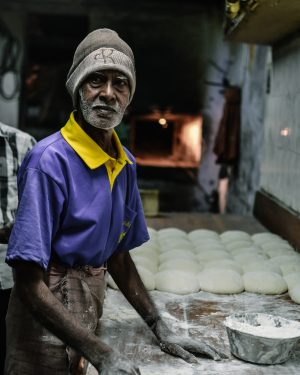
We promote tolerance, friendship and (although we are not religious,) we celebrate all religions and cultures through different aspects of our baking in courses, online and in our books. This includes breads and recipes that are from many different cultures, and different religious celebrations, however we are also aware of not crossing the boundaries of inappropriate or unacknowledged adoption of an element or elements of one culture or identity by members of another culture. Vanessa is keen to ensure that bread culture is not replaced by dominant accepted bread popular culture.
Going above and Beyond
We also invite external guest speakers to contribute
5. Objectives
Our objective are to increase participation from all walks of life,- we have an awards programme that we run to help with this.
We also encourage increased understanding between religious groups through food culture, baking eating and sharing bread. We are a safe inclusive environment and encourage engagement and understanding of differences in the way we approach Baking as Lifestyle Medicine
We also acknowledge the inequalities and challenges women at work face, and look to reduce those inequalities and challenges, increasing understanding through education, signposting and support wherever possible, and also through empowering through nutritional support and knowledge.
We aim to increasing opportunities to learn, including flexible catch-up sections
6. Breaches to policy
If any team member, club member or student or indeed anyone who is in contact with The Sourdough School or Club feels that they have not been treated in accordance with this policy, they have right of complaint our Complaints Procedure.
7 Monitoring compliance and reviewing
Effectiveness and compliance of this Policy will be monitored on an annual basis. This Policy and Procedure will be reviewed once a year in December ( the original date of implementation).)
- December 2019 Written and reviewed
- December 2020 updated and reviewed
- December 2021 updated and reviewed
- December 2022 update and reviewed
Social Prescribing BALM
gs_faq cat=”1411″]Legal, Terms, GDPR & Privacy
Why do you need to be medically qualified to Prescribe BALM for some common health issues?
Prescribing BALM is different from teaching BALM. Teaching people to bake is about the practical application of the principles of baking, eating and sharing bread and baked goods in a way that improves and supports physical and mental health - there are a few things that we restrict for teachers, such as no teaching coeliacs, however for the following conditions only a clinician who has graduated the BALM Diploma can prescribe BALM.
- Irritable Bowel Syndrome (IBS)
- Cardiovascular diseases
- Chronic constipation
- Mood disorders including depression and anxiety
- Blood glucose dysregulation (e.g., pre-diabetes, insulin resistance)
- Obesity or weight management issues
- Any other medical or psychosocial conditions where the licensee perceives that the BALM approach could provide therapeutic benefits, such as chronic loneliness.
- Individuals with mild cognitive impairment (MCI) or early-stage dementia, as participating in baking activities could help stimulate cognitive functions and provide a sense of accomplishment.
- Persons with Chronic Fatigue Syndrome (CFS) or Fibromyalgia as baking could serve as a therapeutic activity.
- Individuals in recovery from addiction, where baking could serve as a mindful activity contributing to their recovery process.
- Patients with sleep disorders, as the grounding and relaxing nature of baking might aid in establishing better sleep routines.
- Carers looking after a patient with cancer or the patient themselves
- Patients at risk of bowel cancer, as the extra fibre in BALM is clinically shown to be protective
- Patients with Inflammatory Bowel Disease (IBD), subject to following the strict guidelines on retarded wholegrain and the 12-week introduction of wholegrain protocol to ensure that gluten is broken down, reducing potential inflammation from unfermented gluten.
Medical knowledge is required
 A clinician can differentiate between symptoms that might indicate serious conditions and those that could improve with BALM. For example, they can discern if constipation could be an indicator of bowel cancer, or if a persistent stomachache might signal ovarian cancer or Inflammatory Bowel Disease (IBD) or if the symptom was more likely to be an FODMAP intolerance or a hormonal issue. Such evaluations are critical when prescribing BALM, as a red flag issue might not be caught by a link worker and it would require a different line of treatment. The BALM Protocol Clinical Compliance means that certain conditions, such as IBD, where fermentation and a change in approach require strict adherence to guidelines such as the 12-week introduction of wholegrain protocol. There are conditions that can be supported by sourdough but they require the prescriber to know the diagnosis and they advise the patient follows specific fermentation techniques, or choose certain grains, and for example, they may need to ensure that the patient avoids FODMAPs or needs extra support for blood sugar balance or they may benefit from a technique that facilitates more gluten being broken down to minimise potential inflammation whilst supporting the gut. What we knew was that a clinician's knowledge and expertise are vital to guide patients through this protocol effectively.
A clinician can differentiate between symptoms that might indicate serious conditions and those that could improve with BALM. For example, they can discern if constipation could be an indicator of bowel cancer, or if a persistent stomachache might signal ovarian cancer or Inflammatory Bowel Disease (IBD) or if the symptom was more likely to be an FODMAP intolerance or a hormonal issue. Such evaluations are critical when prescribing BALM, as a red flag issue might not be caught by a link worker and it would require a different line of treatment. The BALM Protocol Clinical Compliance means that certain conditions, such as IBD, where fermentation and a change in approach require strict adherence to guidelines such as the 12-week introduction of wholegrain protocol. There are conditions that can be supported by sourdough but they require the prescriber to know the diagnosis and they advise the patient follows specific fermentation techniques, or choose certain grains, and for example, they may need to ensure that the patient avoids FODMAPs or needs extra support for blood sugar balance or they may benefit from a technique that facilitates more gluten being broken down to minimise potential inflammation whilst supporting the gut. What we knew was that a clinician's knowledge and expertise are vital to guide patients through this protocol effectively.
Can I take photographs?

We have to have consent to take photos here at The Sourdough School. Please fill in this form
We respect that some people prefer to remain private, so please tell us if you wish to remain anonymous. Our policy about sourdough social media is to celebrate and share while respecting the preferences of all students and members of the team here at the school.
We are sensitive to both those who love social media and also those that don’t. You are welcome to take photos of the bread, lunch, the school and the garden and other bakes, but please avoid photographing people unless you have their consent.
Vanessa prefers not to be photographed except in some group shots. She is, however, happy to provide a range of photos which can be used within the WhatsApp group.
Photos in the classroom and garden are fine, but not our living space. No photos of Vanessa's children please (unless they expressly give their permission).
Why are there pets at The Sourdough School?
The Sourdough School is situated within Vanessa Kimbell's personal residence.
While the school serves as an educational facility for a substantial part of the year, it primarily remains a home.
Our pets, including dogs and cats, are integral members of our household and contribute to our daily operations in their own unique ways. The dogs, for instance, alert us to visitors, while the cats help keep the premises free from mice, thereby eliminating the need for traps or poisons in our antique property.
Please do NOT fuss the Terrier.
Please note that one of our dogs, a rescue terrier, is not aggressive; however, she is not particularly friendly towards strangers, and she is deeply uncomfortable being touched. She may look friendly however she has poor sight and is old and she can be threatened. So while she looks friendly we ask that you refrain from petting or fussing over him.
Allergies
For those with allergies, we make every effort to keep our pets at a distance. However, due to the nature of our setup, we cannot guarantee a completely allergen-free environment. We, therefore, urge you to bring any necessary medication with you, as we cannot assure that the presence of our pets won't trigger any allergic reactions.
Arlo is a service dog.
We strive for a supportive and inclusive environment that accommodates the unique needs of everyone involved. This includes our founder, Vanessa, who has Autism Spectrum Disorder (ASD) and Attention-Deficit/Hyperactivity Disorder (ADHD). Vanessa is accompanied by Arlo, a trained service dog who aids her daily. Arlo is more than a pet; he provides essential support that enhances Vanessa's well-being and ability to provide an excellent learning experience for our students.
We want to assure you that Arlo is not permitted in the cooking or food preparation areas. His presence is limited to the office and the designated relaxation area for students. However, we understand that not everyone may be comfortable with dogs. If you have concerns or preferences regarding Arlo's presence, we kindly ask you to let us know in advance.
Please note that while we can arrange for Arlo to remain outside of specific areas, his absence may occasionally affect Vanessa's stress levels. We appreciate your understanding and cooperation in balancing everyone's needs in our shared space. Our goal is to create an environment where everyone feels comfortable and can focus on the joy of learning about sourdough.
Please do not invite the pets inside or feed them
We would like to clarify that our dogs are strictly prohibited from entering the food preparation areas within the school at all times. Our cats, on the other hand, occasionally display a more independent streak and may venture into spaces where they're not typically allowed. In such rare instances, we promptly guide them back outside.

We kindly ask our guests to refrain from encouraging our pets to enter the school premises, as we have trained them to stay out.
Please do not arrive early.
Before the commencement of each course, our dogs typically spend time in the garden for fresh air.
Safe working practices, Tidiness, Clothing & Jobs
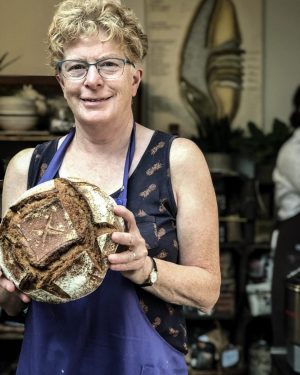 Health and Safety
Health and Safety
When you arrive you will be asked to put your personal belongings on the pegs in the bathroom or at the top of the stairs. The School is a relaxed space for baking and learning. As a small business however, we have to have health and safety procedures so we have an office where all bags, coats, hats and personal belongings need to be stored out of the way.
All students are required to wear an apron and have no rings on their hands unless a simple wedding band.
Whilst baking please have your hair tied back.
We have a separate hand basin for hand washing. This is NOT for washing utensils.
NO personal belongings, clothing or bag in the school except your phone or medicine, please.
Over the years I have noticed that accidents tend to happen when things get cluttered. We have to clear the table several times over the day, and each student has an apple crate as a locker, and is responsible for making sure that their utensils, cup and bowls are washed and put away whilst baking and when finished with.
You will need to keep your working area clear and it is requested that you tuck in stools under the table when baking as people can trip over them.
On arrival for the week-long course, we are all allocated one small job to make sure that the bakery stays ship-shape throughout the day. It is very calm and comfortable, so we ask that students make themselves at home, but also be mindful of the working space being a safe environment.
Vanessa is St Johns Ambulance advanced first aid trained.
Does The Sourdough School have a complaints Procedure?
The Sourdough School Complaints Procedure
The The Sourdough School does have a complaints procedure.
We view complaints as an opportunity to improve for the future, as well as a chance to put things right for the person [or organisation] that has made the complaint.
Our 6-step approach is to:
- To provide a fair complaints procedure which is clear and easy to use for anyone wishing to make a complaint
- To make sure all complaints are investigated fairly and in a timely way
- To publicise the existence of our complaints procedure so that people know how to contact us to make a complaint
- To make sure everyone at The Sourdough School knows what to do if a complaint is received
- To make sure that complaints are, wherever possible, resolved and that relationships are repaired and apologise.
- To gather information which helps us to improve what we do and implement changes to prevent this from happening again.
What is the definition of a complaint?
A complaint is any expression of dissatisfaction, whether justified or not, about any aspect of The Sourdough School
Where do complaints come from?
Complaints may come from any individual, volunteer or organisation who has a legitimate interest in THE SOURDOUGH SCHOOL including the general public if something is perceived to be improper. A complaint can be received verbally, by phone, by email or in writing. This policy does not cover complaints from staff, who should refer to HOPE UK’s internal policy on such matters.
Confidentiality and responsibility
All complaint information will be handled sensitively, telling only those who need to know
Overall responsibility for this policy and its implementation lies with the board of Directors
This policy is reviewed regularly and updated as required. Publicised Contact Details for Complaints: Written complaints may be sent to The Sourdough School
Complaints may also arrive through channels publicised for that purpose or through any other contact details or opportunities the complainant may have, such as social media. Complaints received by telephone or in person need to be recorded.
Telephone complaints
The 6 step process for the person who receives a phone or in person complaint should:
- Write down the facts of the complaint
- Take the complainant's name, address and telephone number
- Note down the relationship of the complainant to The Sourdough School e.g. student, customer, club member, volunteer, sponsor, supplier
- Explain to the complainant that we have a formal complaints procedure
- Explain to the complainant what will happen next and how long it will take
- Where appropriate, ask the complainant to send a written account via the form below so that the complaint is recorded in the complainant’s own words
Resolving Complaints
Step One
In most cases, a complaint is best resolved by the person responsible for the issue being complained about. If the complaint has been received by that person, they may be able to resolve it swiftly and should do so if possible and appropriate. Whether or not the complaint has been resolved, the complaint information should be passed to The Sourdough School Director within five business days.
On receiving the complaint, the Director needs to contact the complainant. If it has not already been resolved, they delegate an appropriate person to investigate it and to take appropriate action. If the complaint relates to a specific person, they should be informed and given a fair opportunity to respond.
Complaints should be acknowledged by the person handling the complaint within five working days. The acknowledgement should say who is dealing with the complaint and when the person complaining can expect a reply.
A copy of our complaints procedure should be attached. Ideally complainants should receive a definitive reply within a month. If this is not possible because for example, an investigation has not been fully completed, a progress report should be sent with an indication of when a full reply will be given. Whether the complaint is justified or not, the reply to the complainant should describe the action taken to investigate the complaint, the conclusions from the investigation, and any action taken as a result of the complaint.
Step Two
If the complainant feels that the problem has not been satisfactorily resolved at Stage One, they can request that the complaint is reviewed at Board level.
At this stage, the complaint will be passed to the Board The request for Board level review should be acknowledged within five working days of receiving it. The acknowledgement should say who will deal with the case and when the complainant can expect a reply. The Board of Directors may investigate the facts of the case themselves or delegate a suitably senior person to do so. This may involve reviewing the paperwork of the case and speaking with the person who dealt with the complaint at Stage One. The person who dealt with the original complaint at Stage One should be kept informed of what is happening.
If the complaint relates to a specific person, they should be informed and given a further opportunity to respond. Ideally complainants should receive a definitive reply within a month. If this is not possible because for example, an investigation has not been fully completed, a progress report should be sent with an indication of when a full reply will be given. Whether the complaint is upheld or not, the reply to the complainant should describe the action taken to investigate the complaint, the conclusions from the investigation, and any action taken as a result of the complaint.
Illegal practices
The decision taken at this stage is final, unless the Board feels that it is appropriate to seek external assistance with resolution if any illegal matters arise.
Please submit your complaint in this form
Pausing Your Course
In line with our policy of supporting others to achieve their aims, we do not limit the amount of time that it takes to graduate online. Life and be challenging and circumstances change so we try to be as flexible as possible.
Whilst we do not give refunds, we do offer the opportunity to stop and transfer your course to the following year, in line with our terms and conditions.
To pause your course please fill in this interruption of study below and we will transfer you to next year's course.
Please select a valid form.
How we use your fees to run our Social Enterprise
A conscious decision to operate my business as something more than a commercial entity
As the concept of teaching people to bake for health took shape, it was initially framed by a simple ambition: to contribute, in whatever modest way I could, to the broader goal of making people understand our connection to sourdough. I am determined to change the way we understand bread and inspire change.
A commitment to share knowledge with those who might not ordinarily have the means to access it empowers change.
This was not just in my classes but through social media; I always responded to people to help. This wasn't about the pursuit of profit in the traditional sense. At its core, it was an exploration of how a business could transcend commercial boundaries to serve a deeper, more meaningful purpose - to change the world, for one person is changing the whole world.
In the early stages, the idea was somewhat formless; it was a feeling driven more by an intrinsic sense of duty than by a clear-cut plan. It became evident that there was a significant dichotomy between the availability of knowledge and its accessibility, but I felt that the true value of knowledge lies not in its accumulation but in its dissemination. Why, then, should access to transformative education and information be restricted to those who happen to have money?
I measure success by the impact on the community and the wider world.
More recently, as my understanding of the business world deepened, a phrase caught my attention and resonated with my evolving vision: "social enterprise." It was a total revelation. This was the articulation of my practice. The precise terminology to describe it existed. The realisation dawned on me that the path I had been navigating was not uncharted but instead aligned with a far broader movement that places societal impact at the heart of the entrepreneurial endeavour.
So whilst we do need fees to run, I do not measure success as profit. I measure success by the impact on the community and the wider world.
Why do I need to agree to Certain legal forms?
There are several forms that you need to fill in to attend the School. Film release forms, non disclosure, and your student registration form.
Refund policy and pausing your Online Course
Our Commitment to Educational Access: Explaining Our No Refund Policy
To enable this cycle of reinvestment, we have a no-refund policy for our courses. We want to ensure that all potential students are aware of this policy at the time of enrolment. This approach allows us to plan for and allocate scholarships and support our social prescription baking scheme effectively.
We understand that life can sometimes be unpredictable, and we want to accommodate our students' needs as much as possible. Therefore, if you need to take a break after starting a course, you can pause and resume at your convenience.
Before you enrol, please make sure to familiarize yourself with our policies and the unique social enterprise model of The Sourdough School. We are here to support your learning journey and empower you to become part of a movement for systems change in the world of baking, health, and social equality.
Terms and conditions We are passionate about providing education to as many people as possible, regardless of their financial circumstances. As both a small business and a social enterprise, we strive to use our resources effectively and inclusively.
Each year, we calculate our tuition fees and allocate our scholarships, bursaries, and awards accordingly. This calculation is based on the assumption that once a student accepts a course, they commit to completing it, and the tuition fees they pay are dedicated to implementing our systems change programme.
Our no refund policy, in the simplest terms, is integral to our ability to provide this opportunity to others. For every person who pays for a course, we can extend the training and education to two people who would not ordinarily have the opportunity. This approach aligns with our values of inclusivity and learning accessibility.
Refunding course fees would significantly impact our ability to run this programme. Therefore, instead of providing refunds, we offer the option to pause your course. We've found this to be a supportive and inclusive solution, allowing students to return when they are ready without financial loss.
For the 2022/23 Programme, we generated £50,000 in revenue and awarded £150,000 worth of scholarships and awards. To continue operating and providing these opportunities, we cannot offer refunds. This is why we have a strict application process and require all applicants to fully understand and agree to our no-refund policy.
If unforeseen circumstances arise and you are unable to continue with your course at this time, we can pause your course and re-enroll you the following year. We believe this approach respects both our commitment to providing educational opportunities and our students' varying life situations.
Thank you for understanding and supporting our mission to make sourdough education accessible for all.
To pause your course, please fill in this interruption of study below, and we will transfer you to next year's course.

